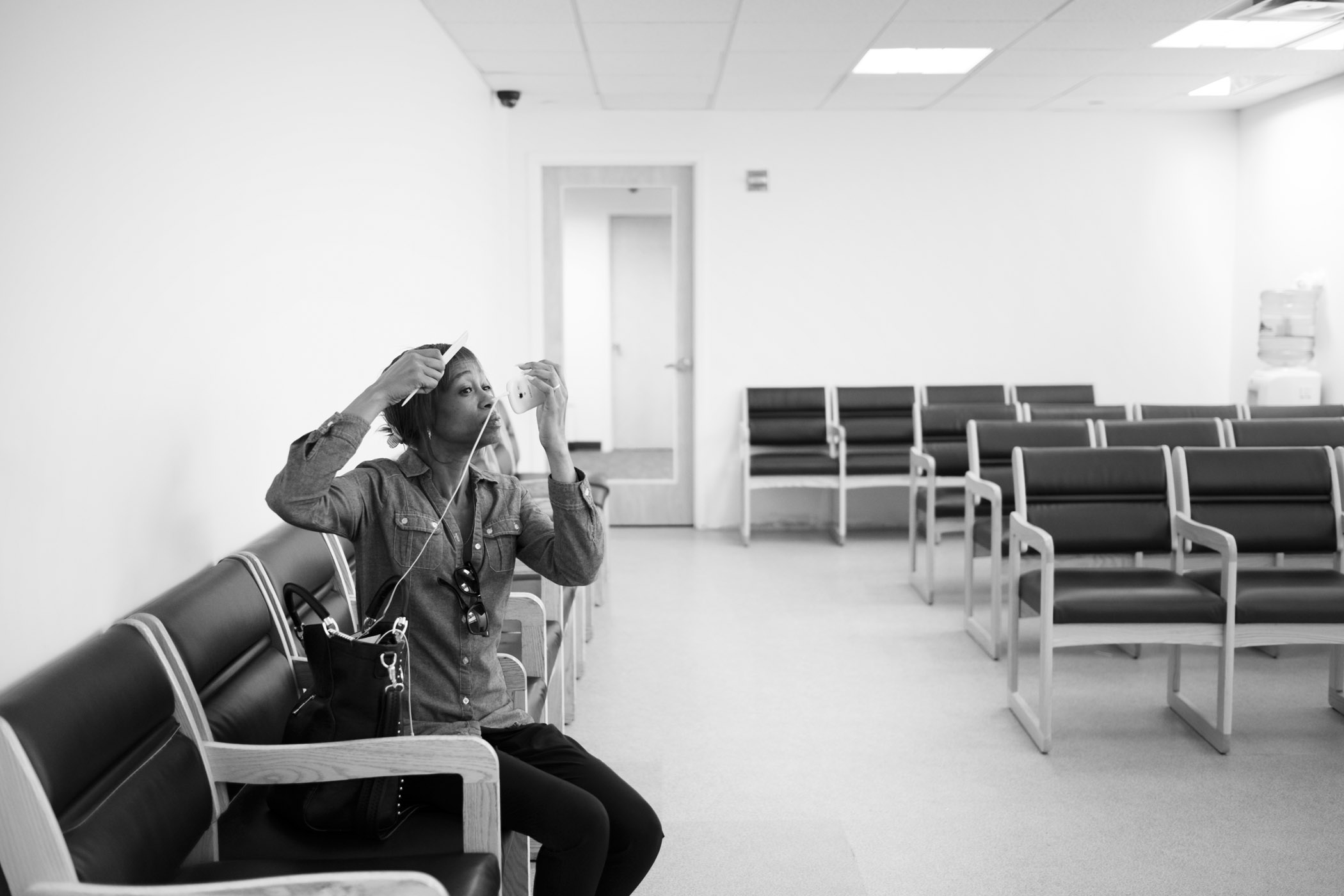
Life After Life in Prison: Reentry examines the lives of seven women — Tracy, Evelyn, Carol, Keila, Karen, Leah, and Claude — as they return to society after serving anywhere from 17 to 35 years in New York State’s maximum security prison for women.
Tracy, 49, who served 24 years, waiting for a meeting with her counselor. Brooklyn, NY (2014)
“I have to go to three state-mandated programs. I like my individual counselor but all those programs is a lot of time. I feel most of it is a waste.”
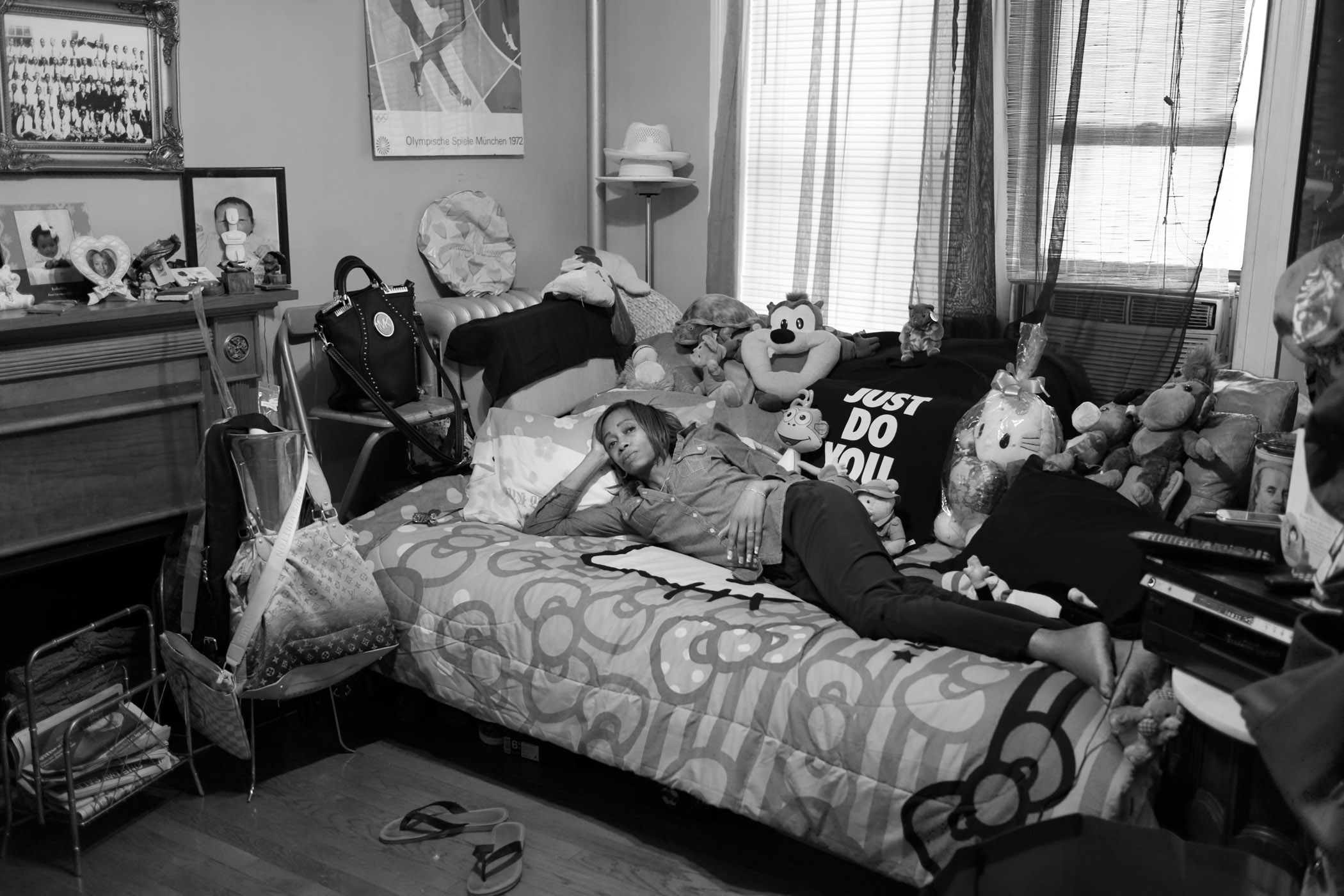
“This is my third home in six months. I was at Providence House [a halfway house]. But my time was up after four months and I ended up at a three-quarter house. It was horrible. Then the uncle of my grand-children, not related to me, took me in.”
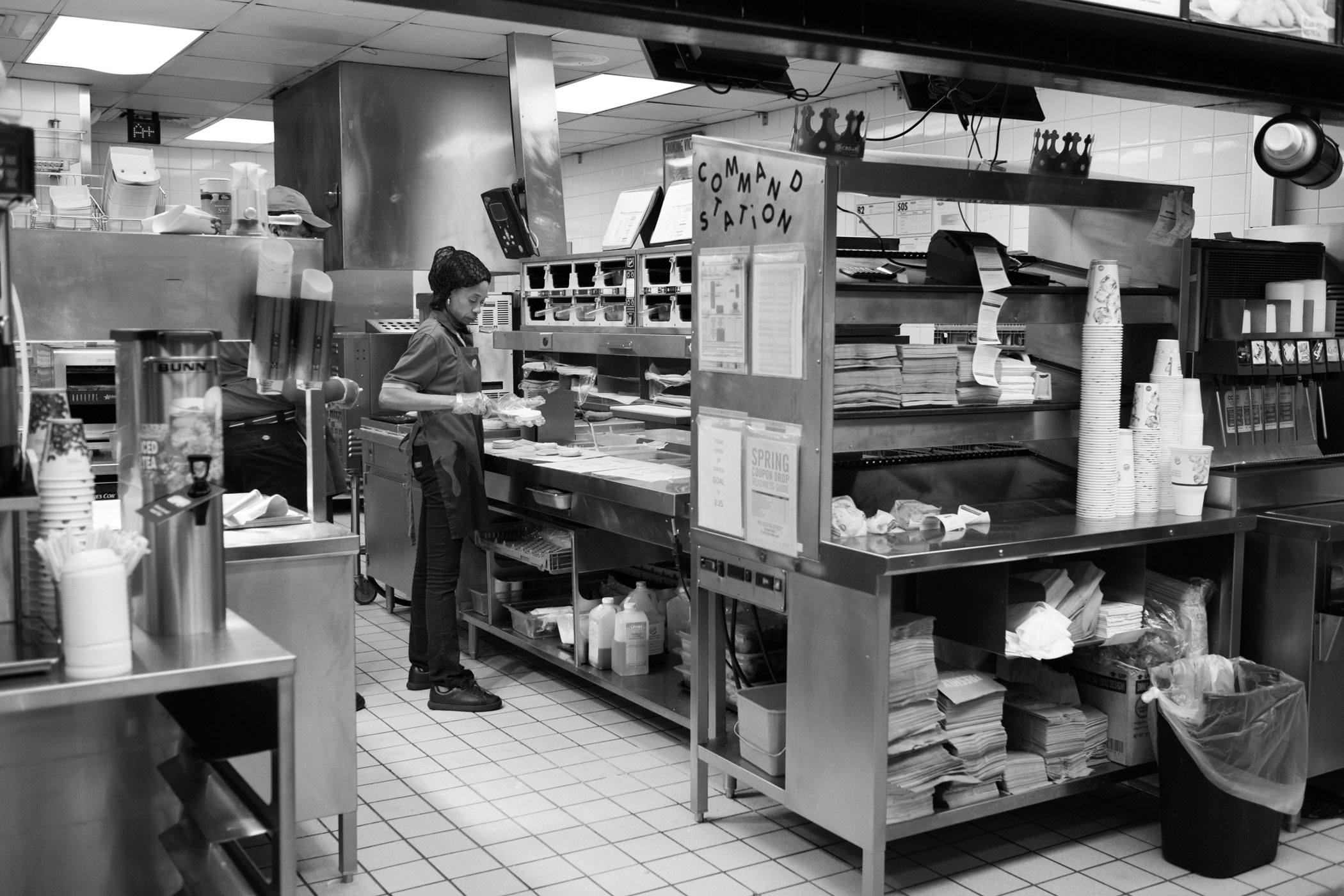
“I was glad to get the graveyard shift because it makes it easier for me to get to my programs without being late to work. Being late to work means I could lose my job. Being late to program means I could go back to prison. This way I won’t be late.”
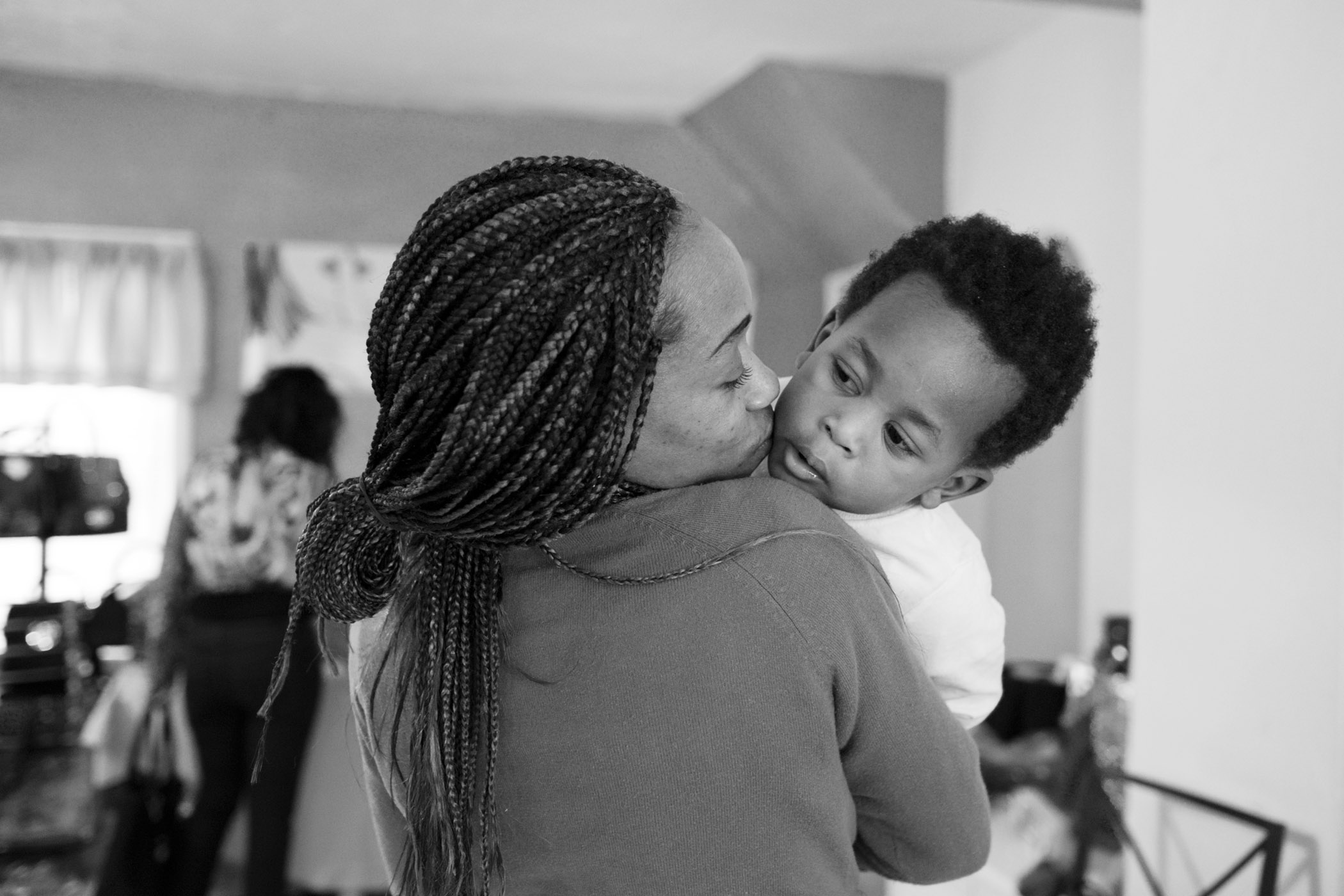

“First, Salvation Army told me I could have this job. Then they called me and told me they did a background check and said I couldn’t have it after all. I asked them when will I get my second chance. If they won’t give me a job, who will? So then they said I could have the job.”
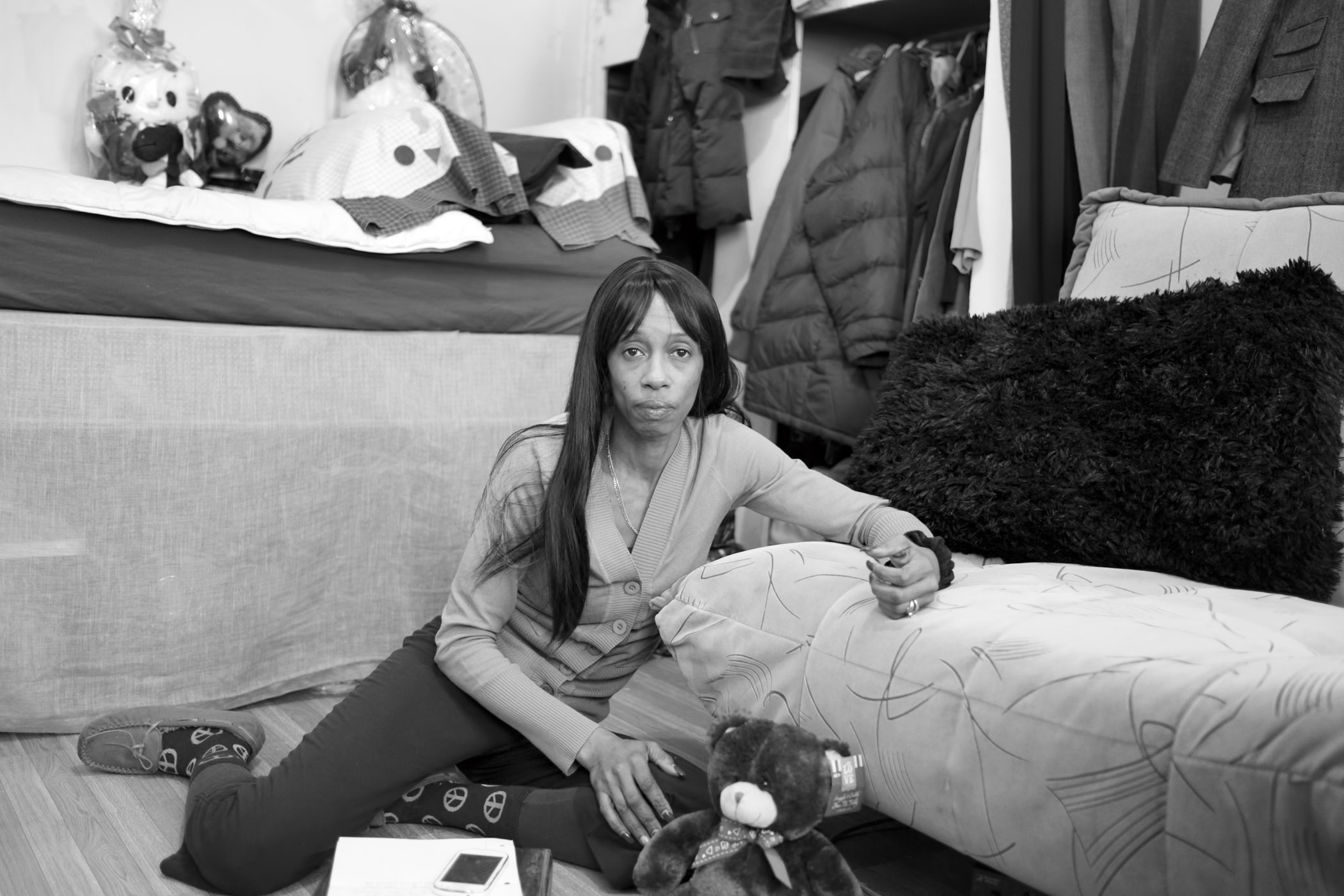
“The hardest part out here is the housing. A lot of places don’t take public assistance and rent is just so expensive.”
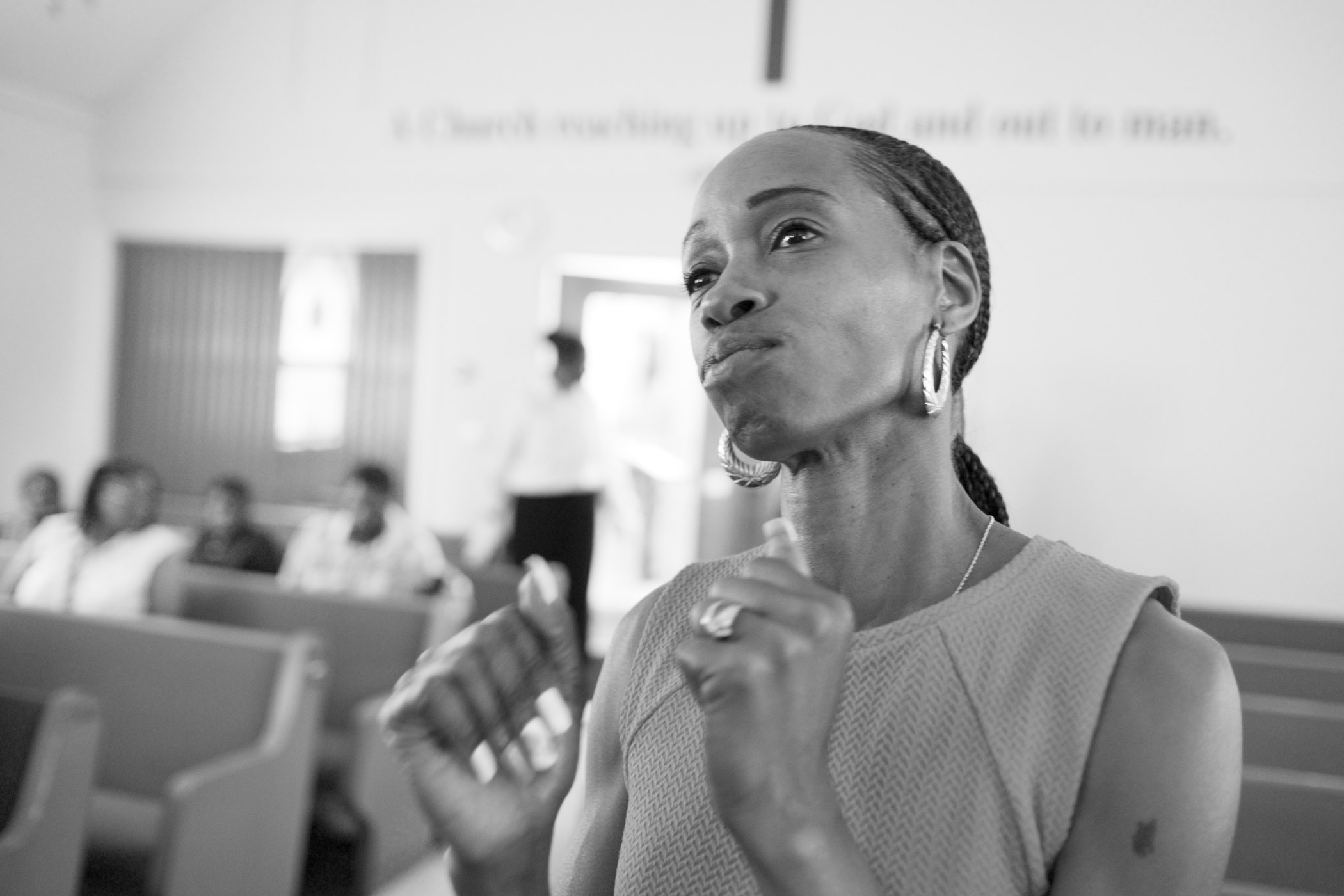
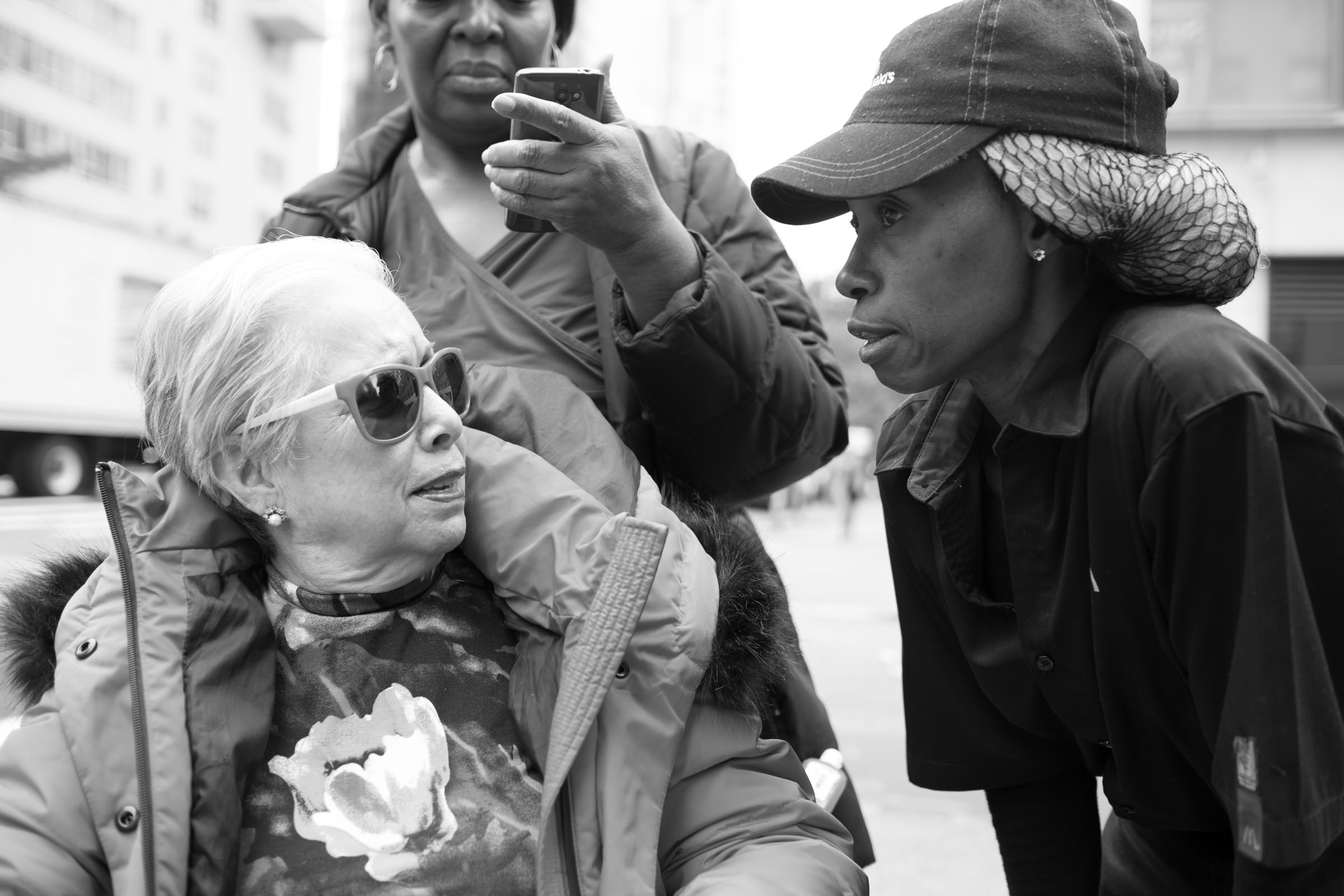
Tracy out on delivery for McDonalds. New York, NY (2016)
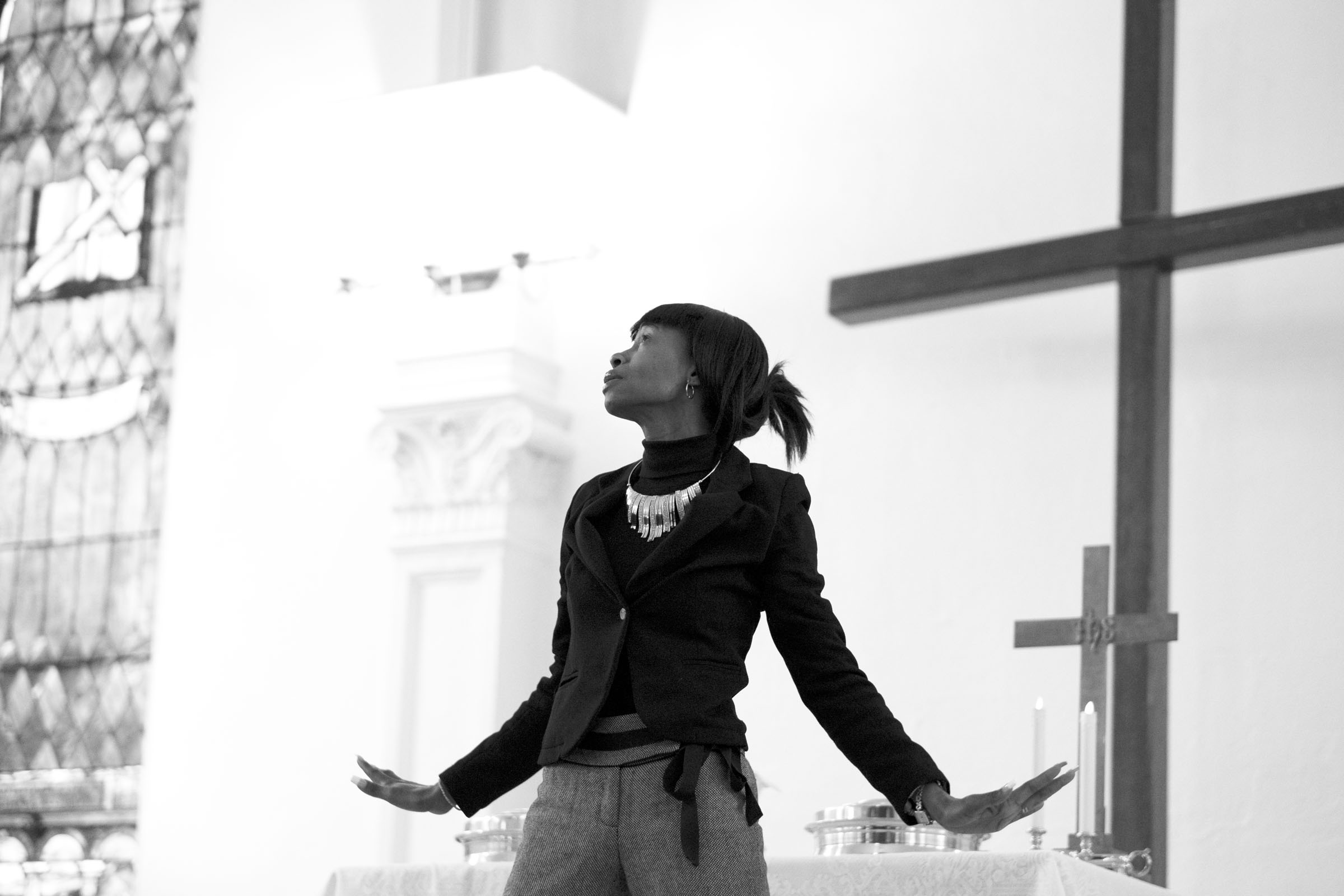
Tracy performing a prayer dance. Church of Gethsemane, Brooklyn, NY (2017)
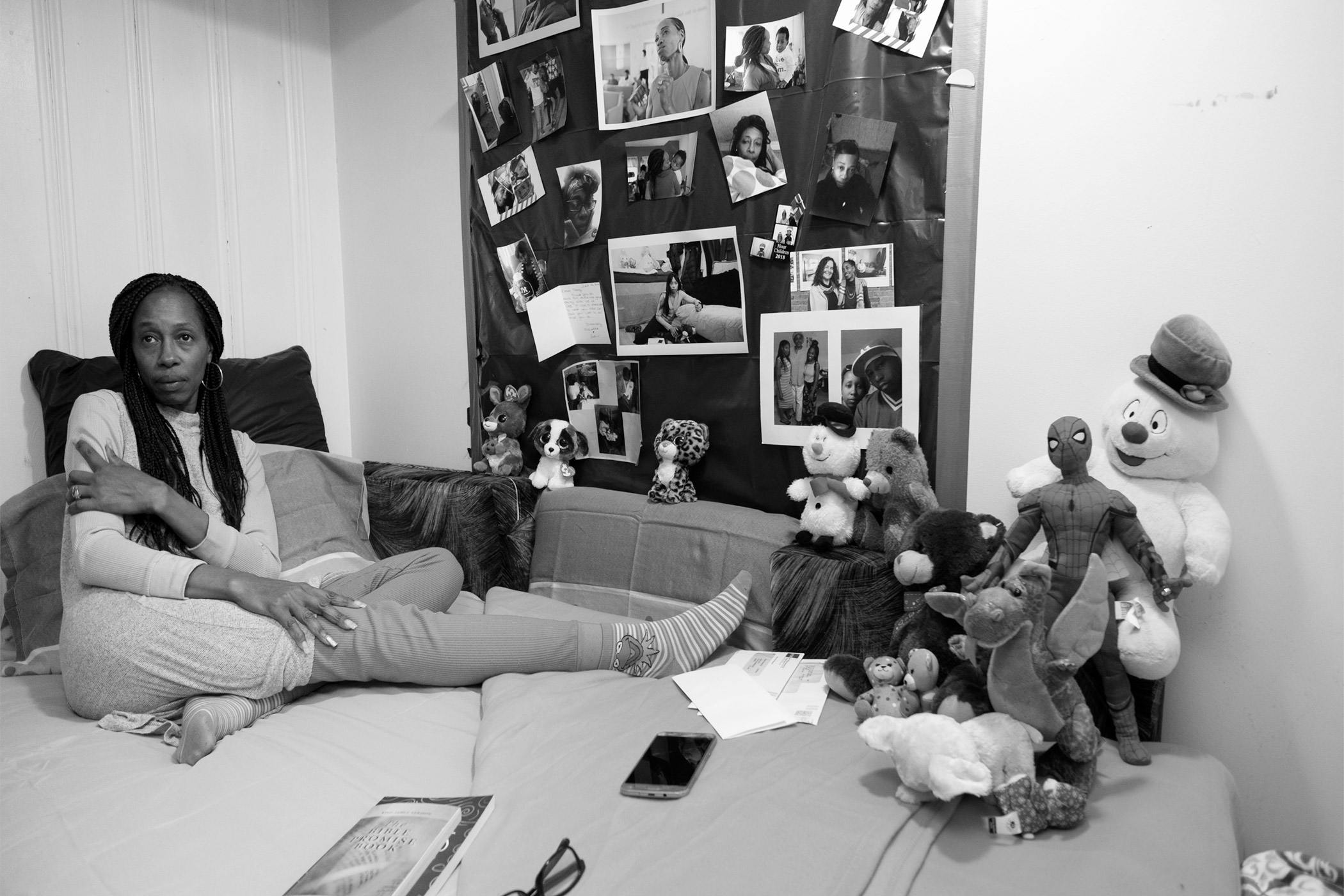
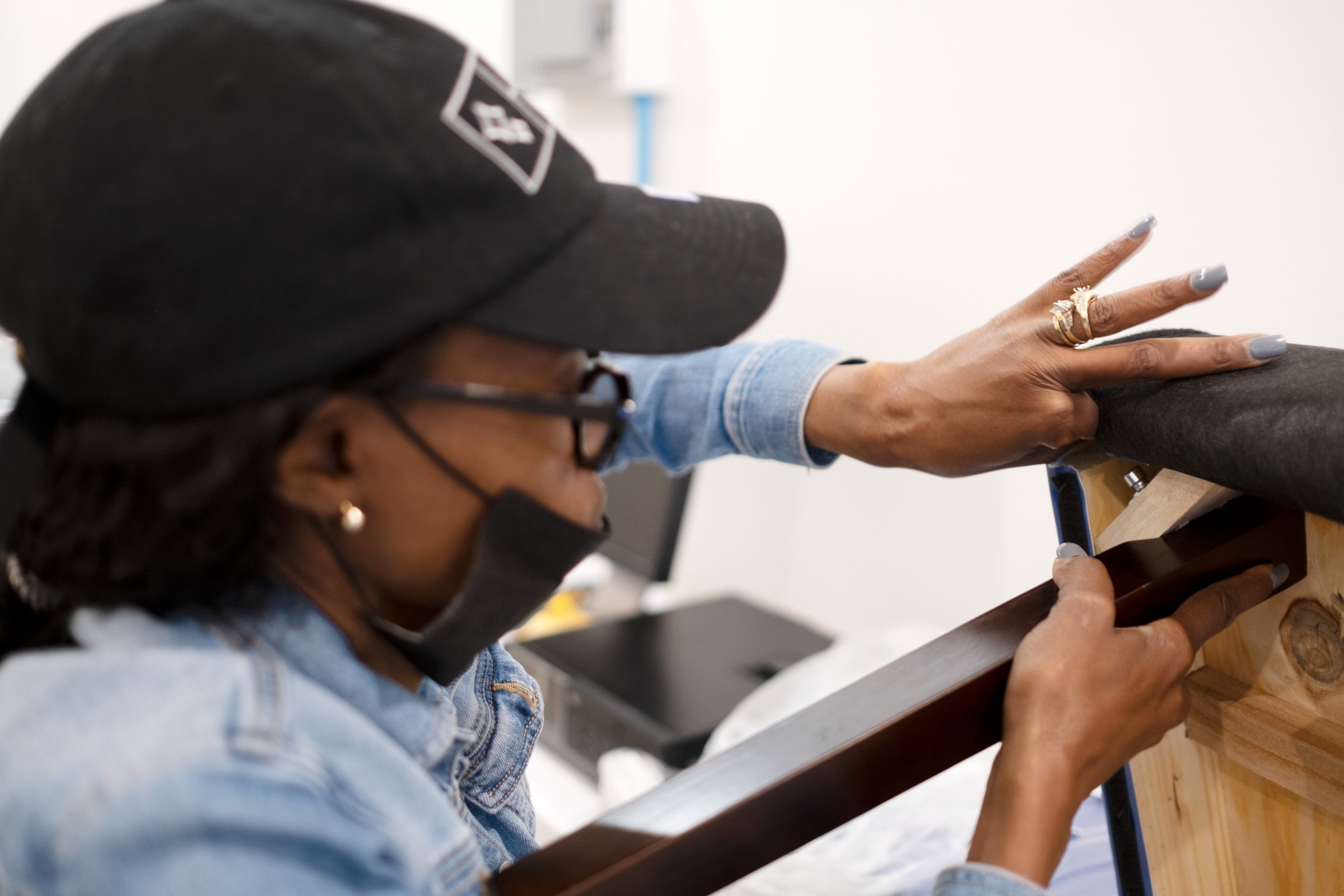
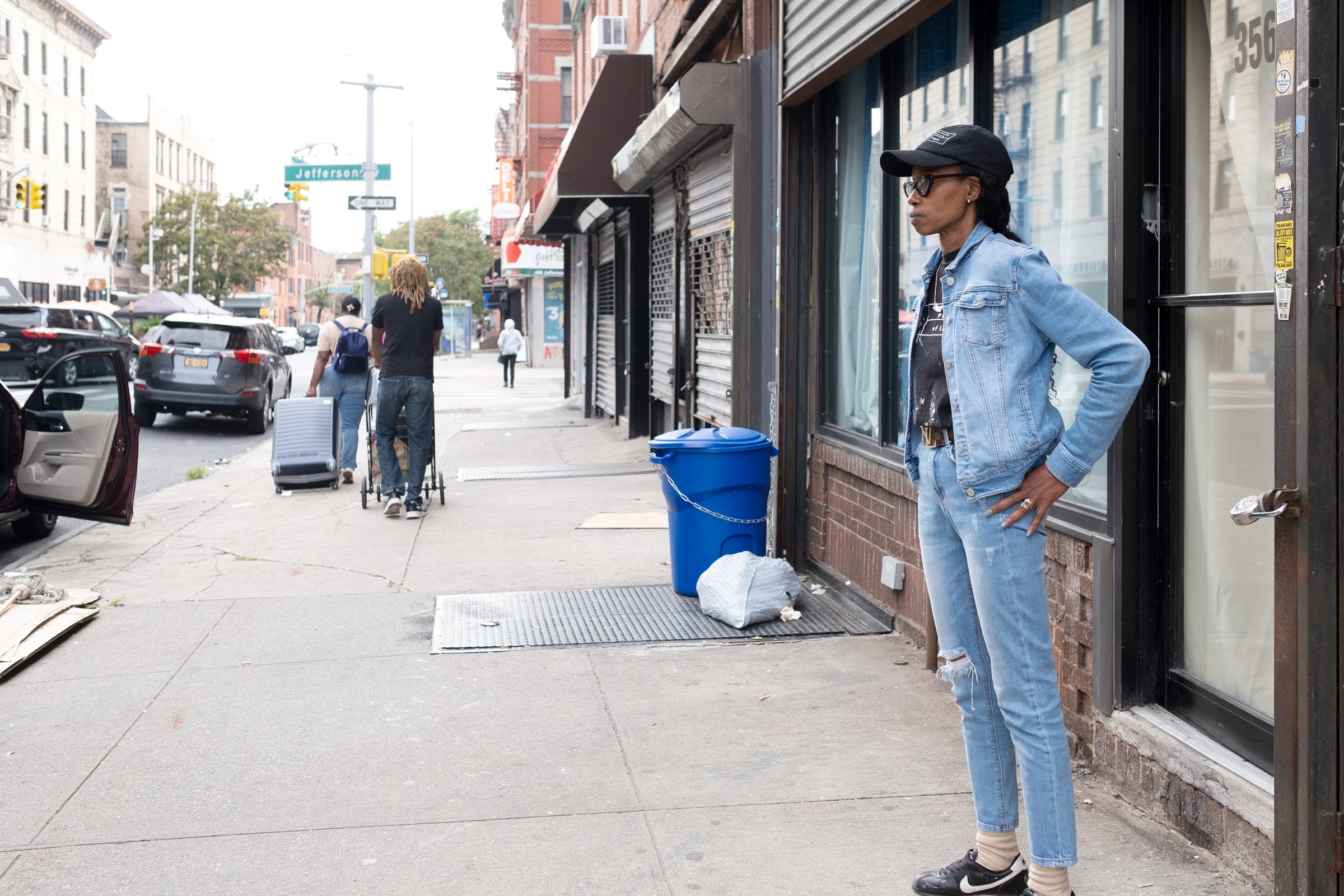

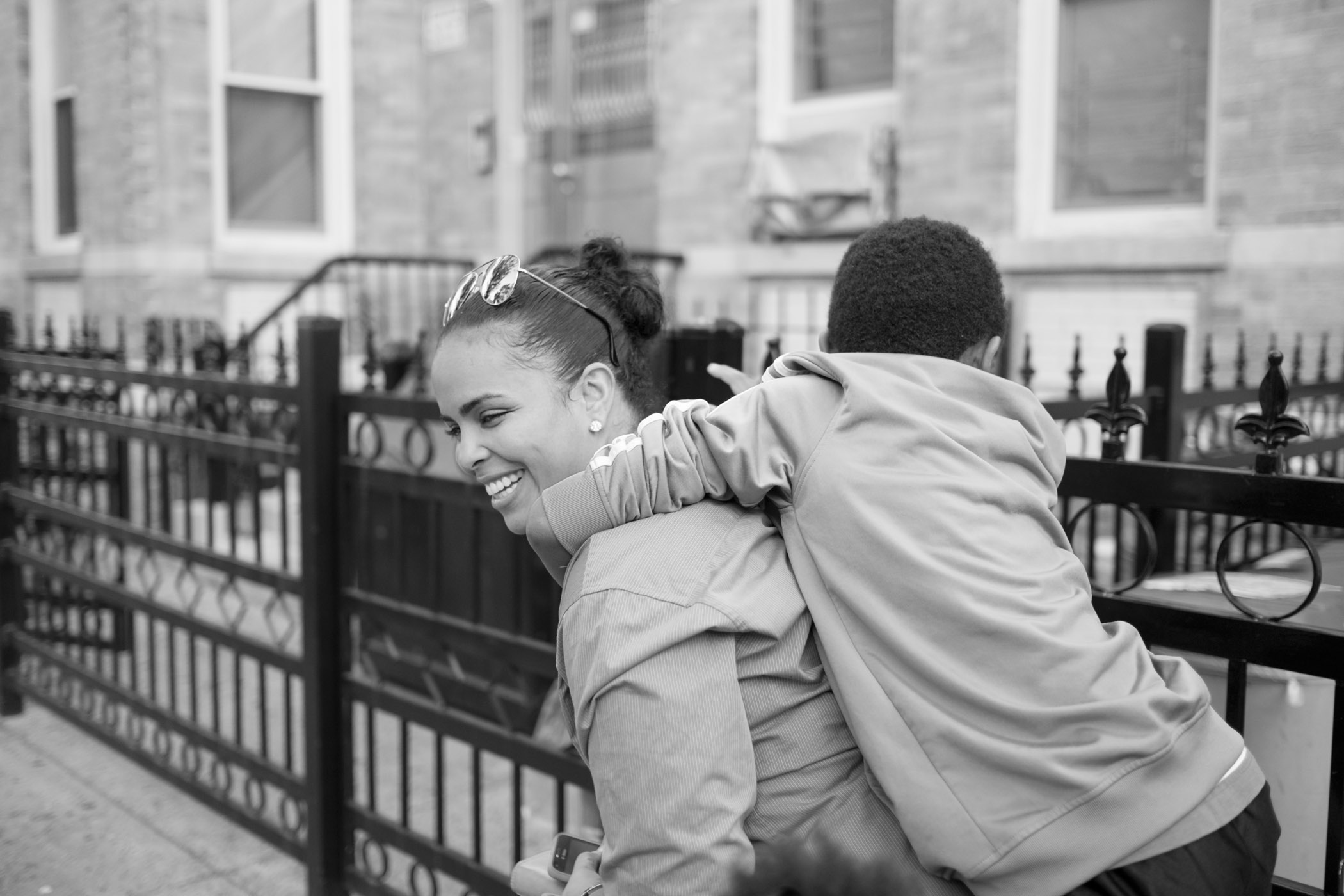
“I met my partner when I’d only been home for a few days. She has three kids and me not having kids, I became close to the kids and that was an extra.”
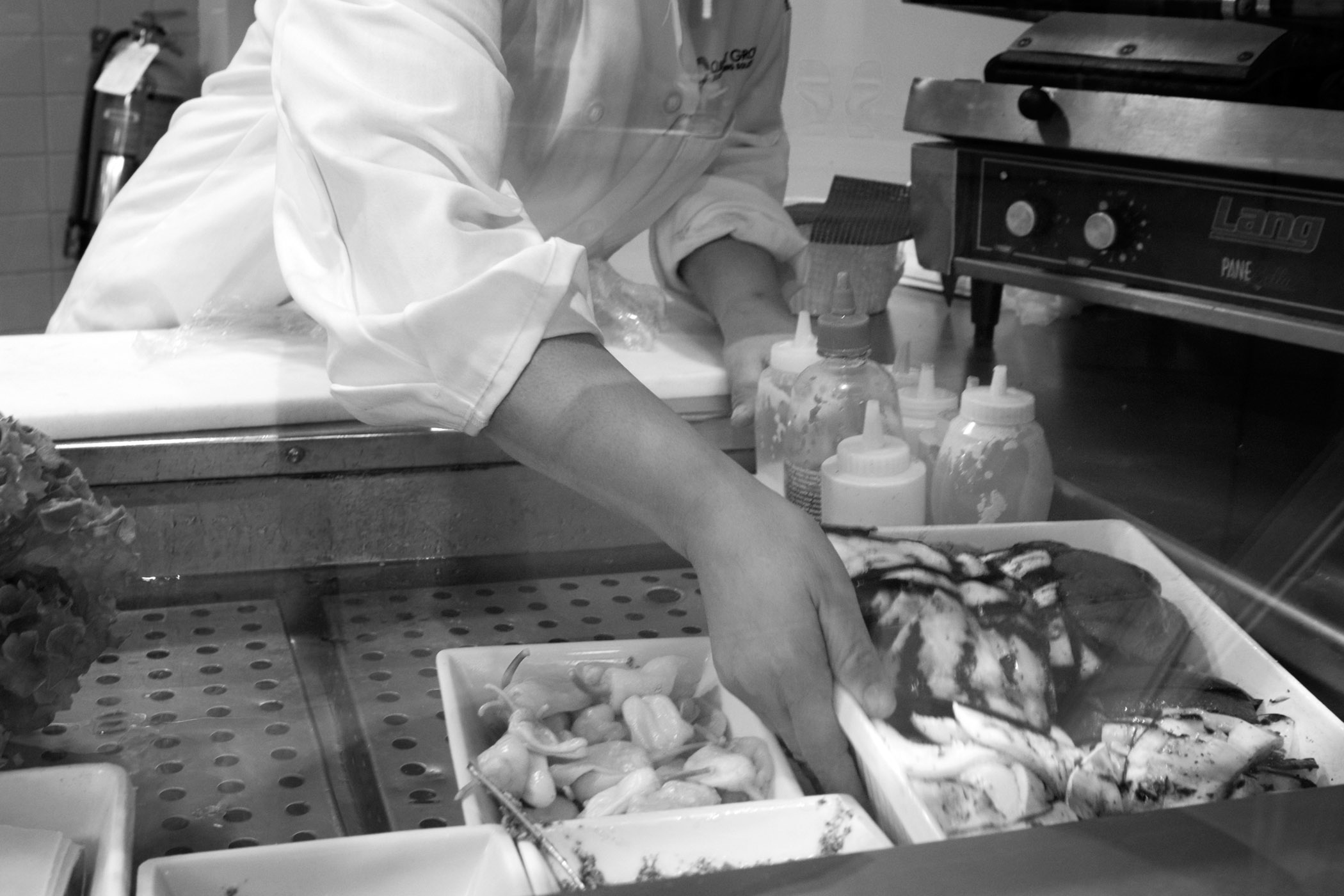
“When I came home, I got a grant and went to a culinary program. My dream job is to work for a nice restaurant. ‘Evelyn, Sous Chef.’ Or to have my own food truck — Spanish food. I cook like my grandma. That’s the best instructor you can have. Everything she cooked was natural.”
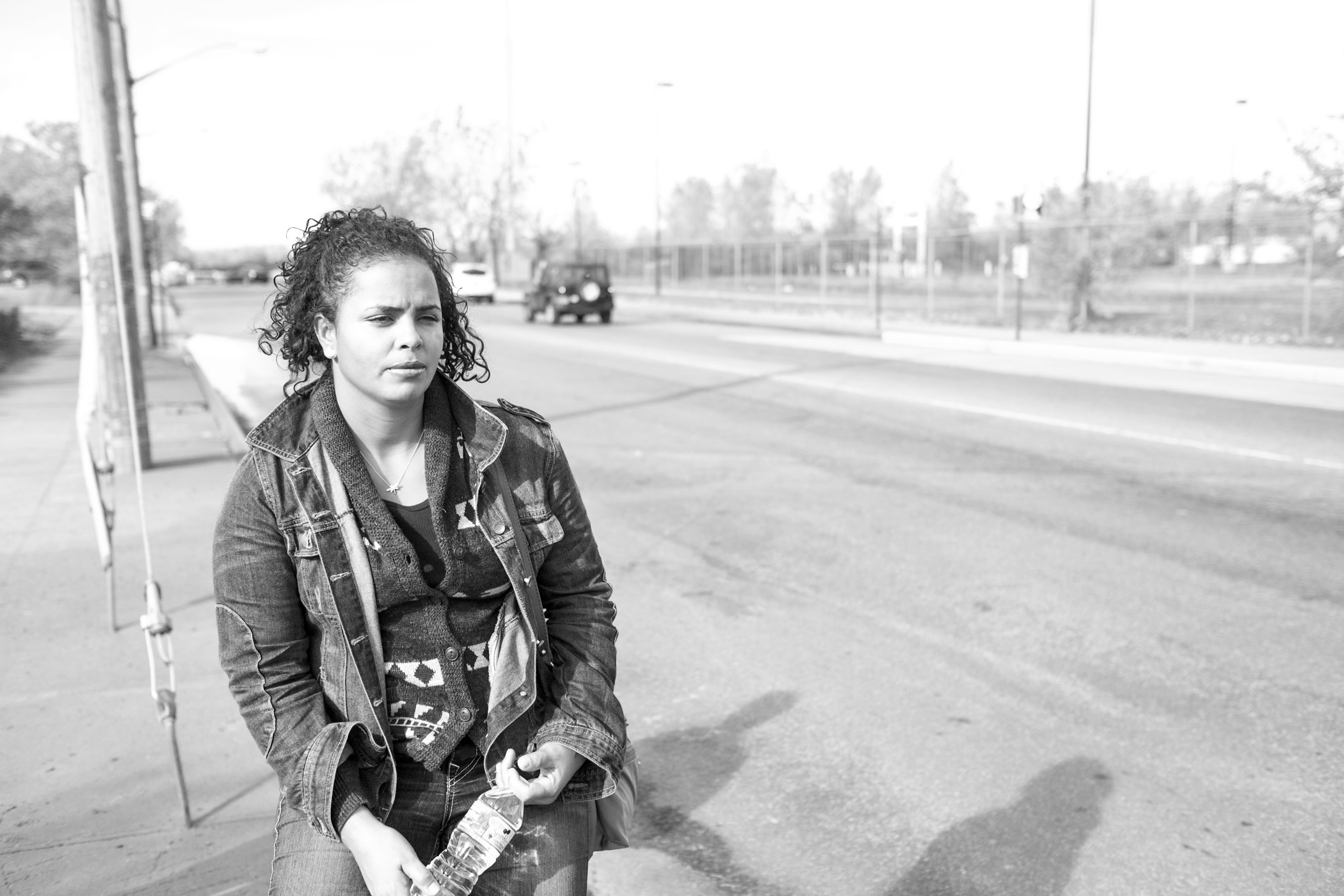
“I leave home at five thirty in the morning. I had to get an exception from my parole officer because I’m supposed to be home from ten at night until seven in the morning. If I want to leave the five boroughs, I have to get a travel pass. I have to report every four months—come in after work, wait to be called, hand them my urine, pay my fee. It’s $30 a month. I’m free, but I’m not full free.”
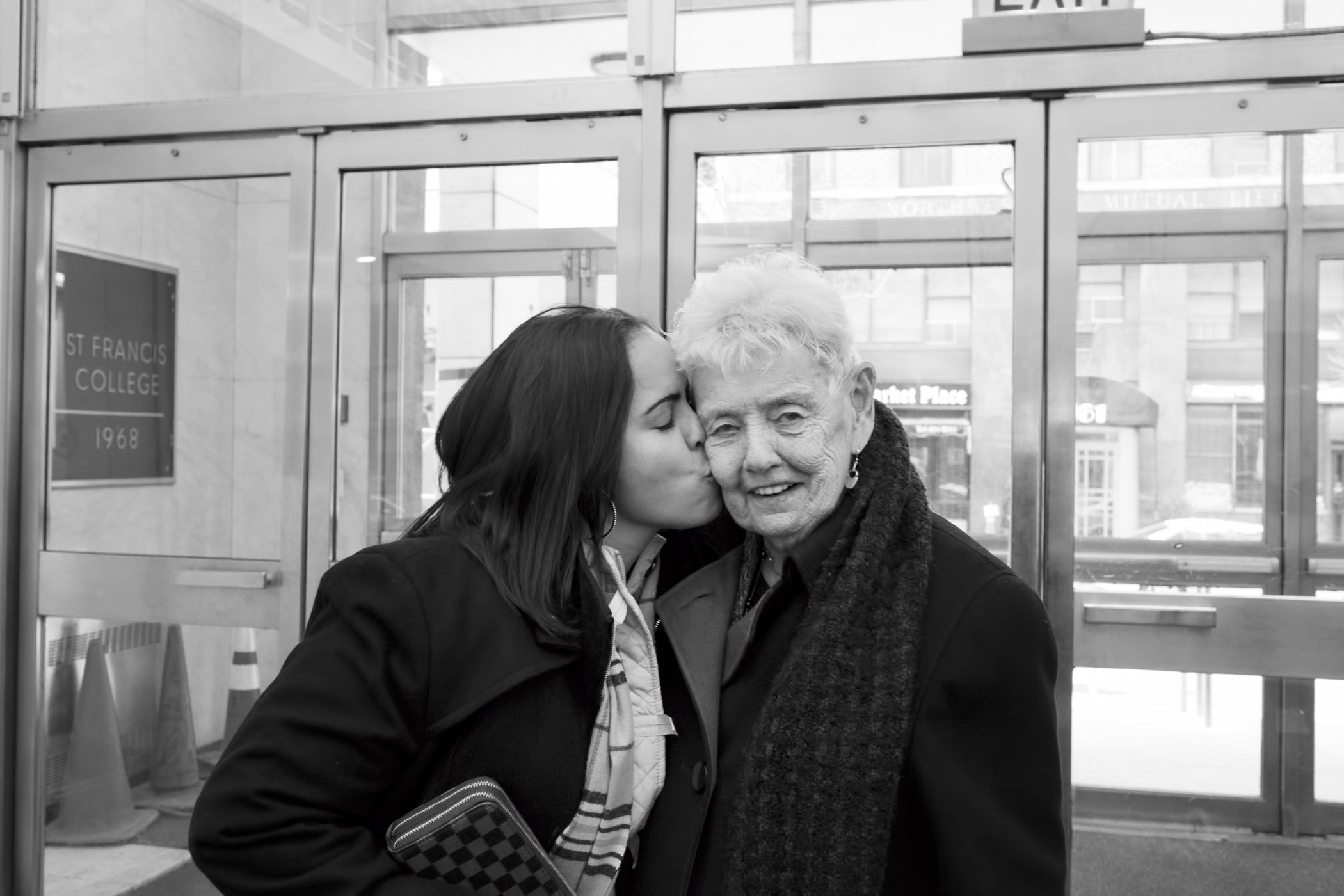
“I met Sister Elaine in Bedford. I was in facility maintenance and if she needed something done, I was there. I was always happy to do it. She was always encouraging me. She was like a mother figure to a lot of us in prison.”
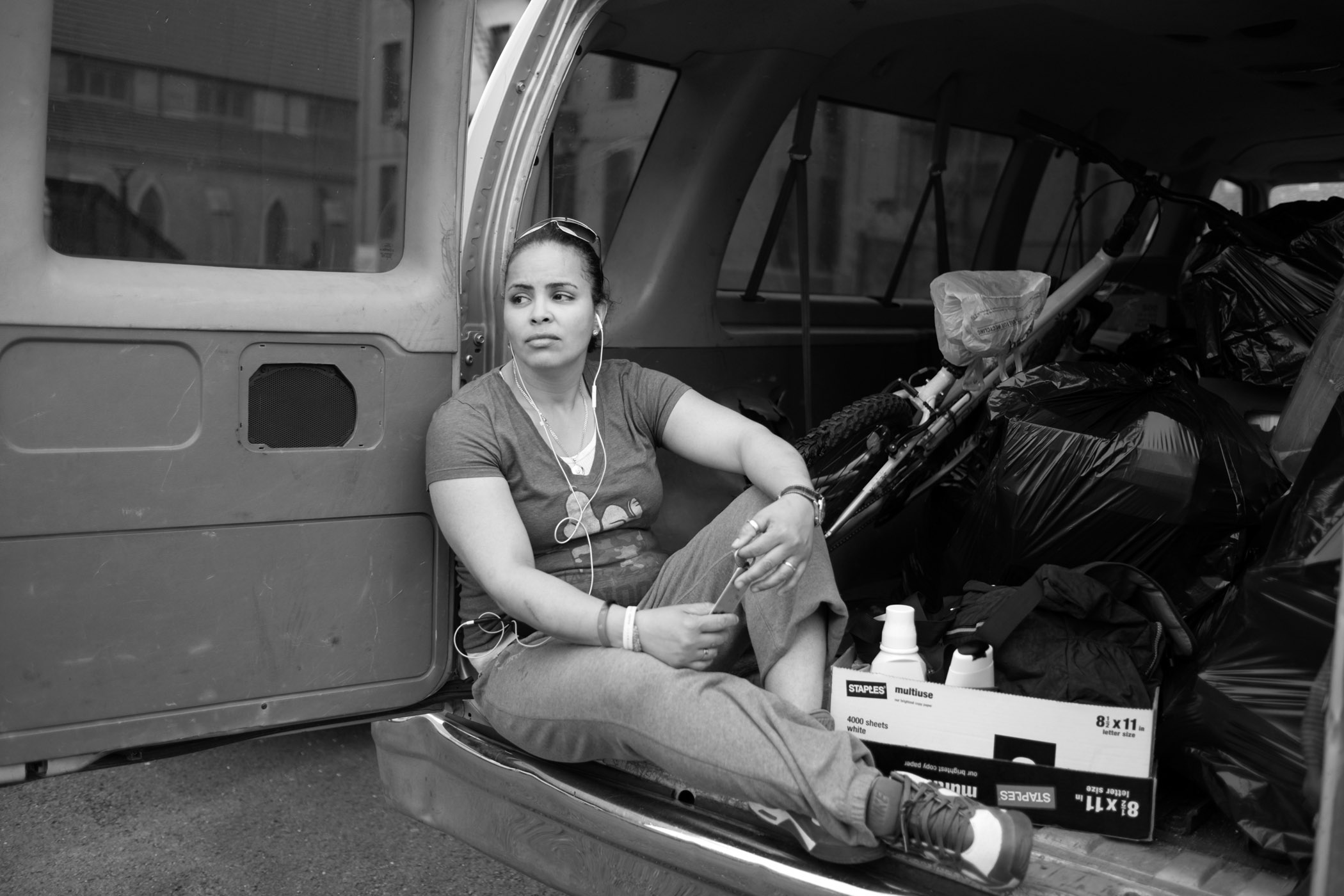
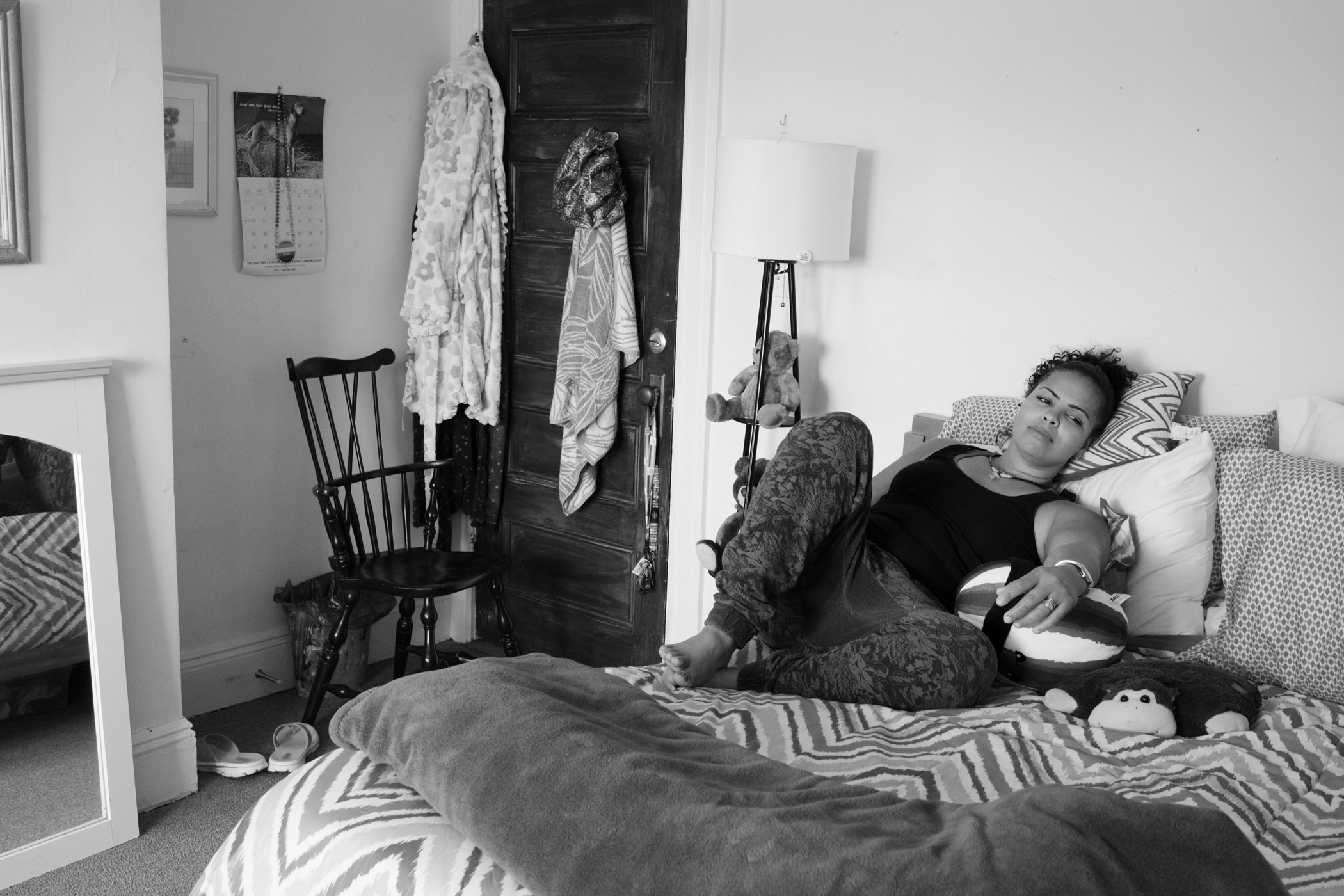
“I share this house with six other women. I’m in a good room. I can look out my window and I’m at peace. But I’m looking forward to the day when I have my own apartment and I’m saving as much as I can.”
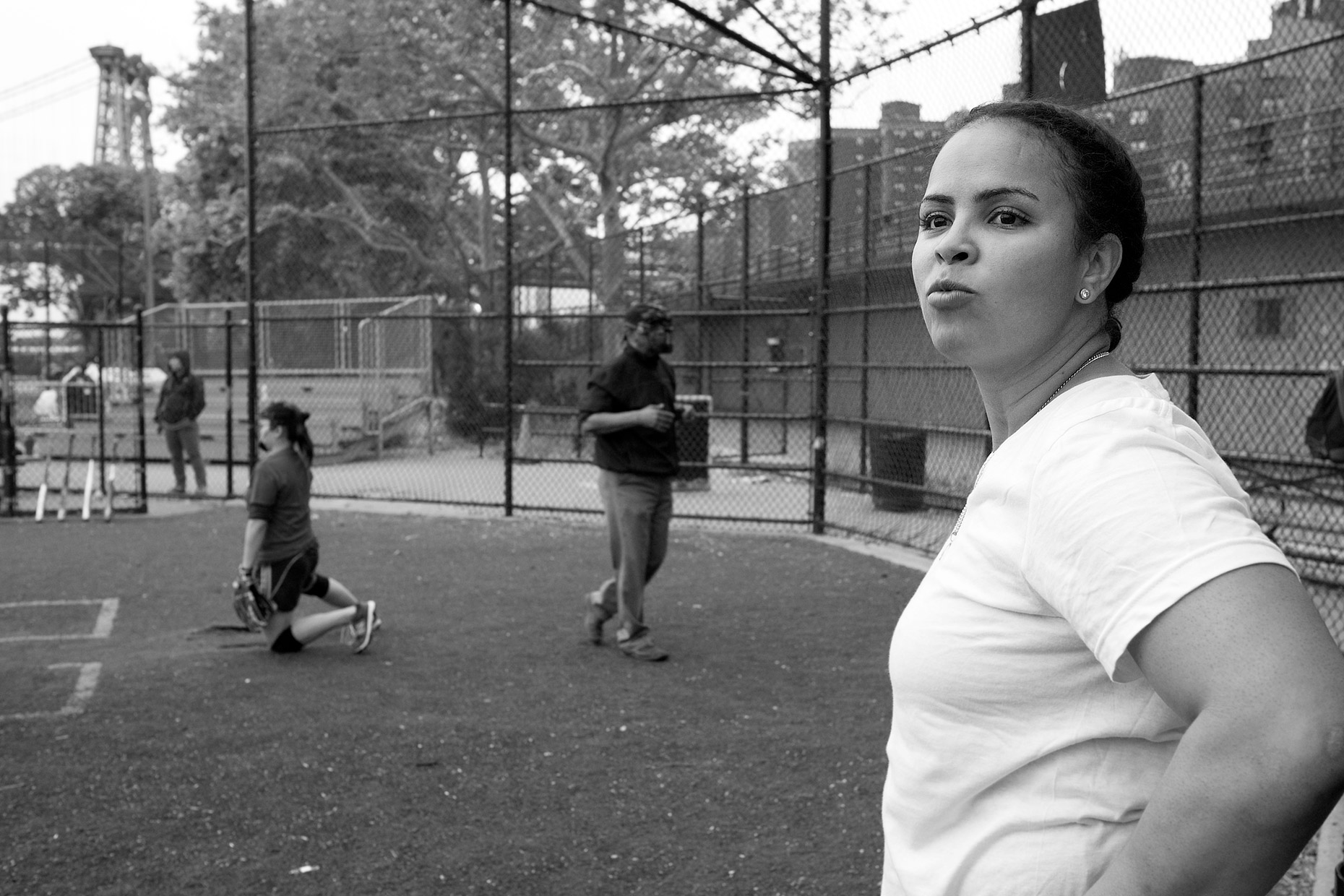
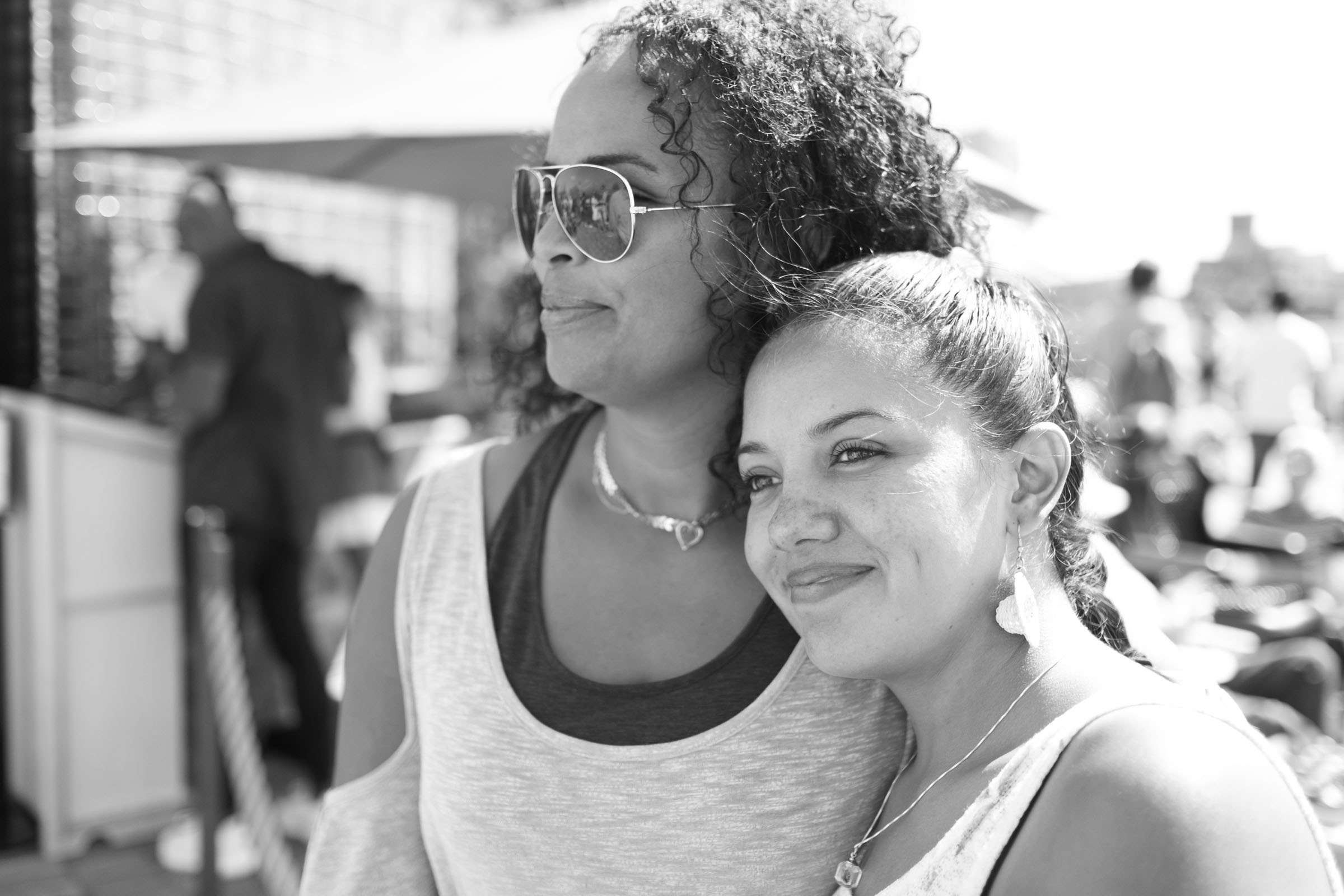
Evelyn and Andrea. Brooklyn Bridge Park (2017)
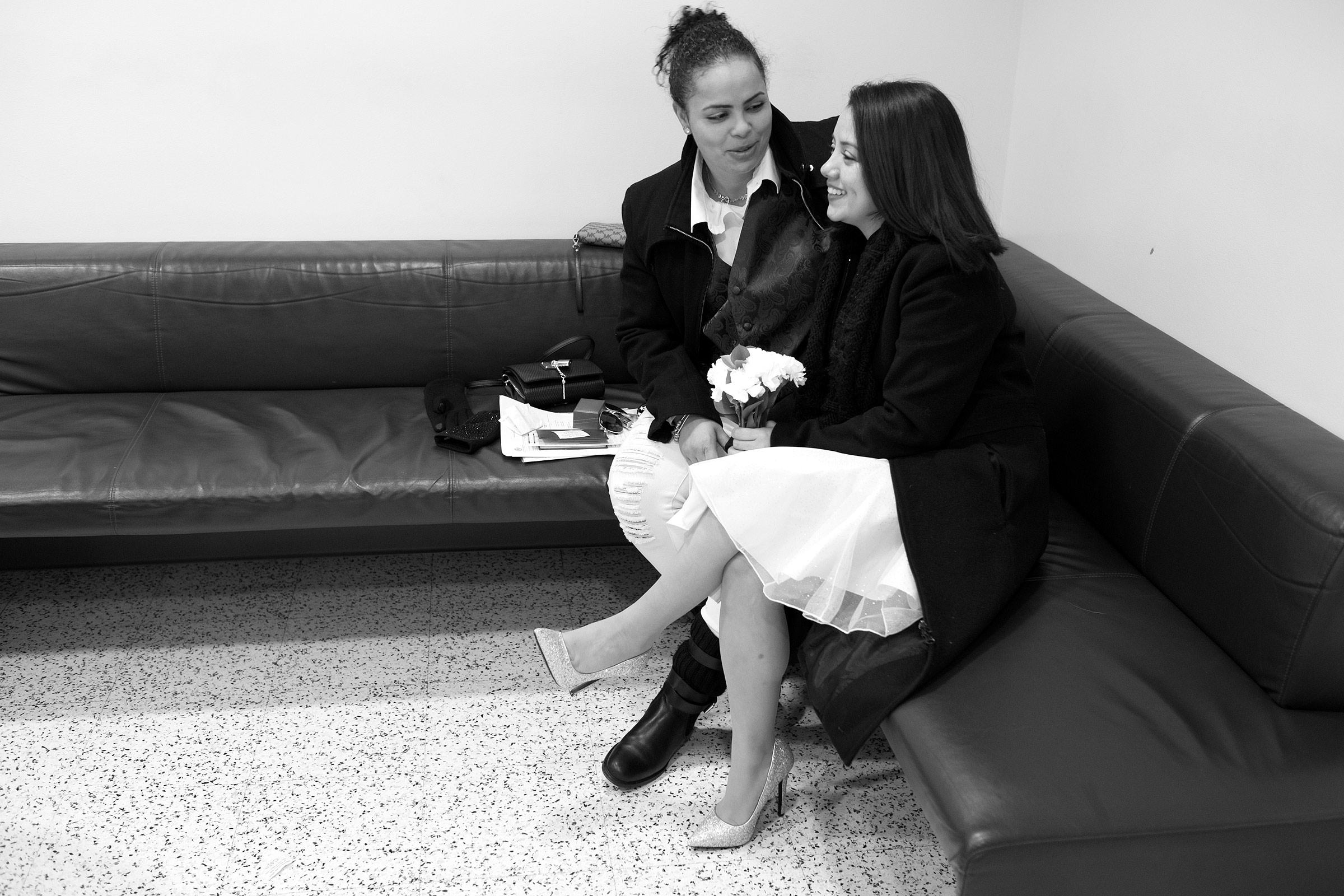
“We’ve known each other only 9 months but I just know it’s right. I can’t explain it.”
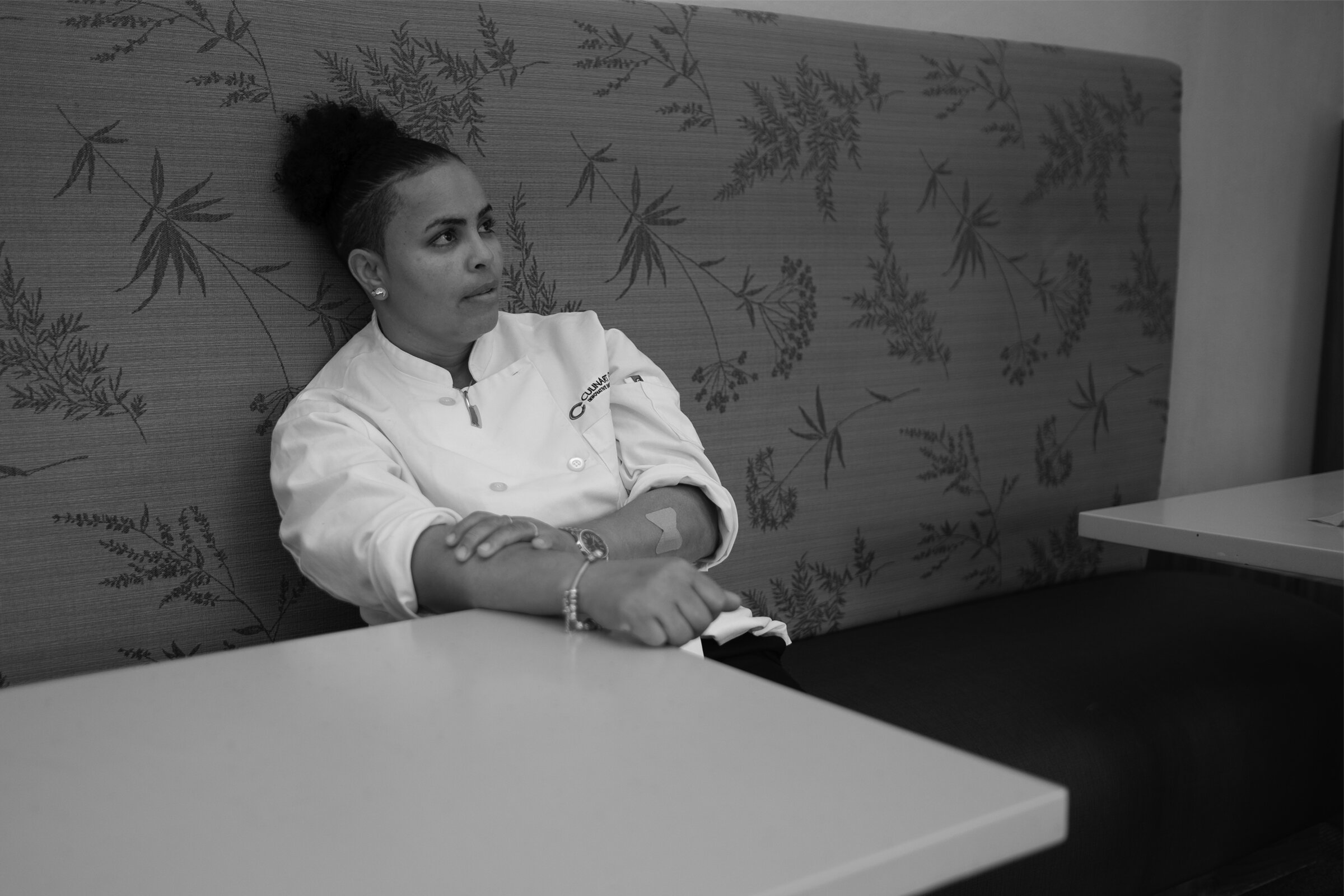
“I’ve been executive chef for three years now. I supervise 9 people and it’s a great experience and a great challenge. I get to be creative and build relationships with all kinds of people. The job comes with a little bit of stress but I’m proud of myself to see the role I am in.”
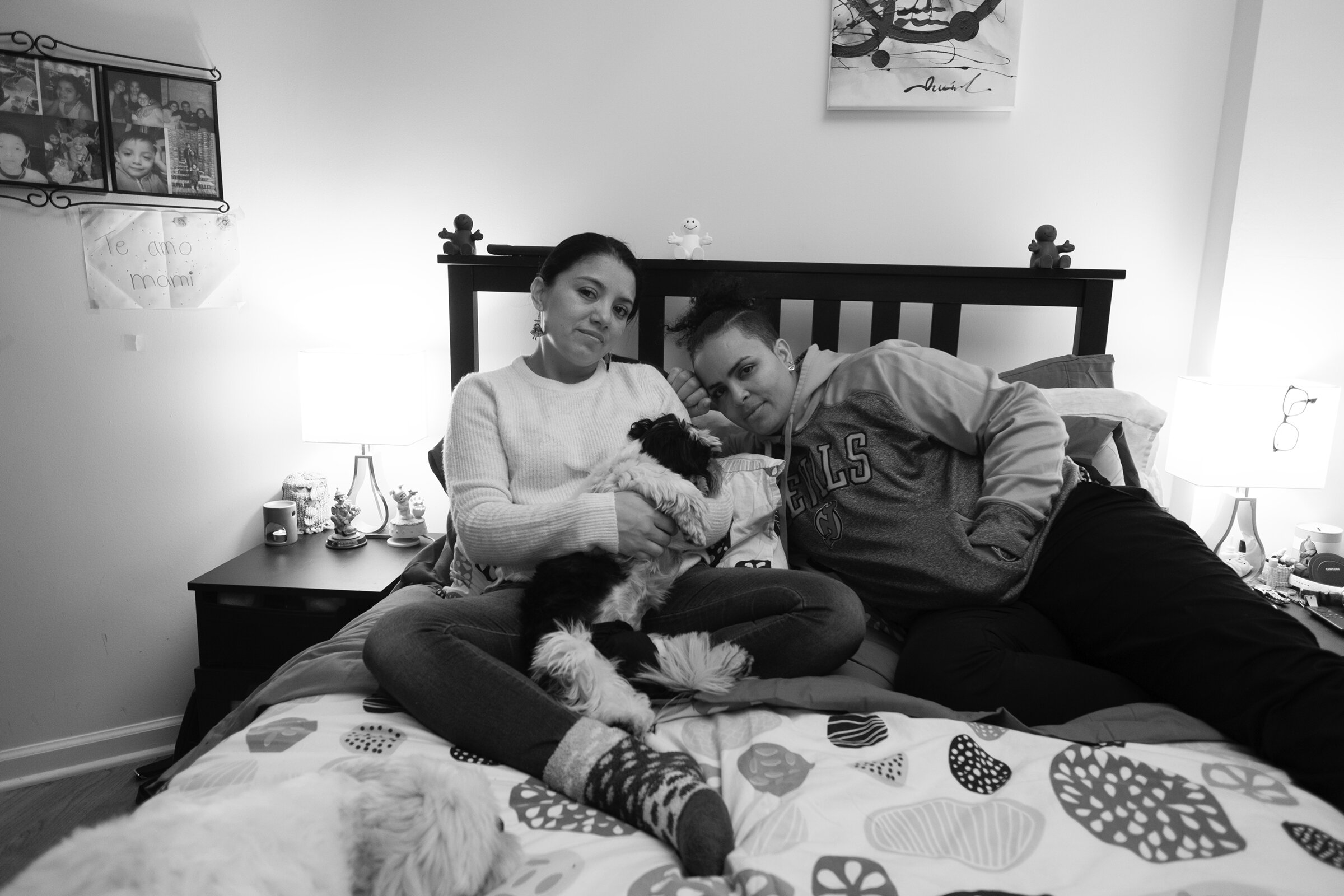
“Getting married was the best decision of my life. It’s almost two years now.”
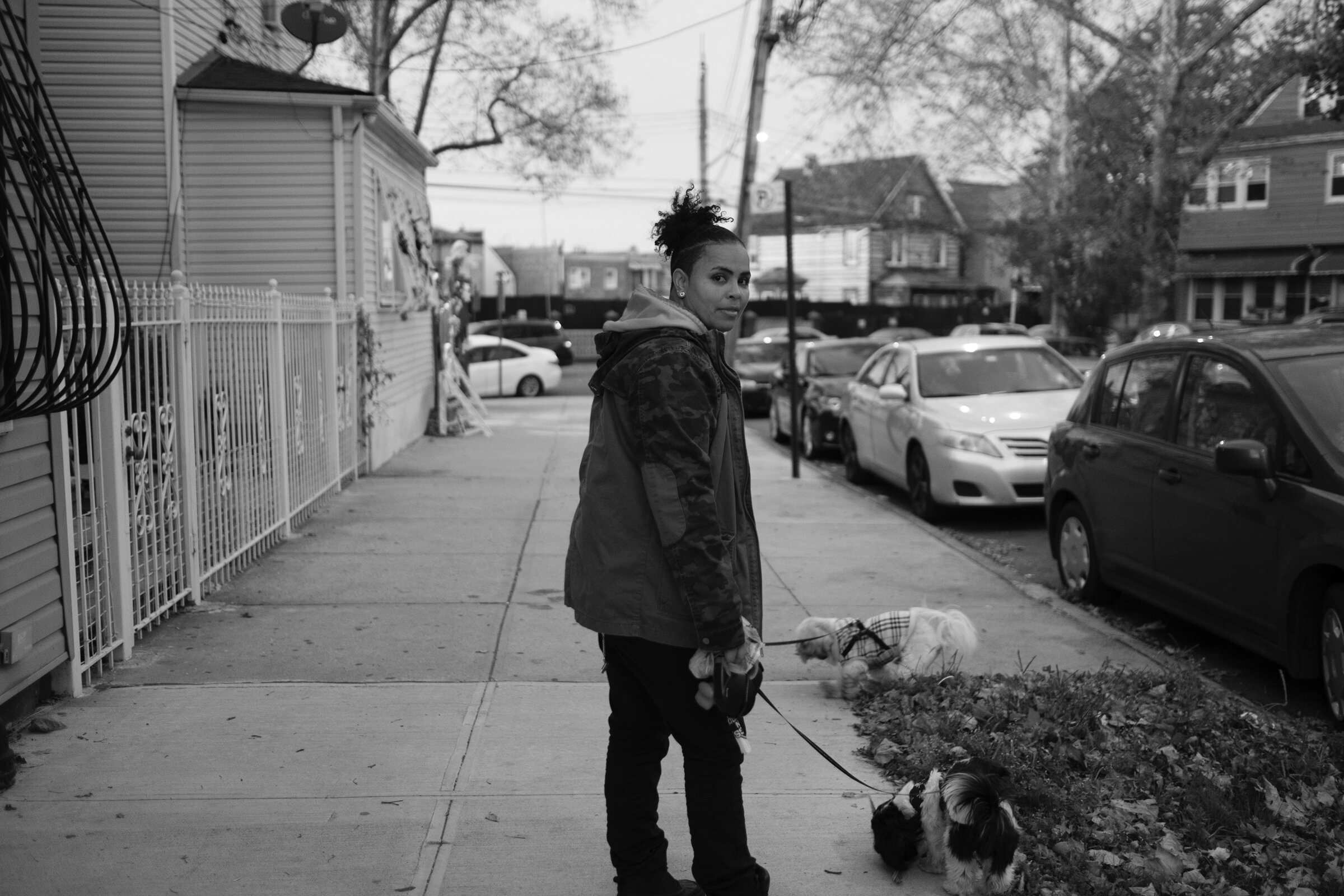
“Andrea gave me my first dog before she went back to her country to see her family. She didn’t want me to be by myself. She knows me so well. I love the dogs.”
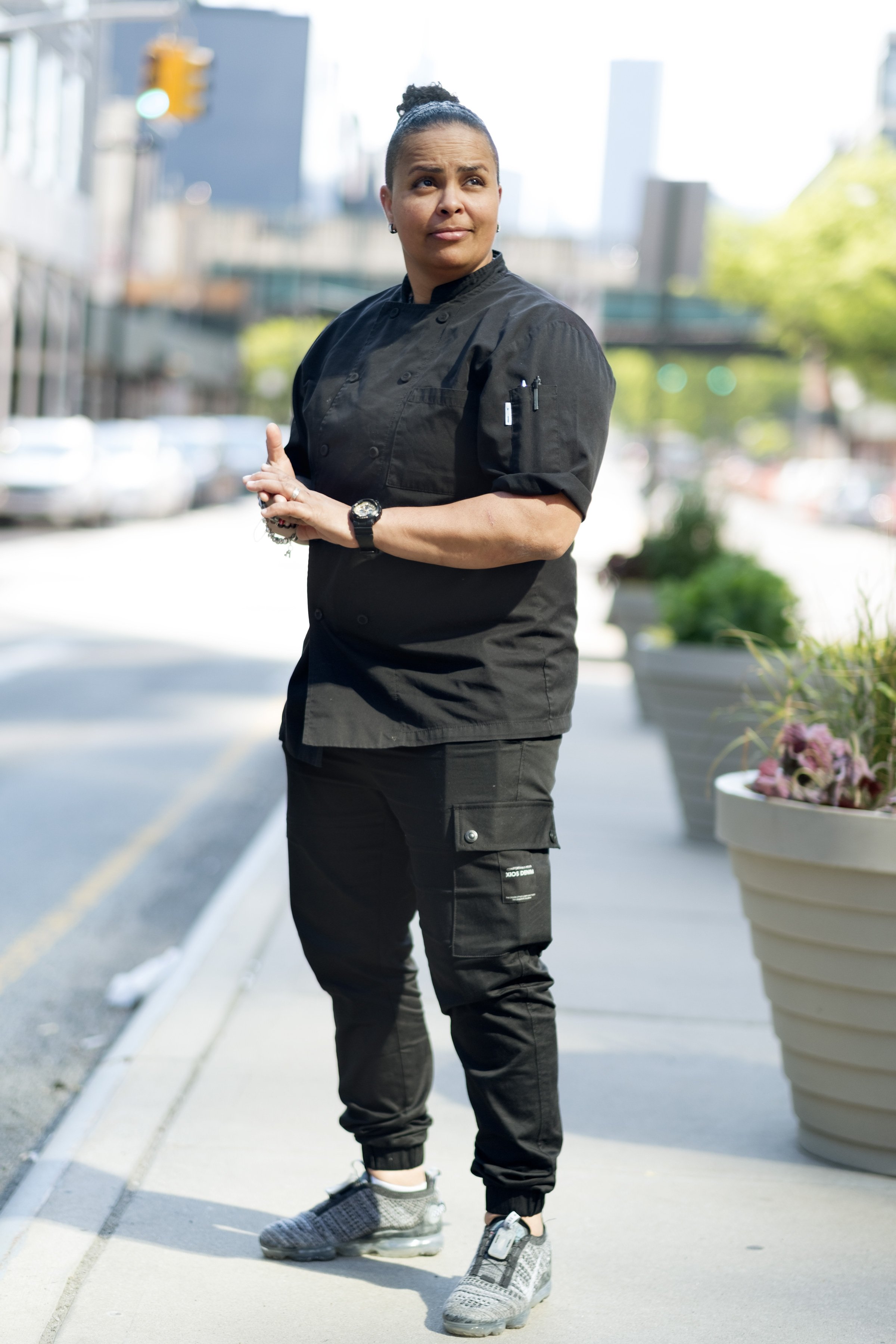
Evelyn after work. Long Island City, NY (May 2021)
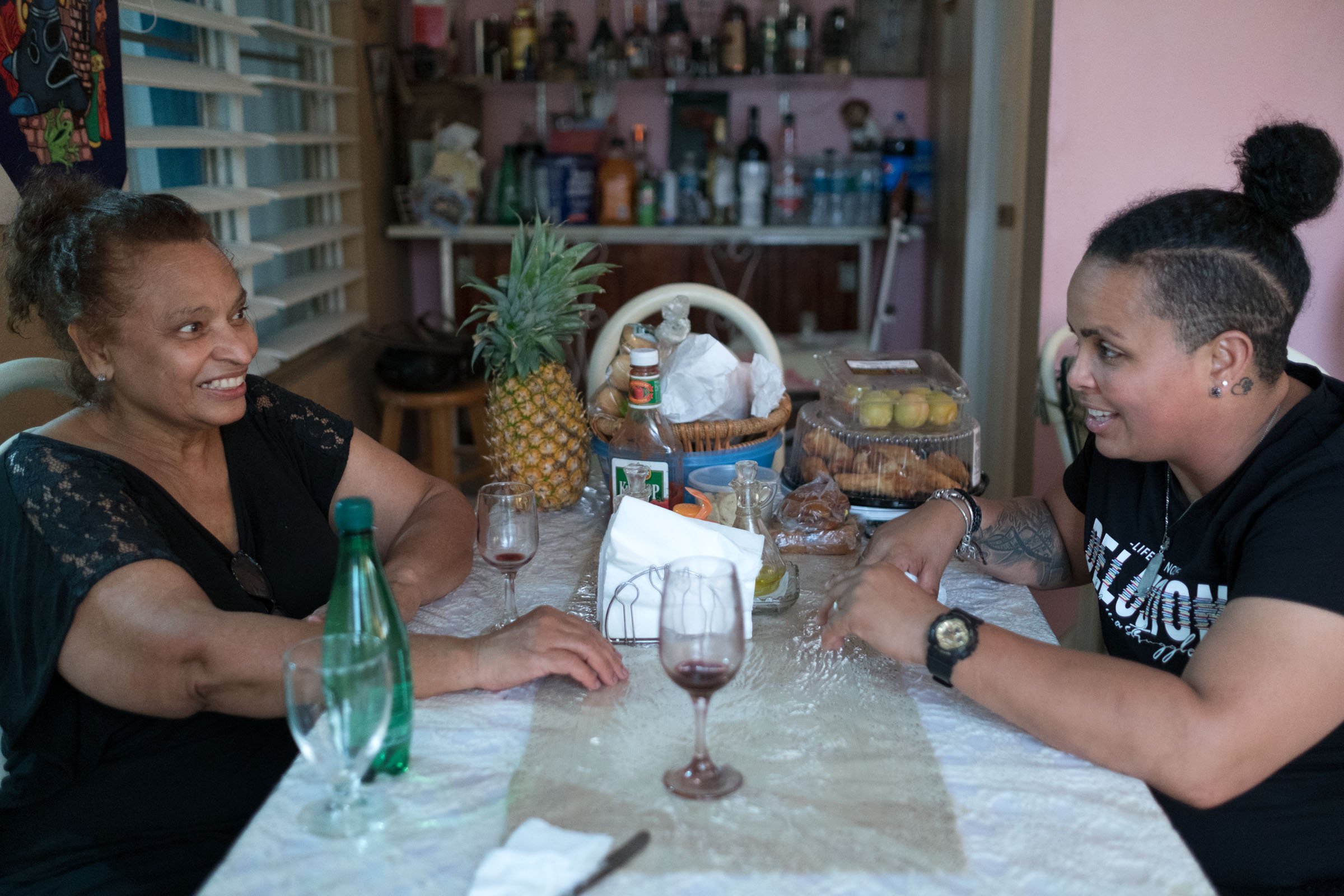
Evelyn with her step-mom. San Juan, Puerto Rico (September 2021)
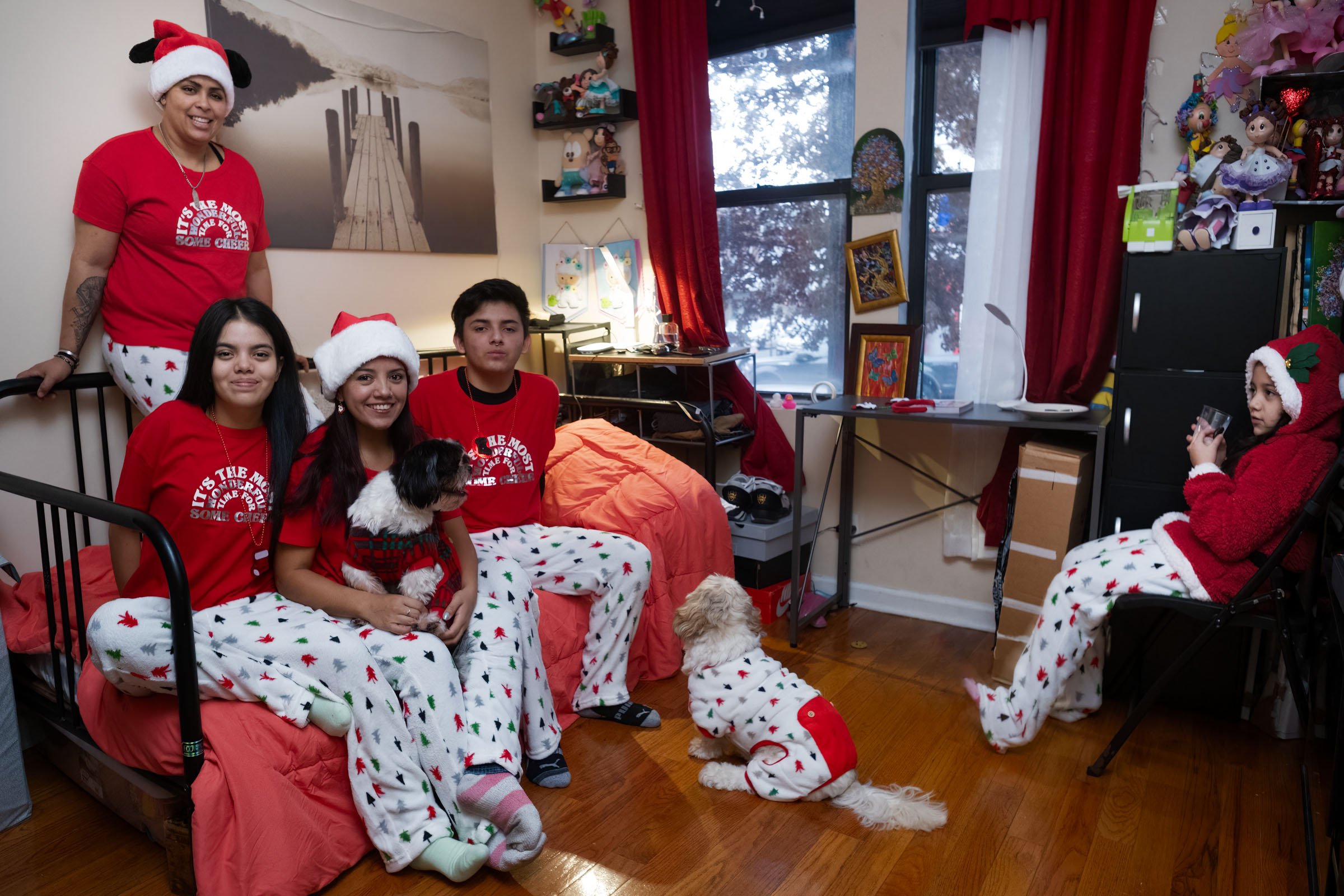
Evelyn, with her wife Andrea, and Andrea’s three children, who moved from Ecuador in August, 2021, to live with Evelyn and Andrea. Queens, NY (December 2021)
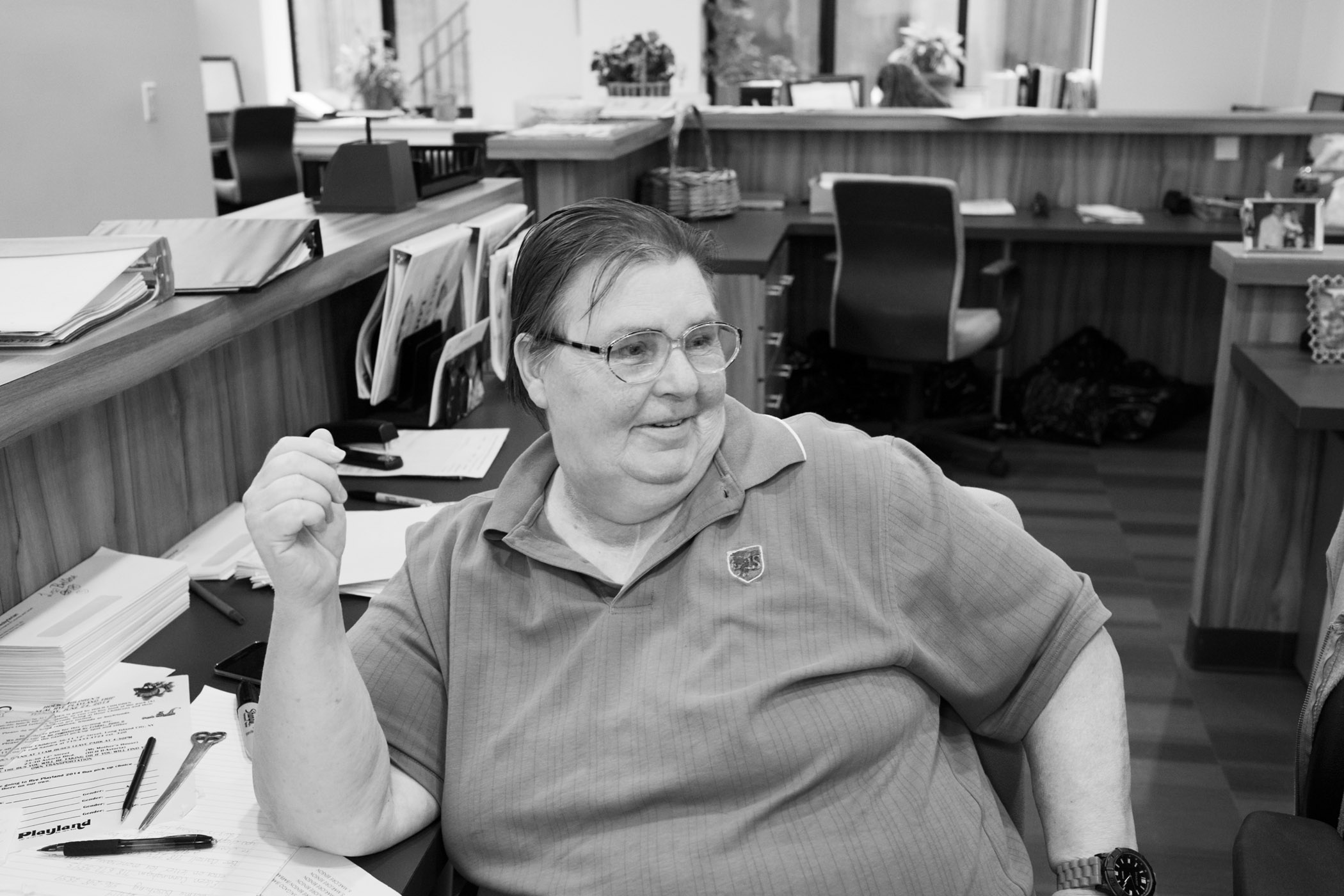
“I volunteer to say thank you for taking me in. If it weren’t for Hour Children, I would have ended up in a homeless shelter."
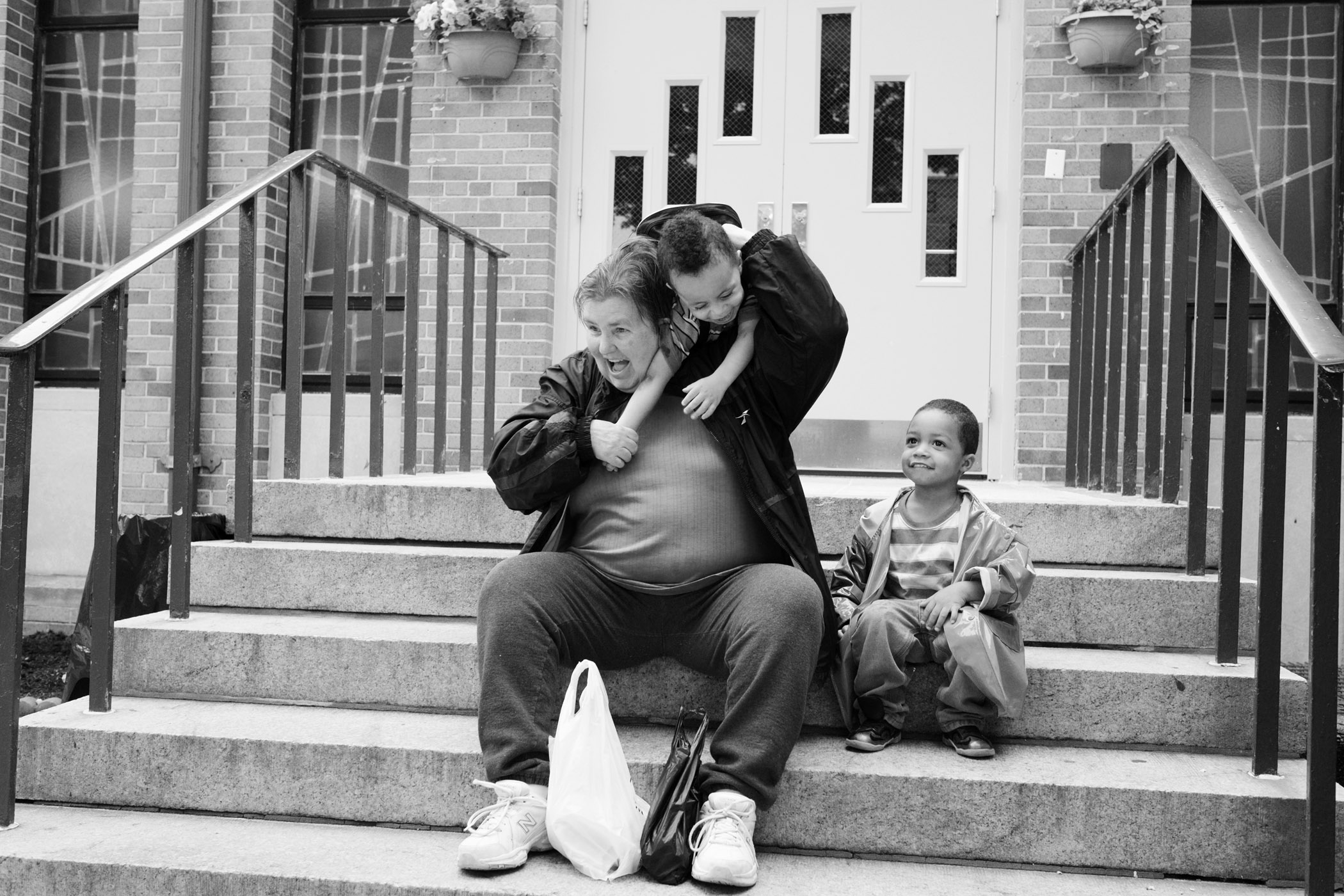
“I’ve always loved kids. They’re so innocent and full of joy. In prison, I wasn’t allowed to work on the nursery because I had a violent crime. Now it’s my chance.”
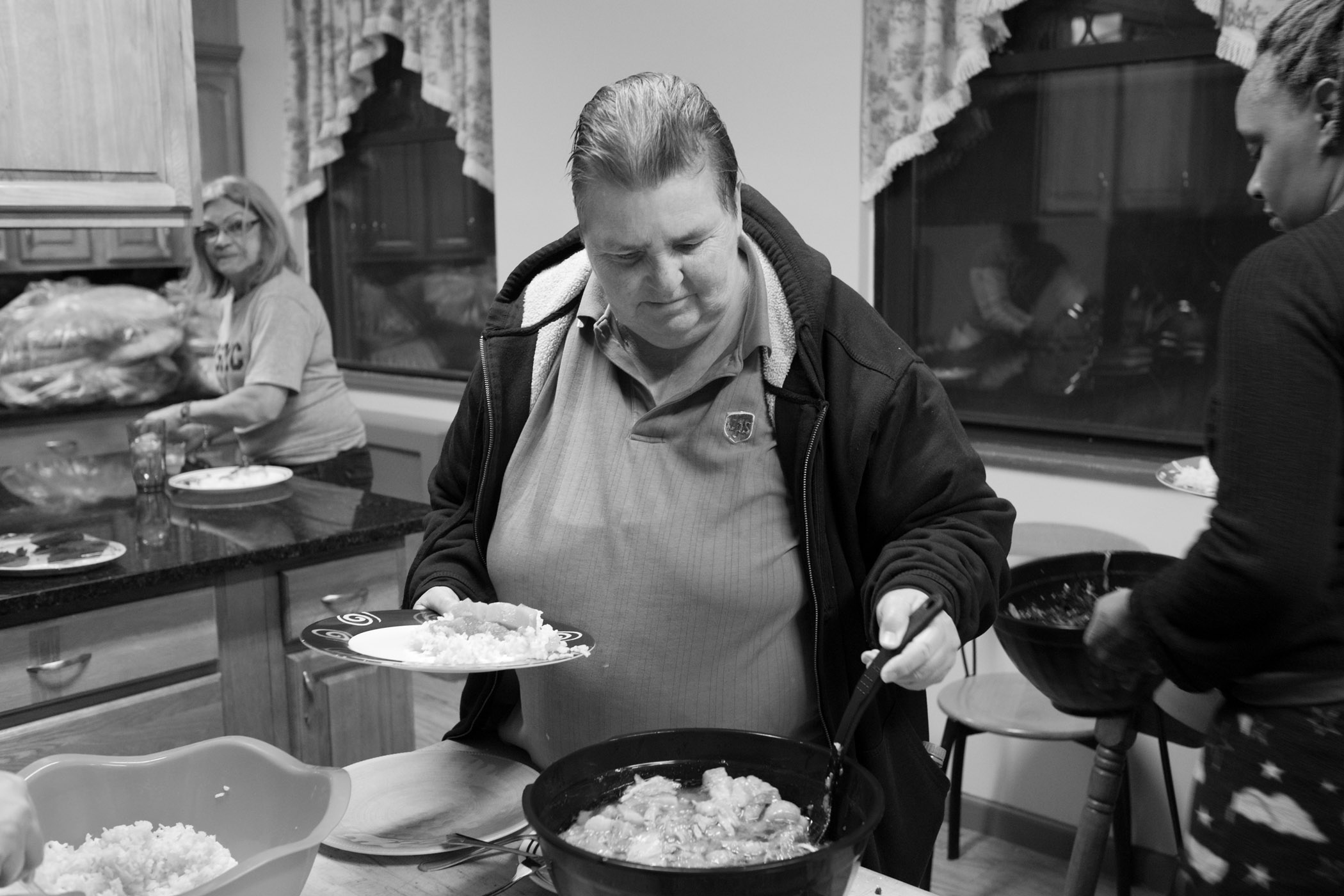
“Each one of us takes a turn cooking. We cook what we want, depending on what’s available in the freezer. We each put in $100 worth of food a month. We’re cooking for about 12.”
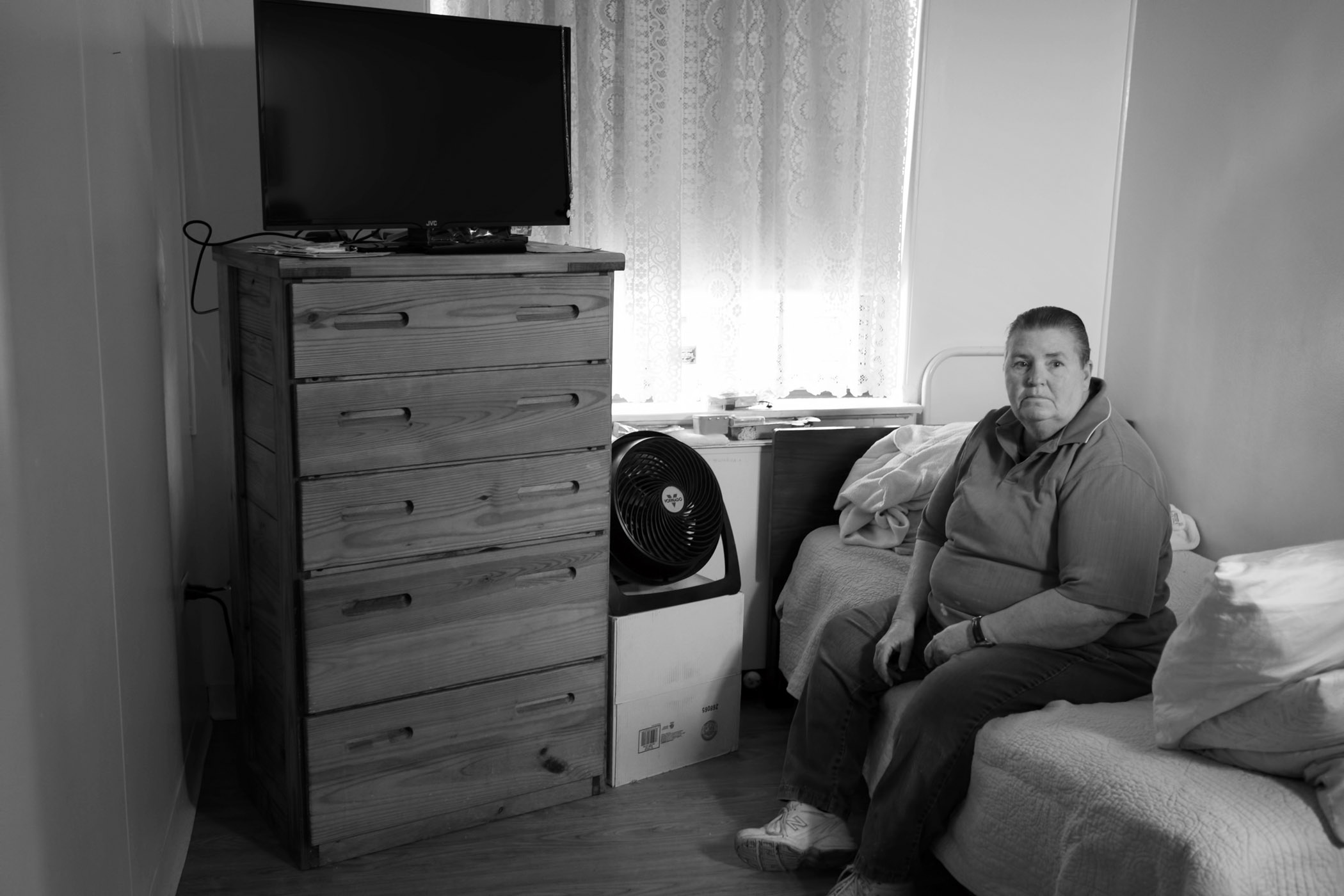
“I don’t know why they finally gave me parole on my sixth try. I had a good record. Maybe it’s because I’d had two heart attacks and I was expensive. You can’t make up for 35 years. The world is different; I’m different. I wasn’t going to do a ‘catch-up.’ How do you catch up for 35 years?”
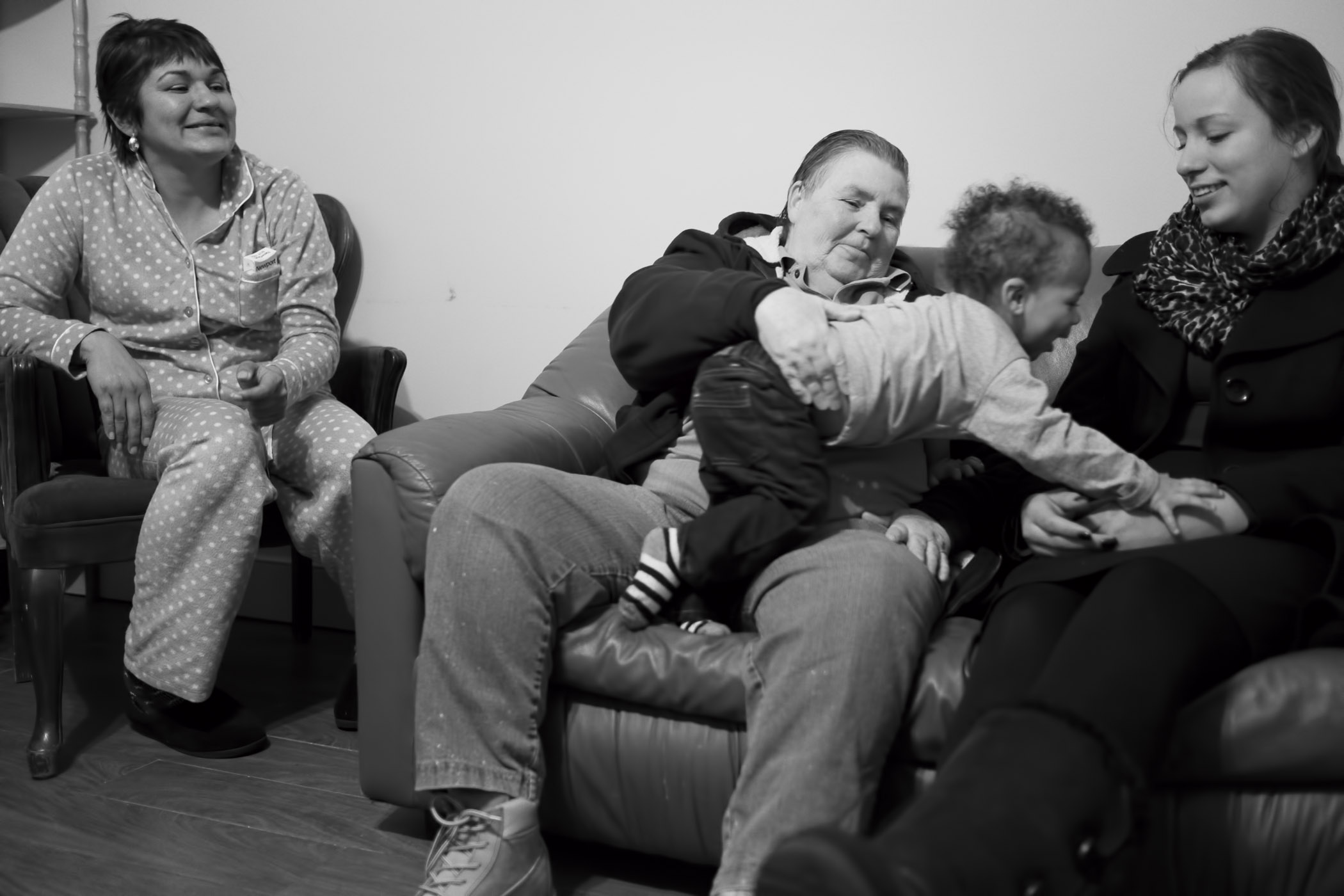
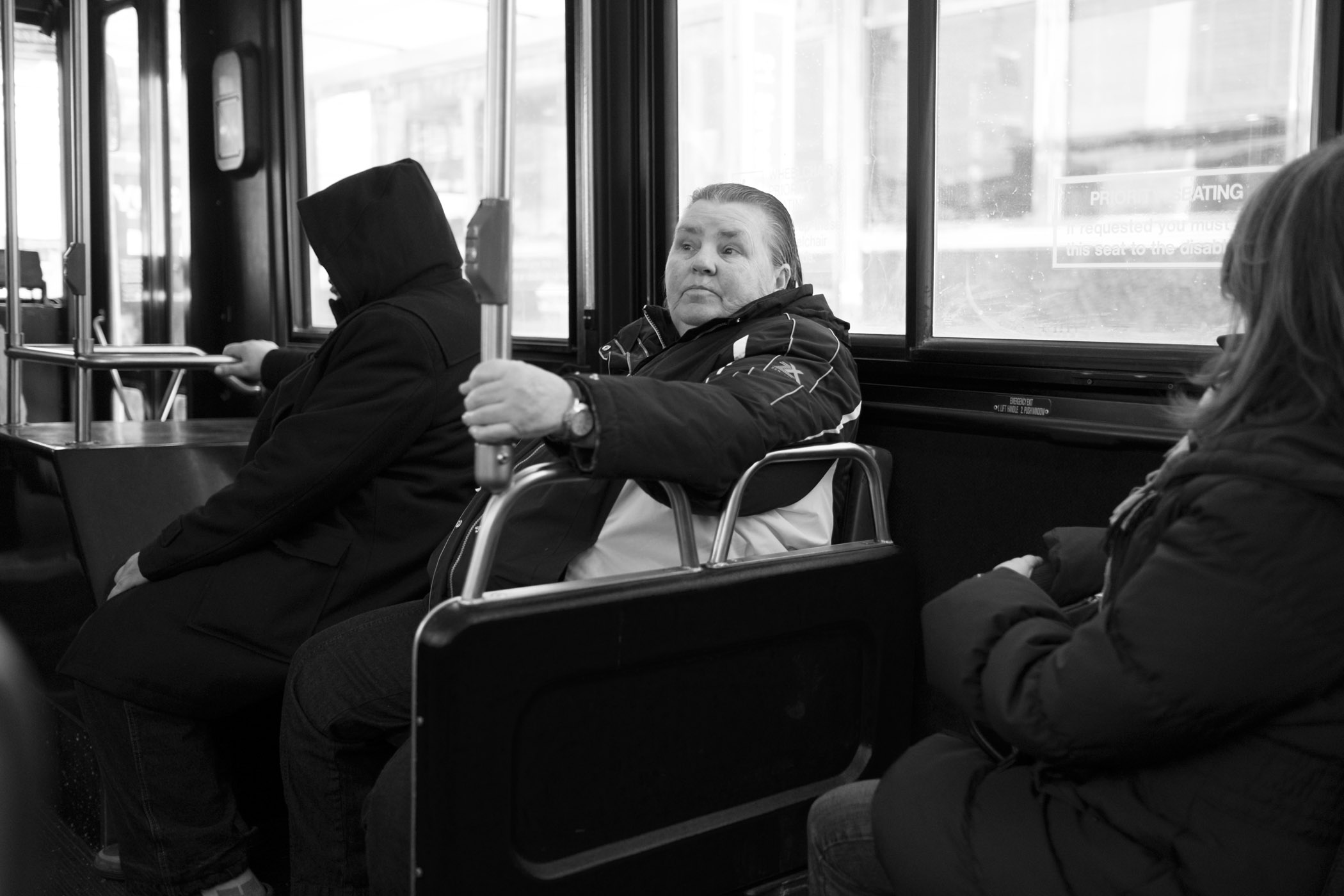
“I don’t go out much. I work across the street from where I live. I go to the doctor or do a little shopping. Sometimes I go out with a friend. It might not sound like much, but I’m free.”
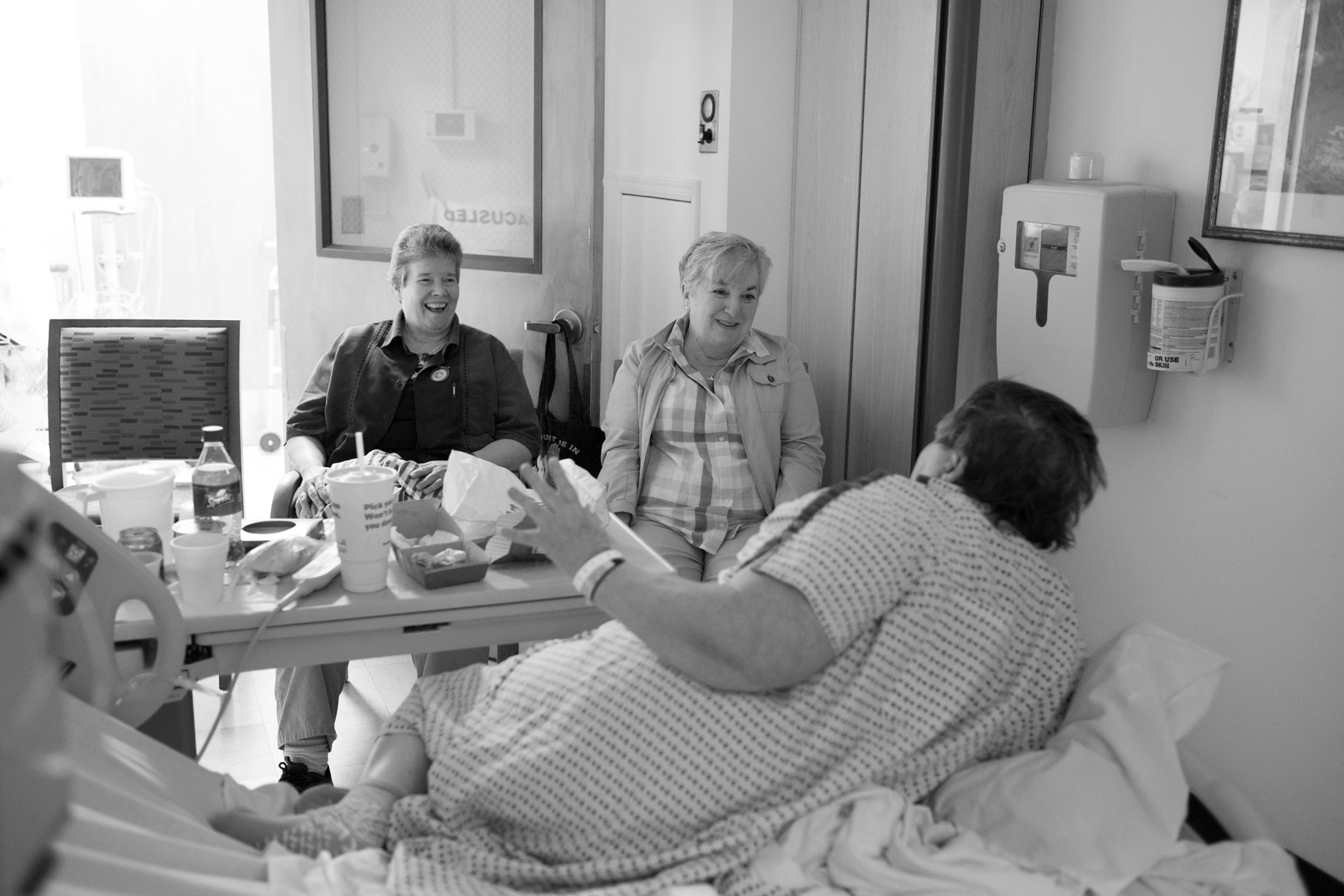
“My last three years in prison I spent on the RMU [Regional Medical Unit]. It’s like a mini hospital, but it’s really isolating. It’s worse than solitary. No one can visit you because everyone’s in their programs during scheduled visiting hours.”
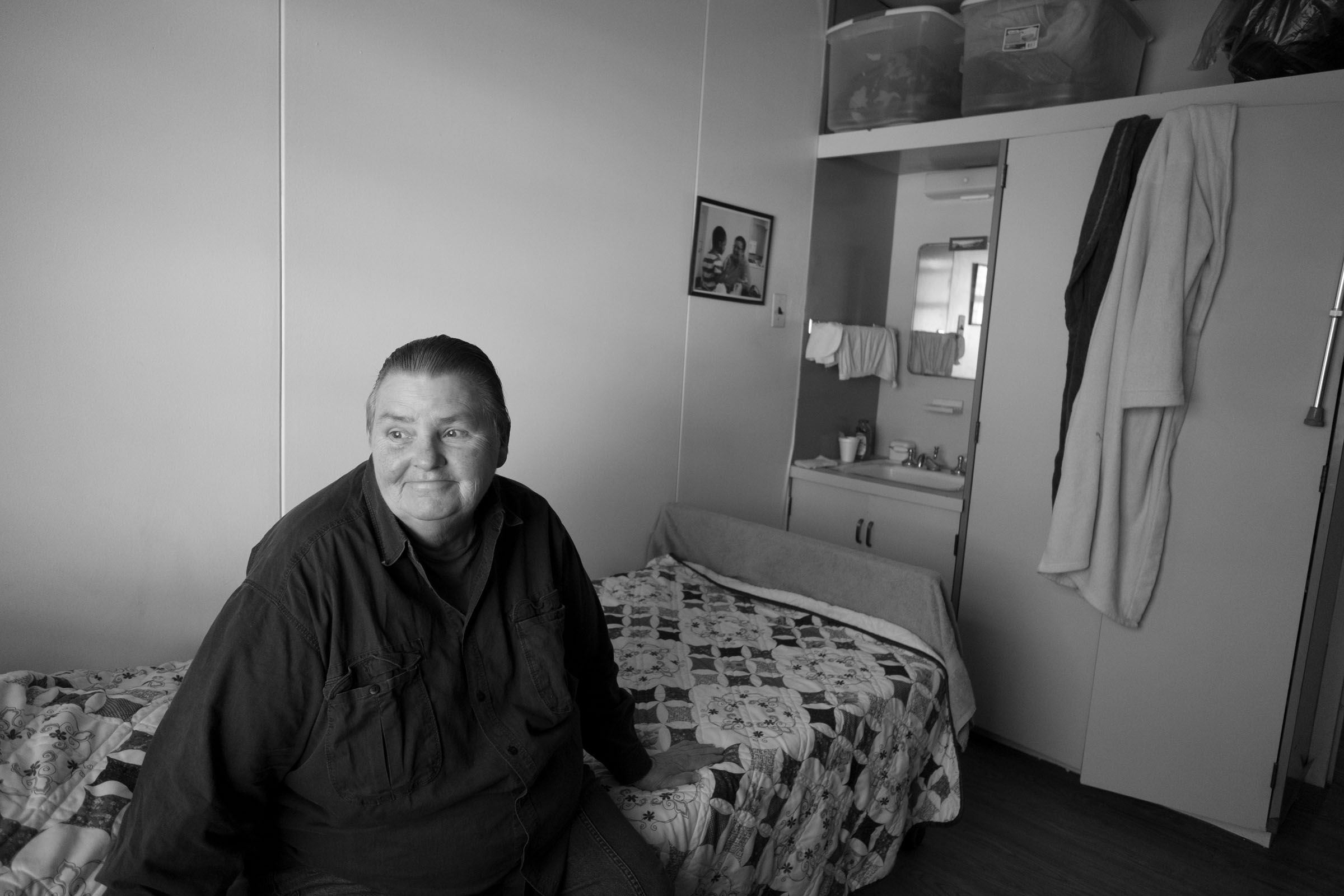
Carol in her bedroom. Long Island City, NY (2017)
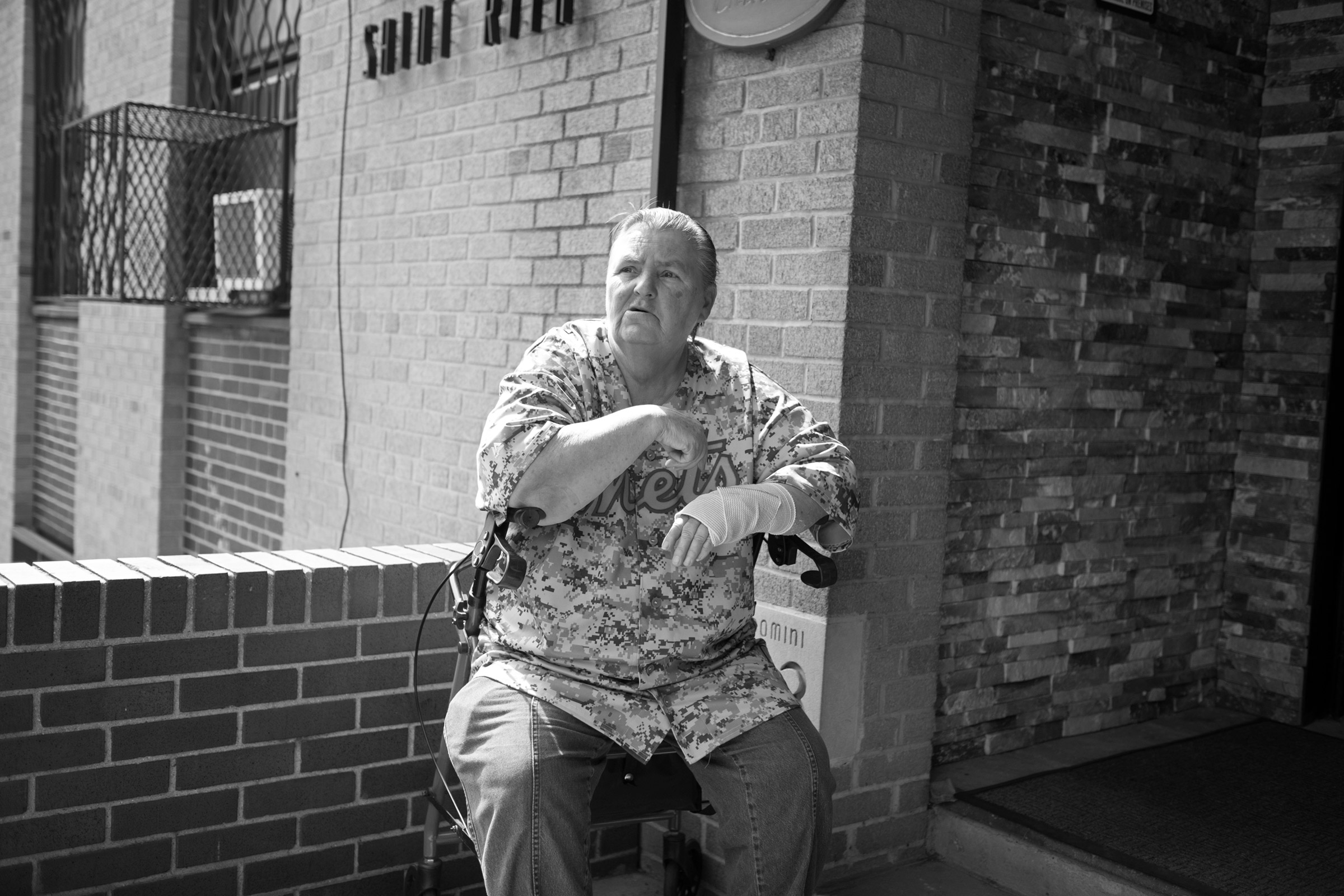
Carol after a fall that left her with a broken wrist and requiring care from a home health care attendant. Long Island City, NY (September 13, 2017)
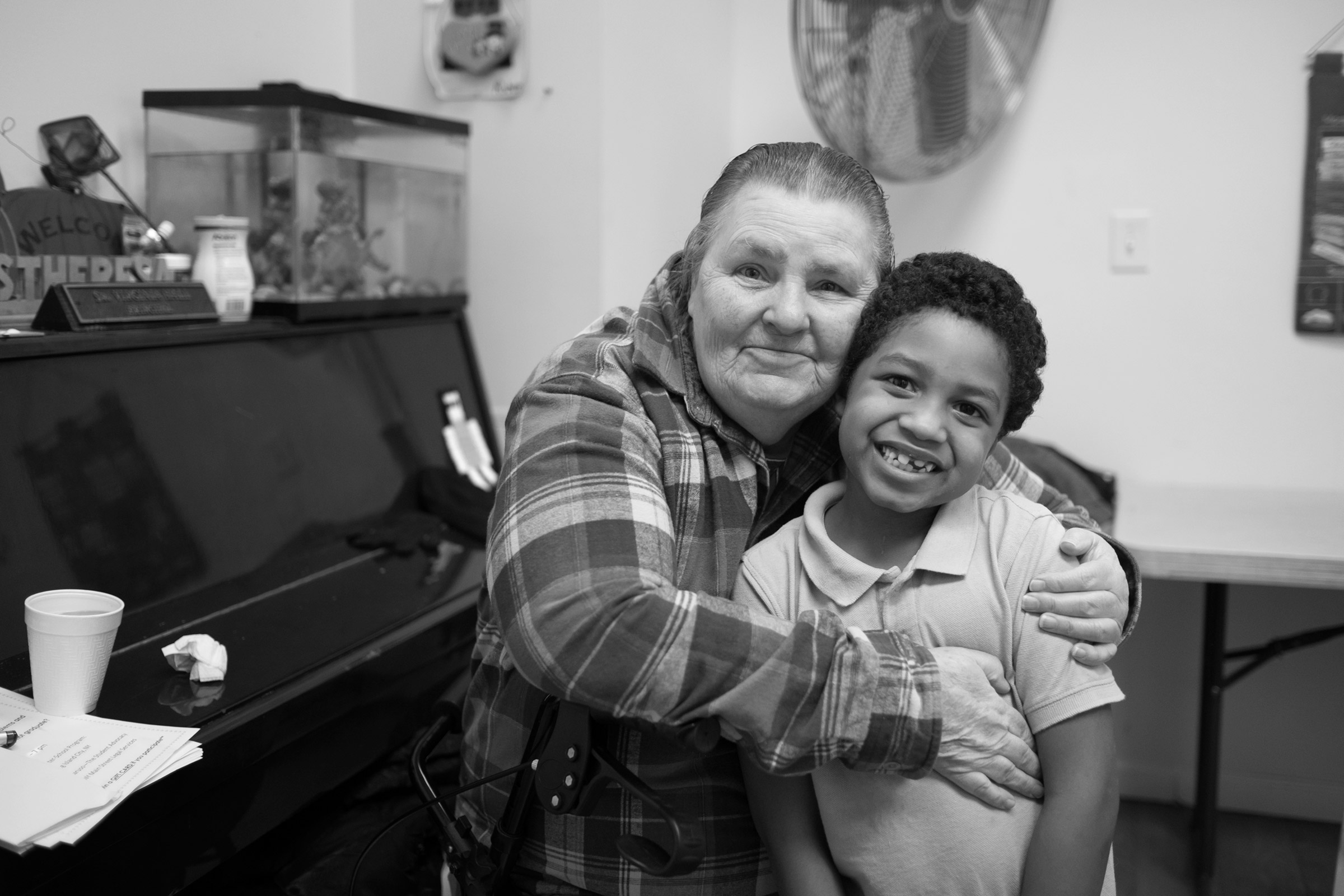
Carol with Cecil, now age six. Long Island City, NY (February 1, 2018)
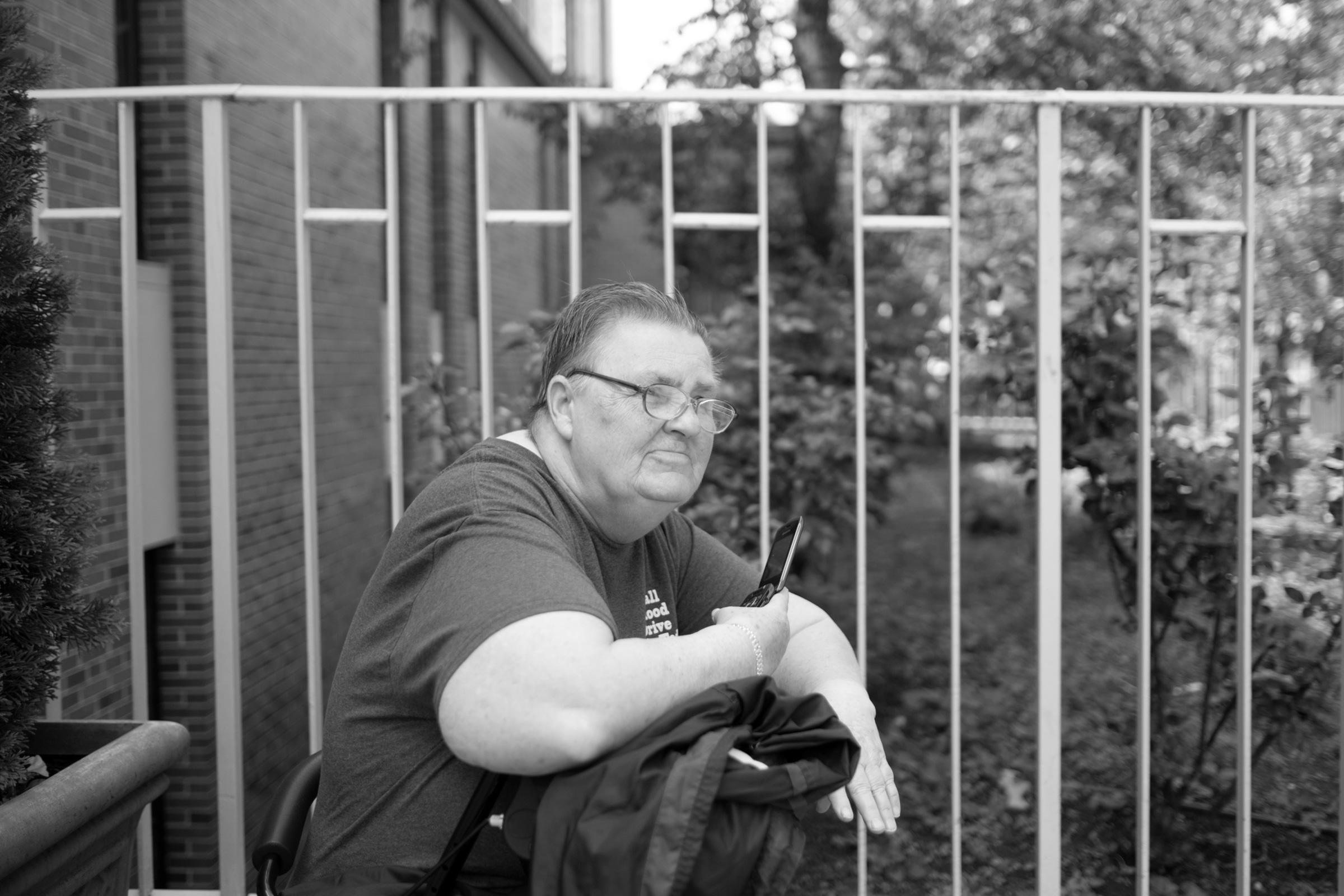
Carol, 70. Long Island City, NY (May 20, 2019)
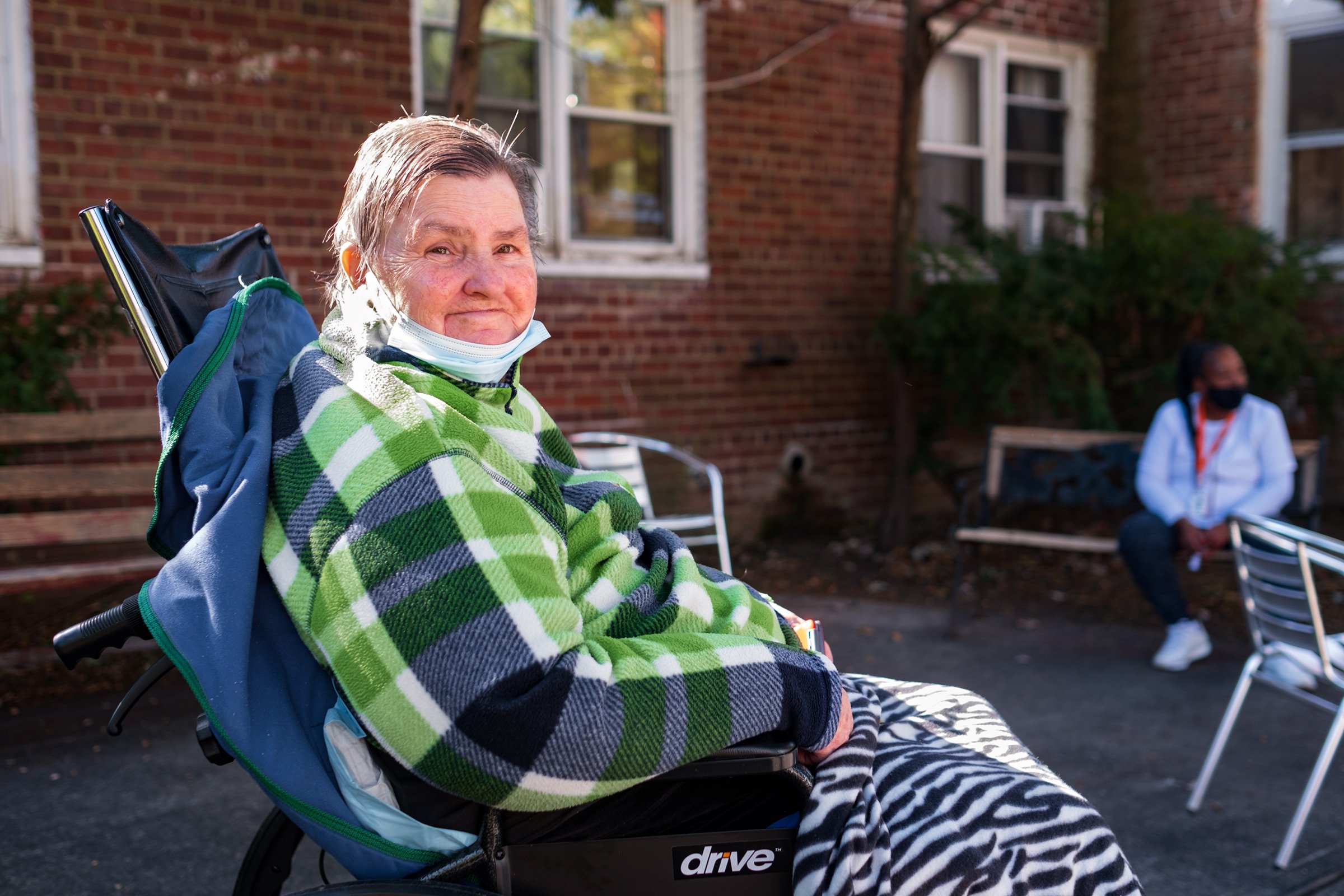
Carol, 73, Far Rockaway, NY (October 20, 2021)
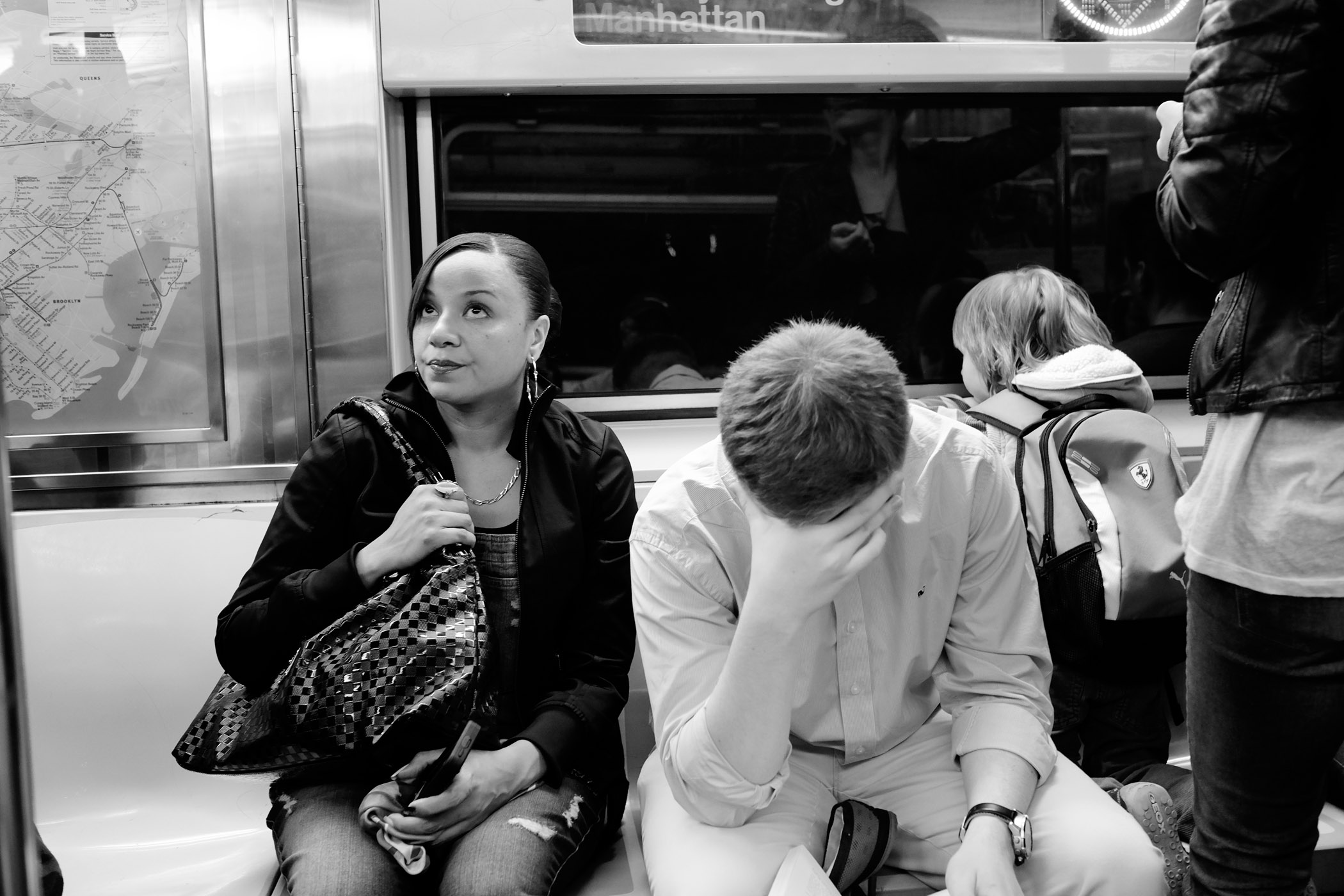
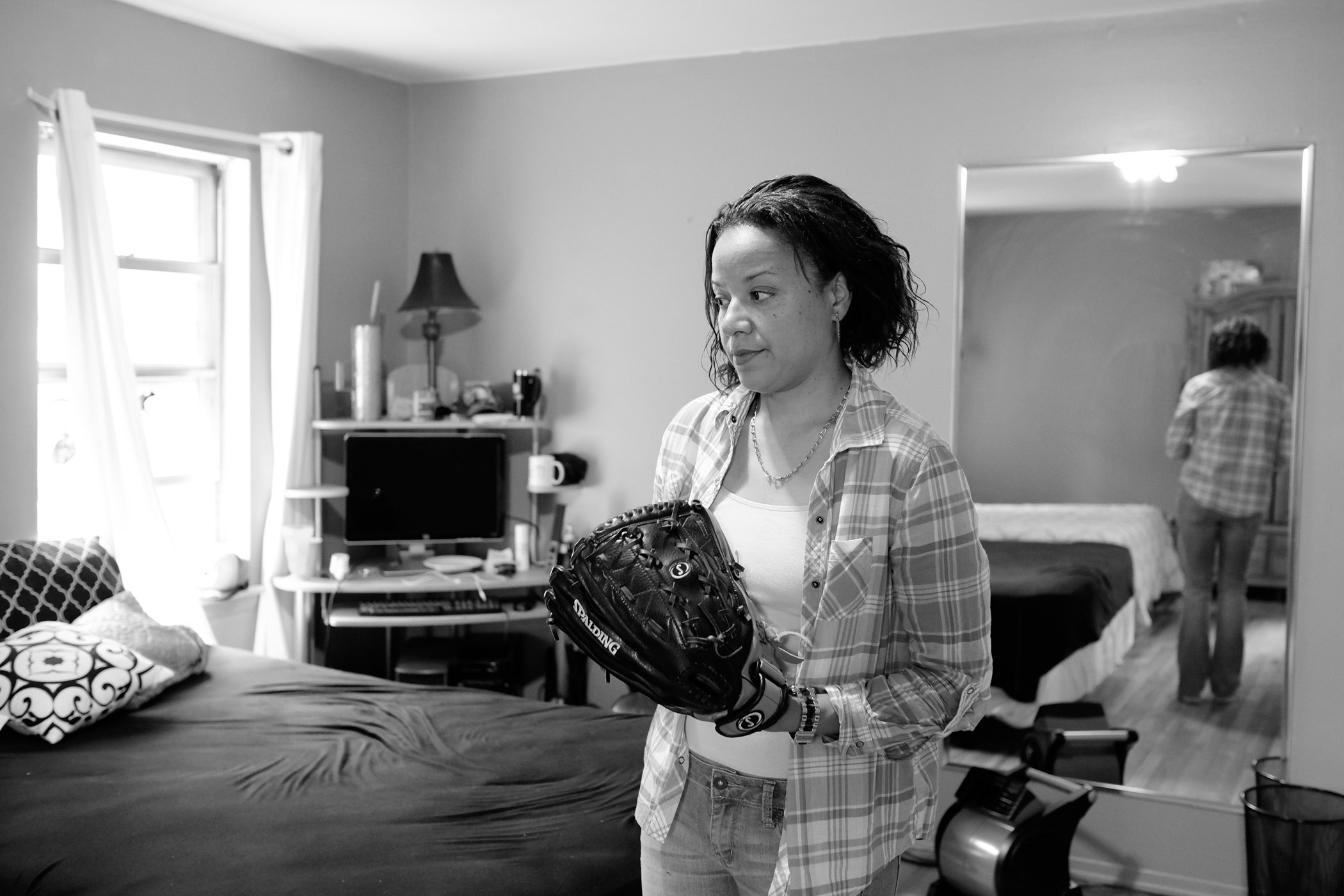
“My dad bought me this softball glove when I joined the prison team. He died while I was in there. Two officers transported me to the funeral home. I was in cuffs for twenty hours. He was the man I loved the most in this whole world. It just went all wrong. They made it worse.”
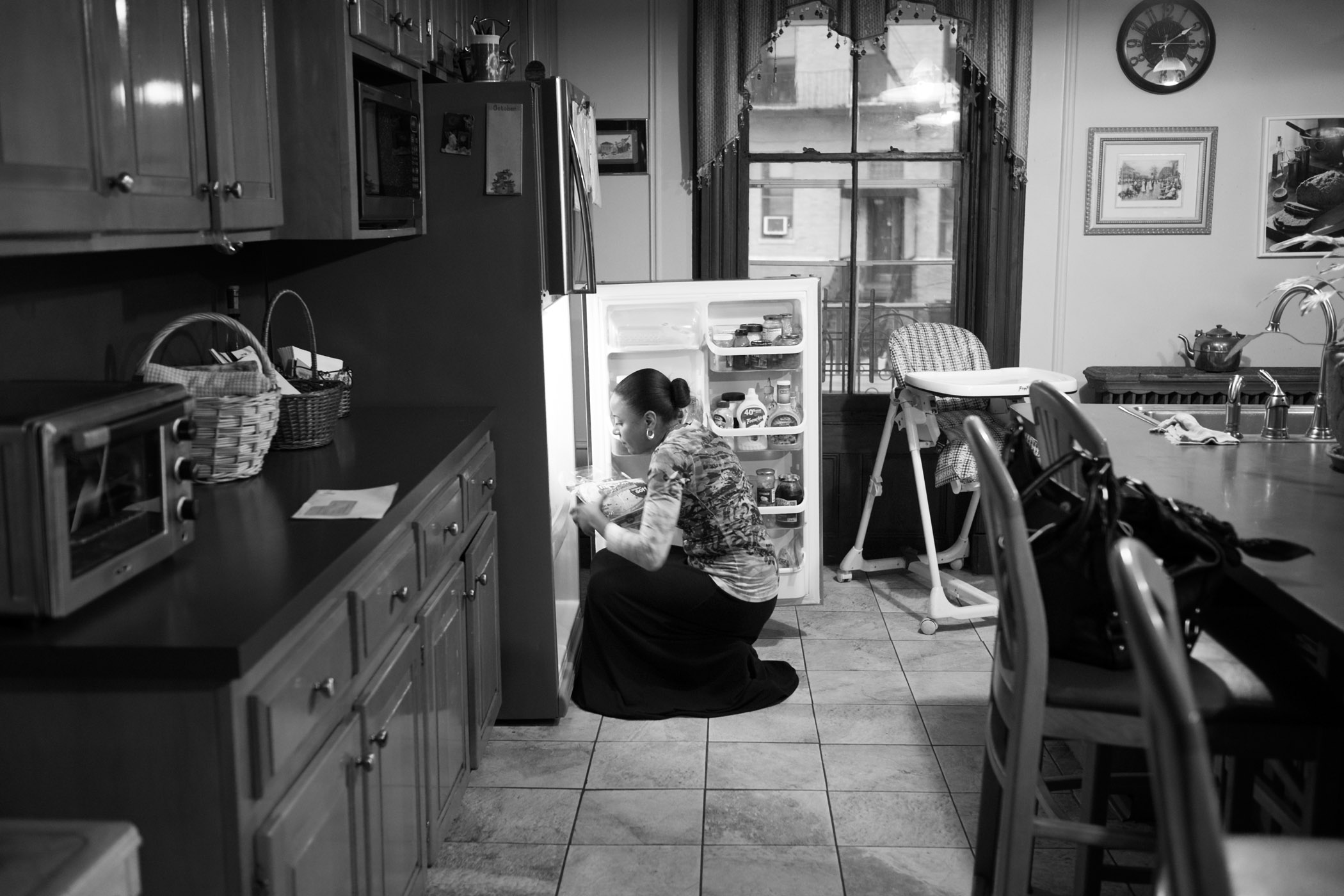
“My reentry is starting now. I don’t regret spending the summer with my family but they weren’t equipped for how I was feeling. They didn’t get the anxiety, that I was sad — you’re free, you’re home, move on.”
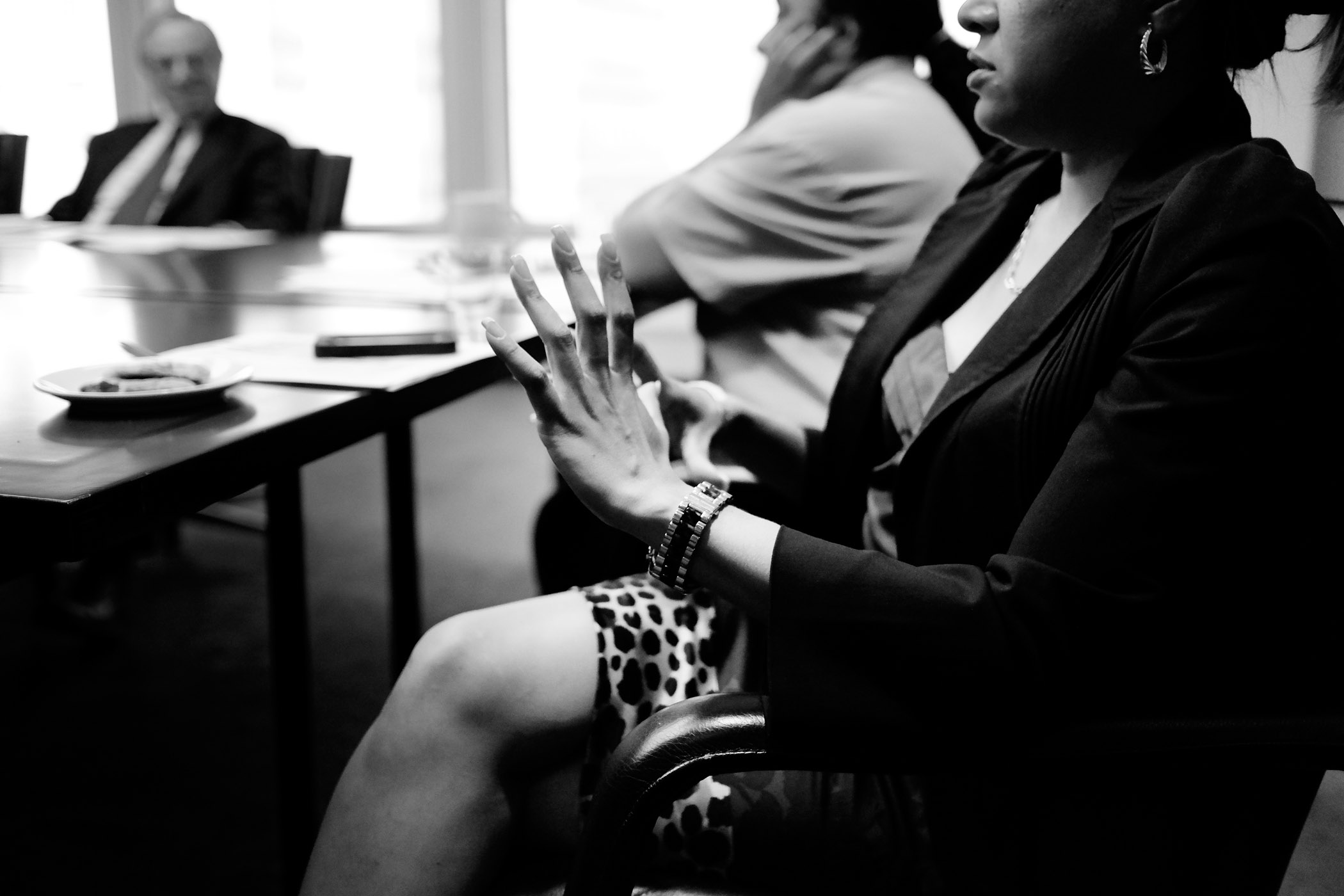
“I got to tell my story to people who are important in the community and who are in a position to help people who are still in prison. I want the women who are still inside to have support.”
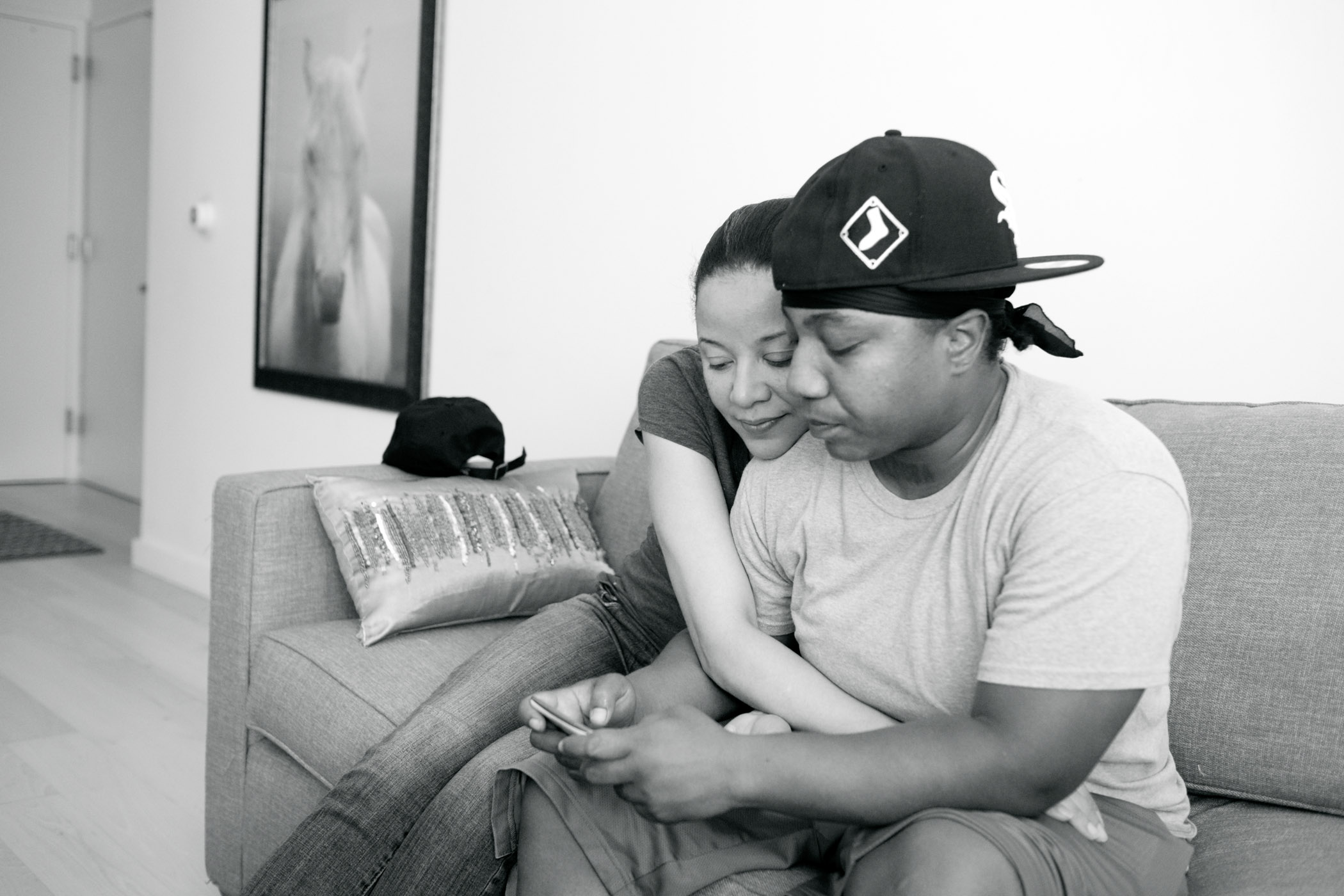
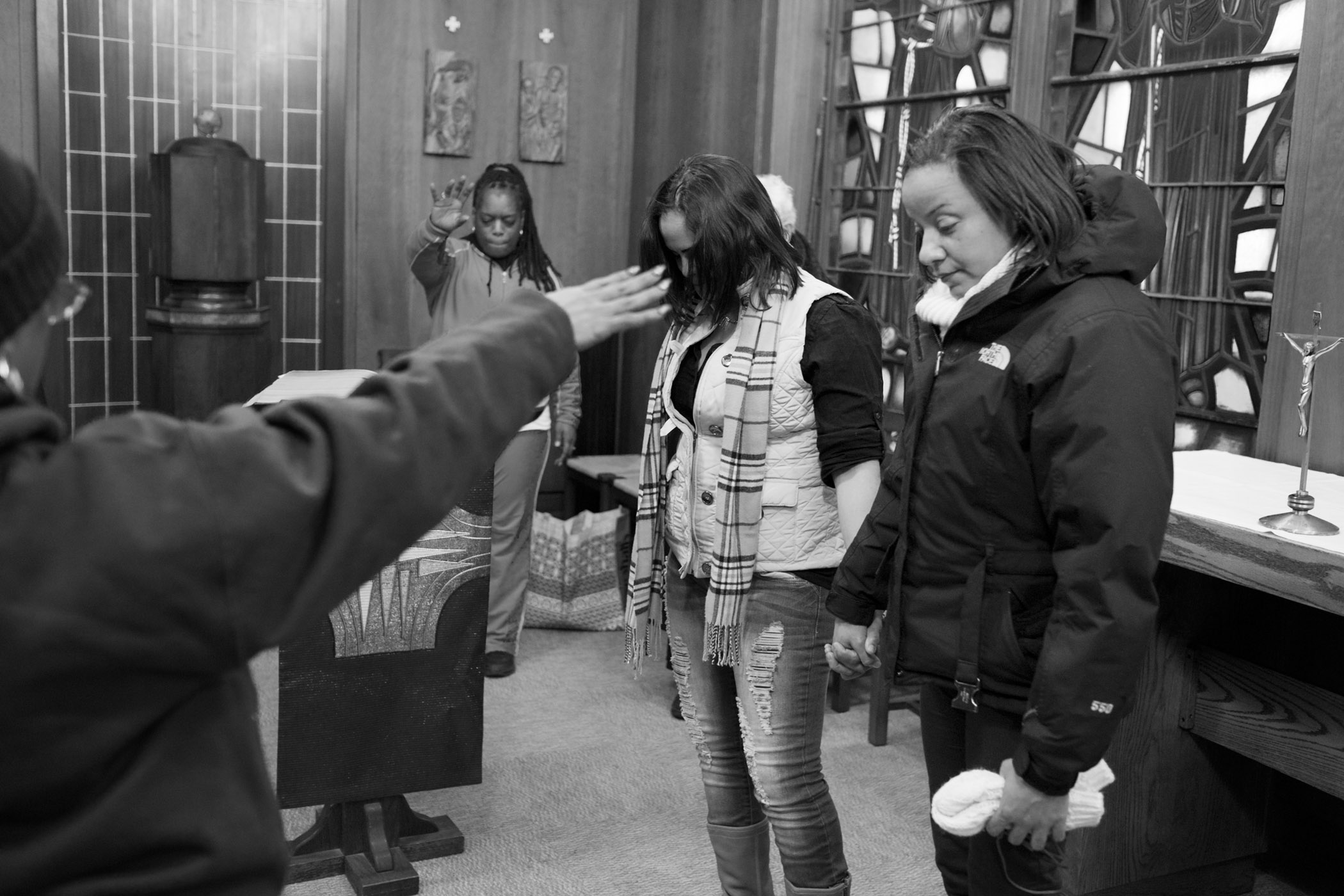
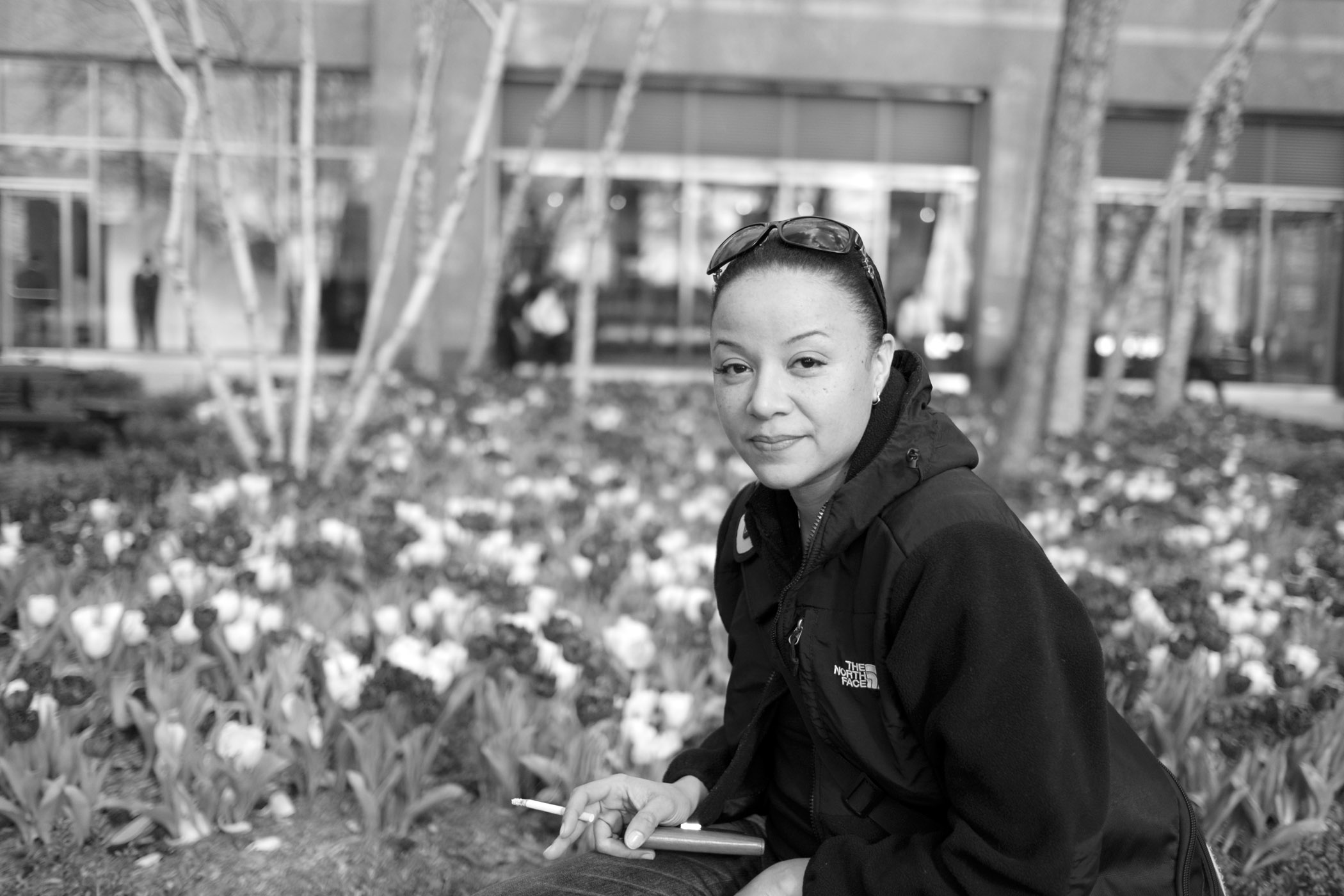
"This year went fast. I’m not quite where I want to be but I’m in a good place. I’m going to be ok.”
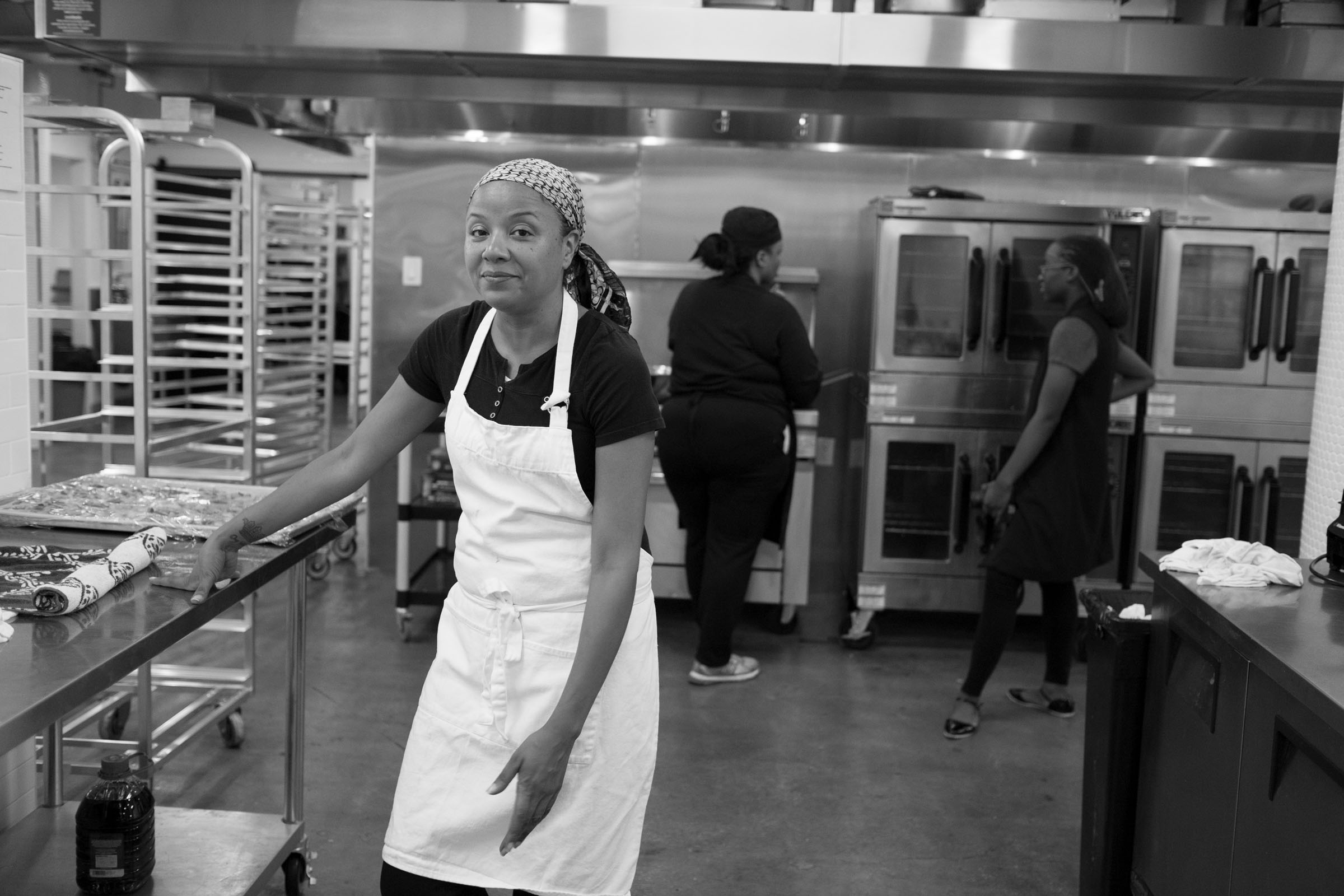
Keila on a catering job. Brooklyn, NY (2016)
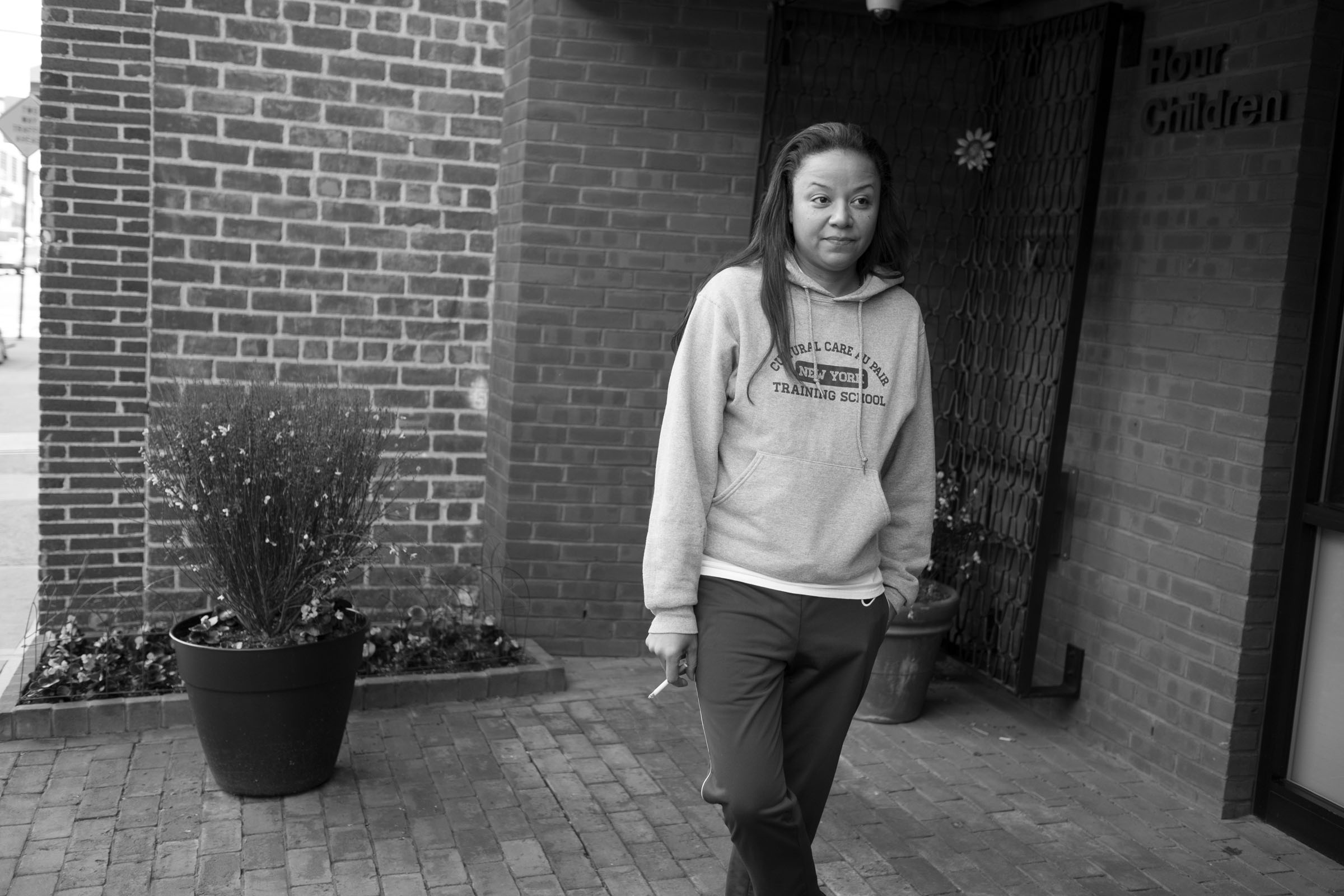
Keila on the third year anniversary of her release. Long Island City, NY (2017)
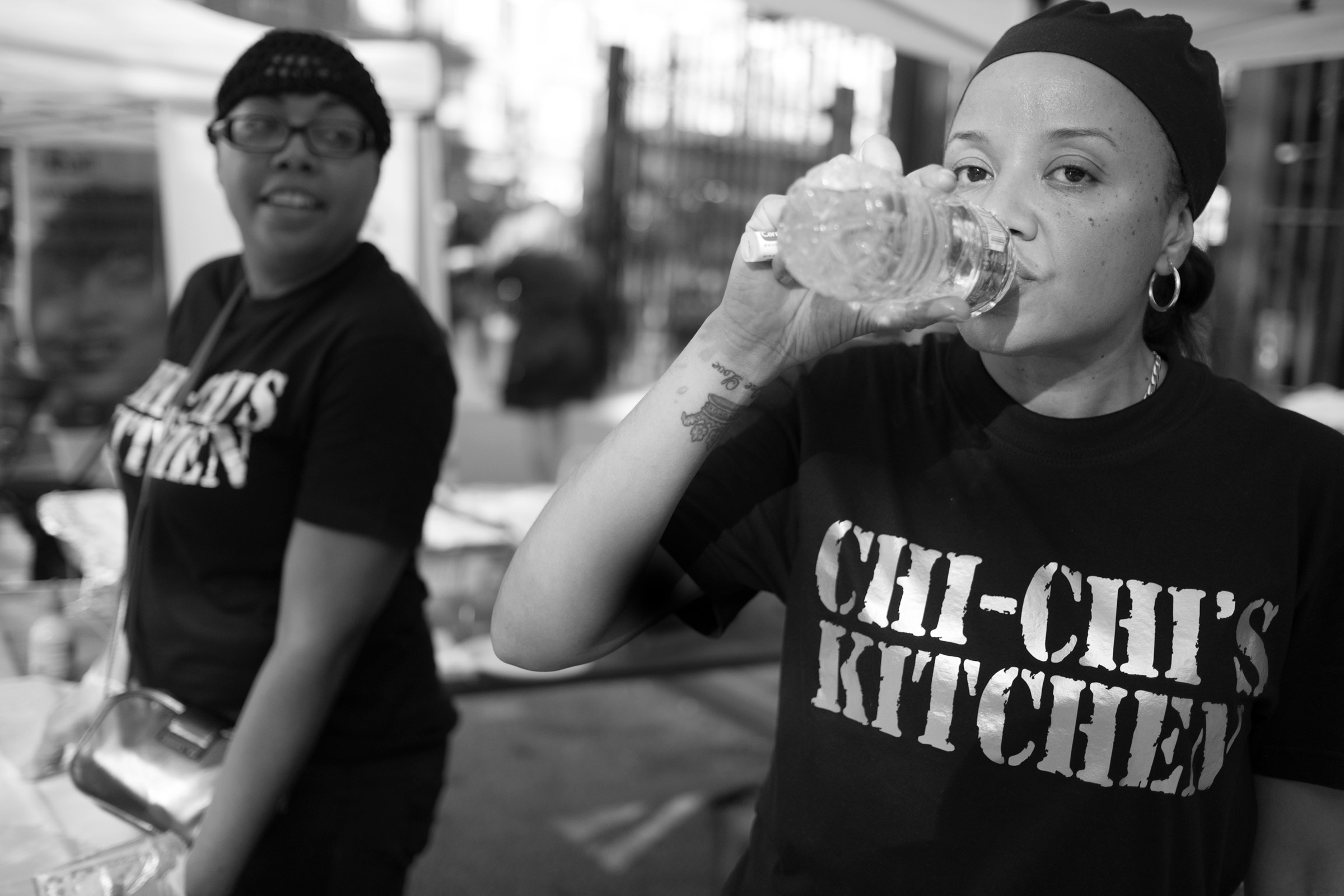
Keila, with her own catering business, Chi Chi’s Kitchen, at a street fair. New York, NY (2017)
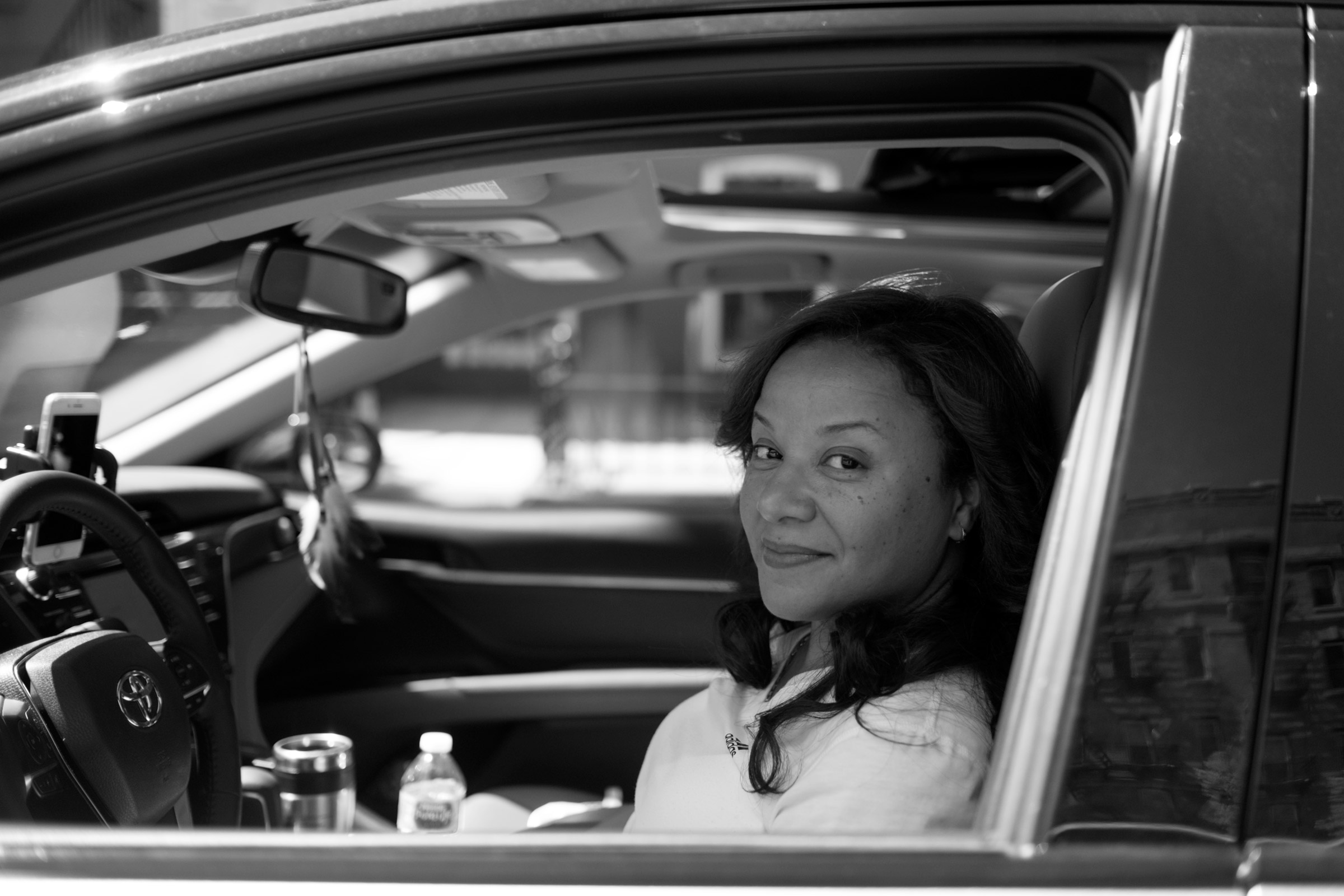
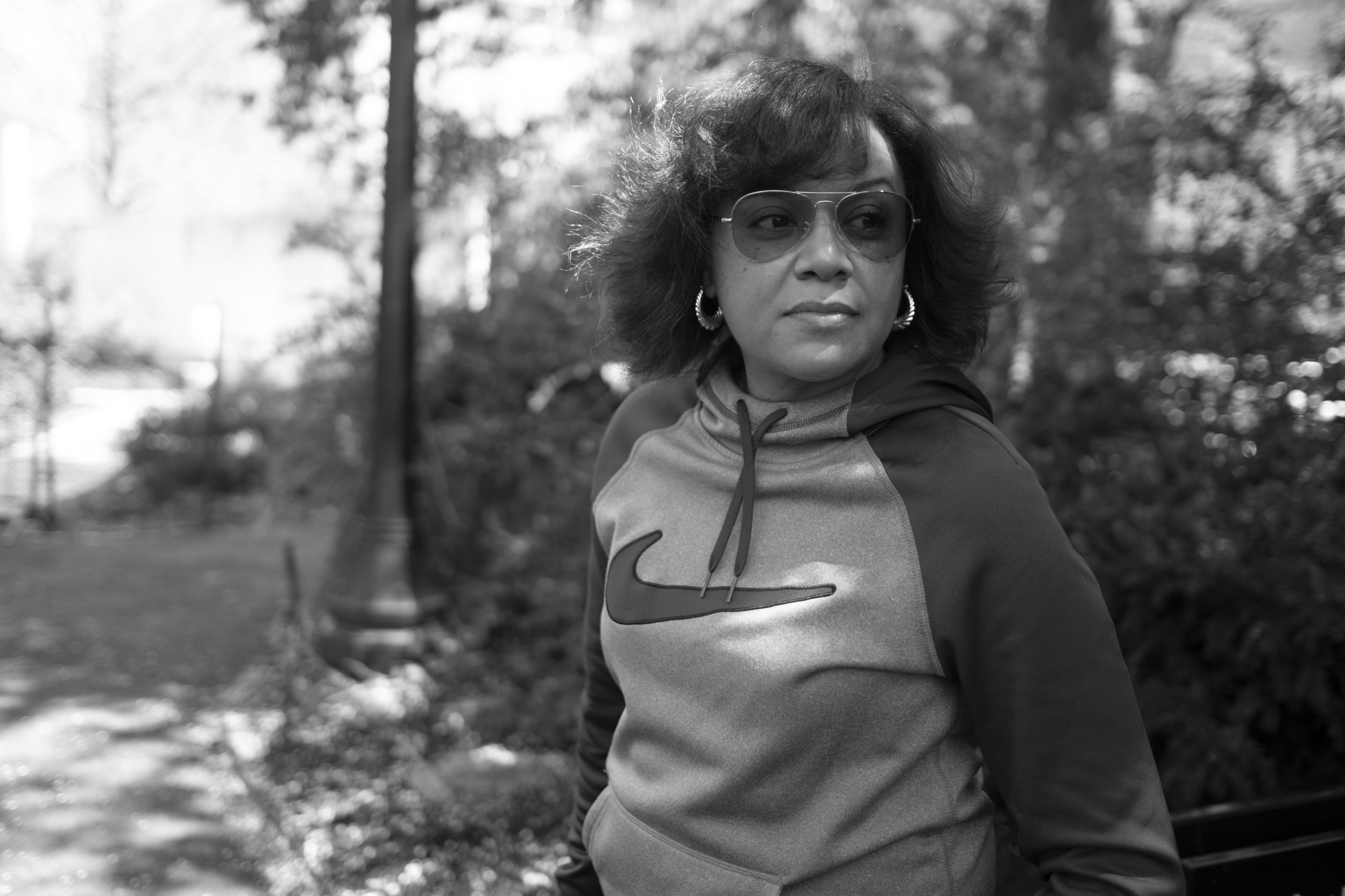
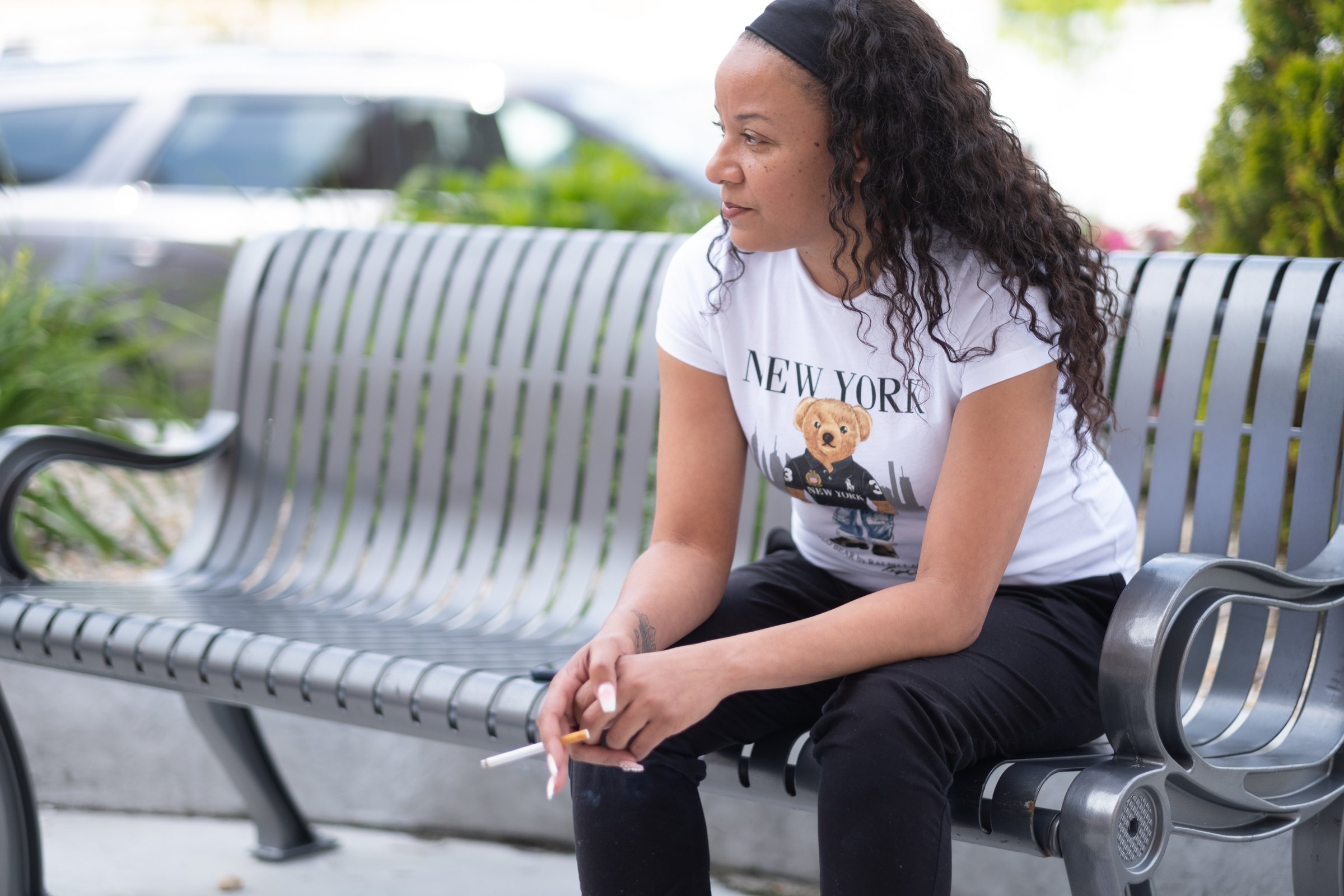
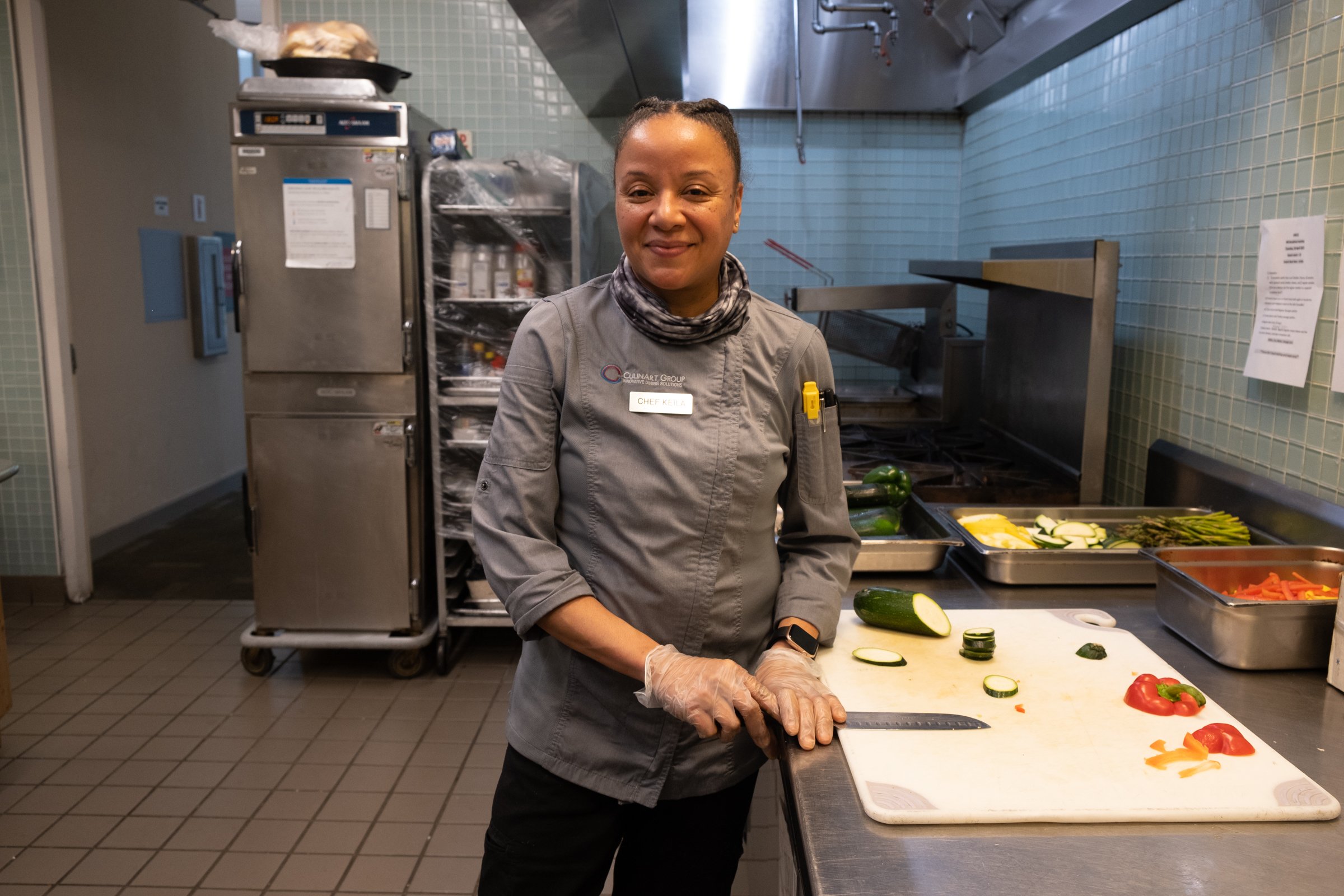
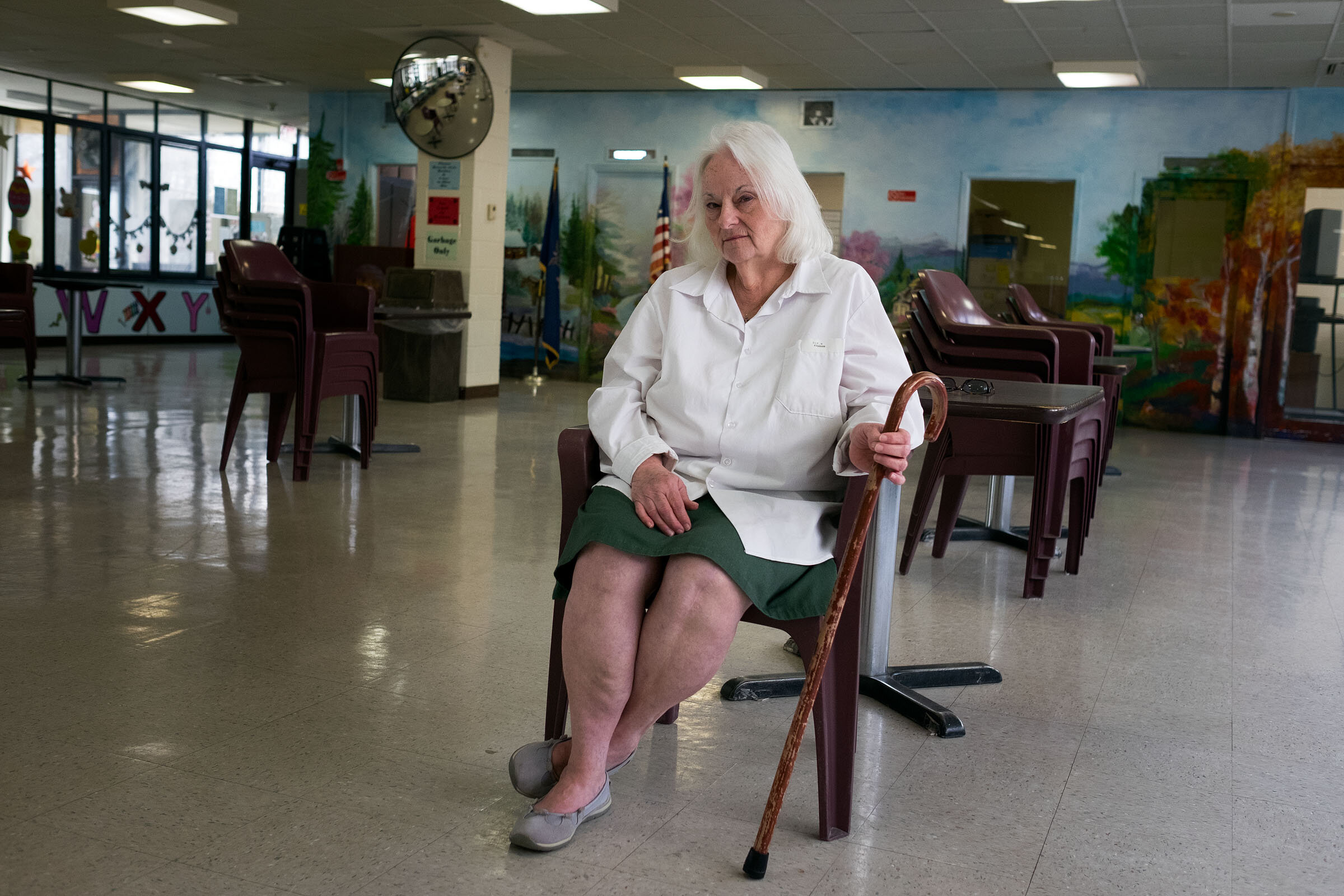
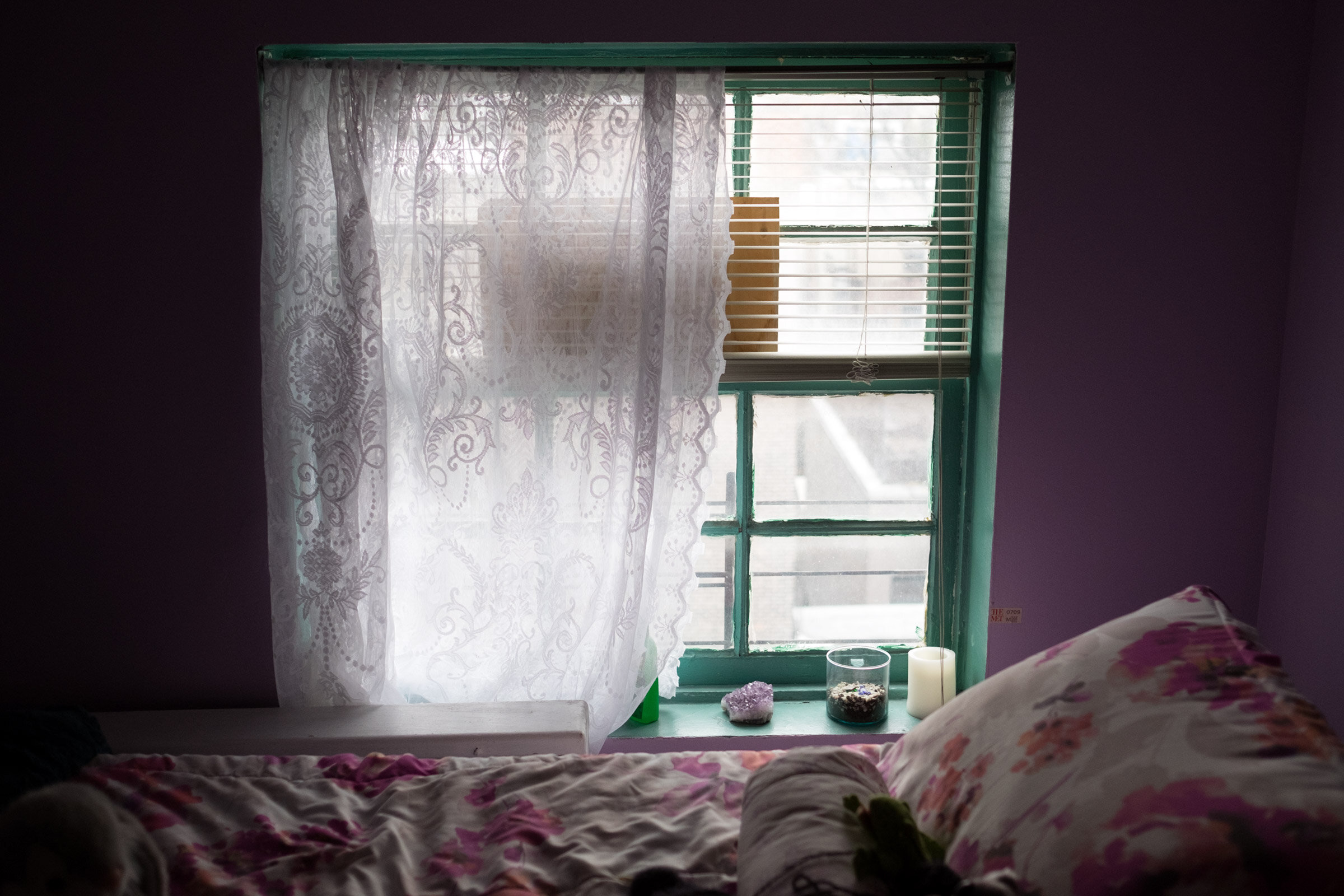
Karen’s bedroom at the homeless shelter, six months after her arrival. East Village, NY (December 17, 2017)
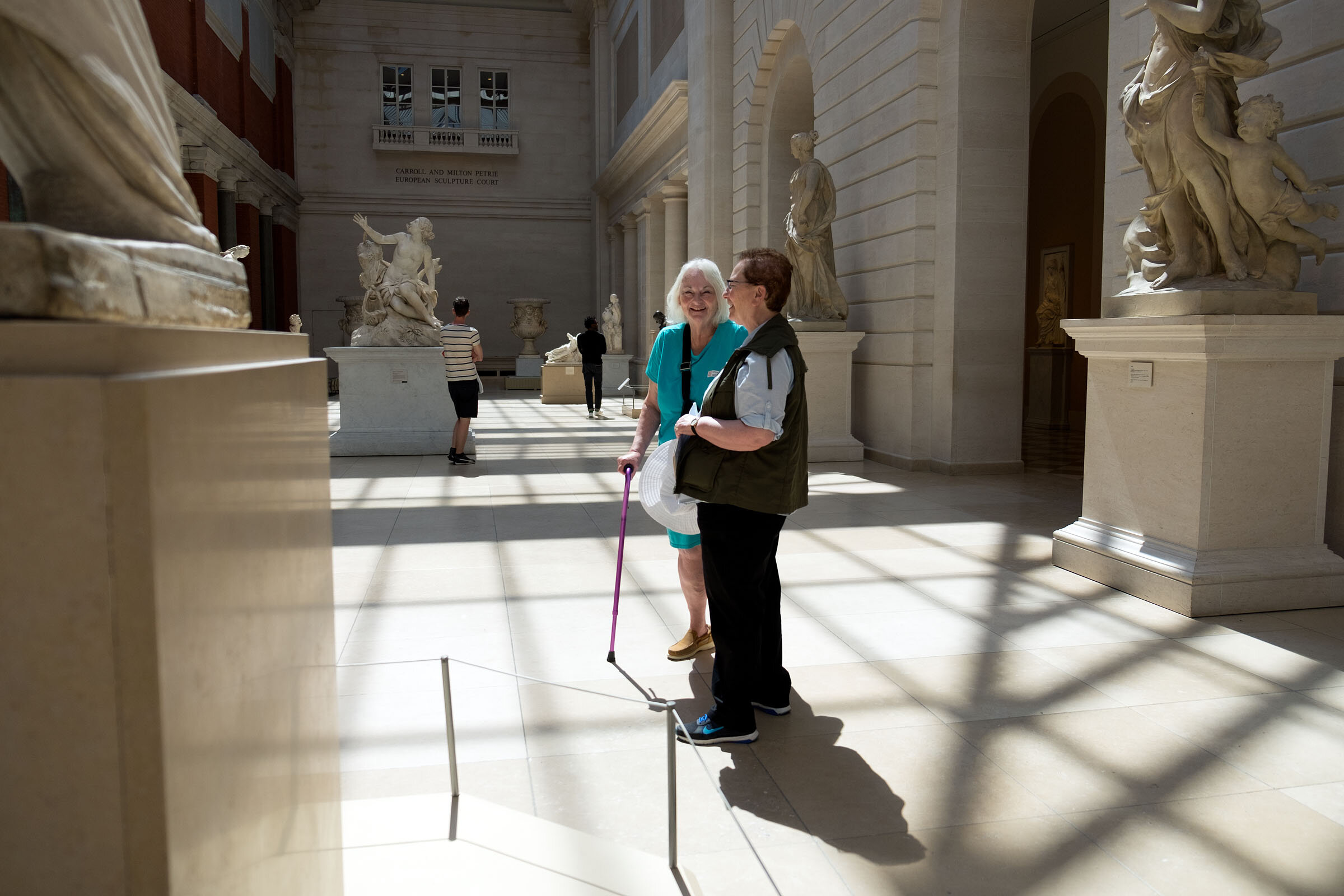
At the Metropolitan Museum of Art with the former Superintendent of Bedford Hills Correctional Facility. New York City (July 19, 2017).
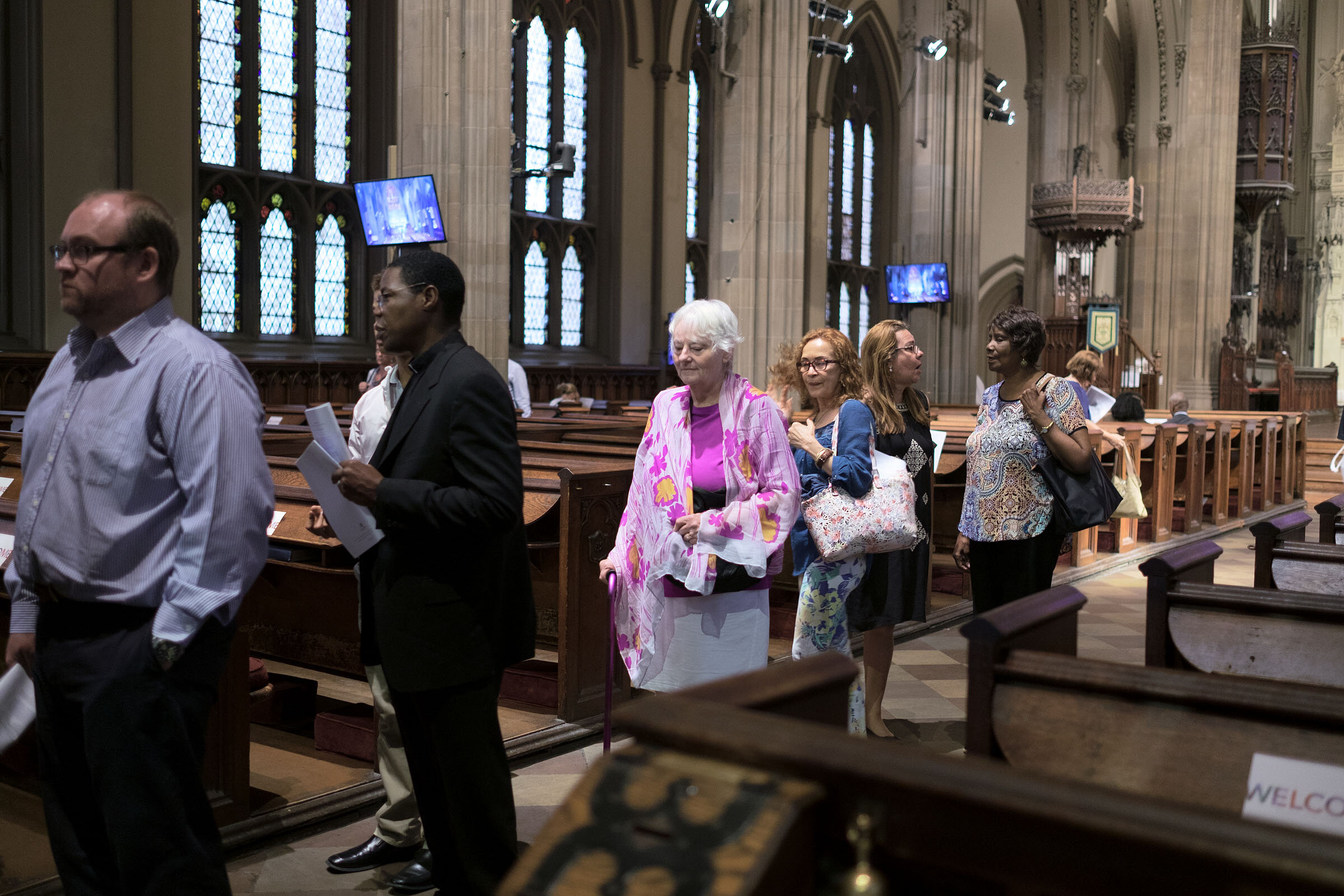
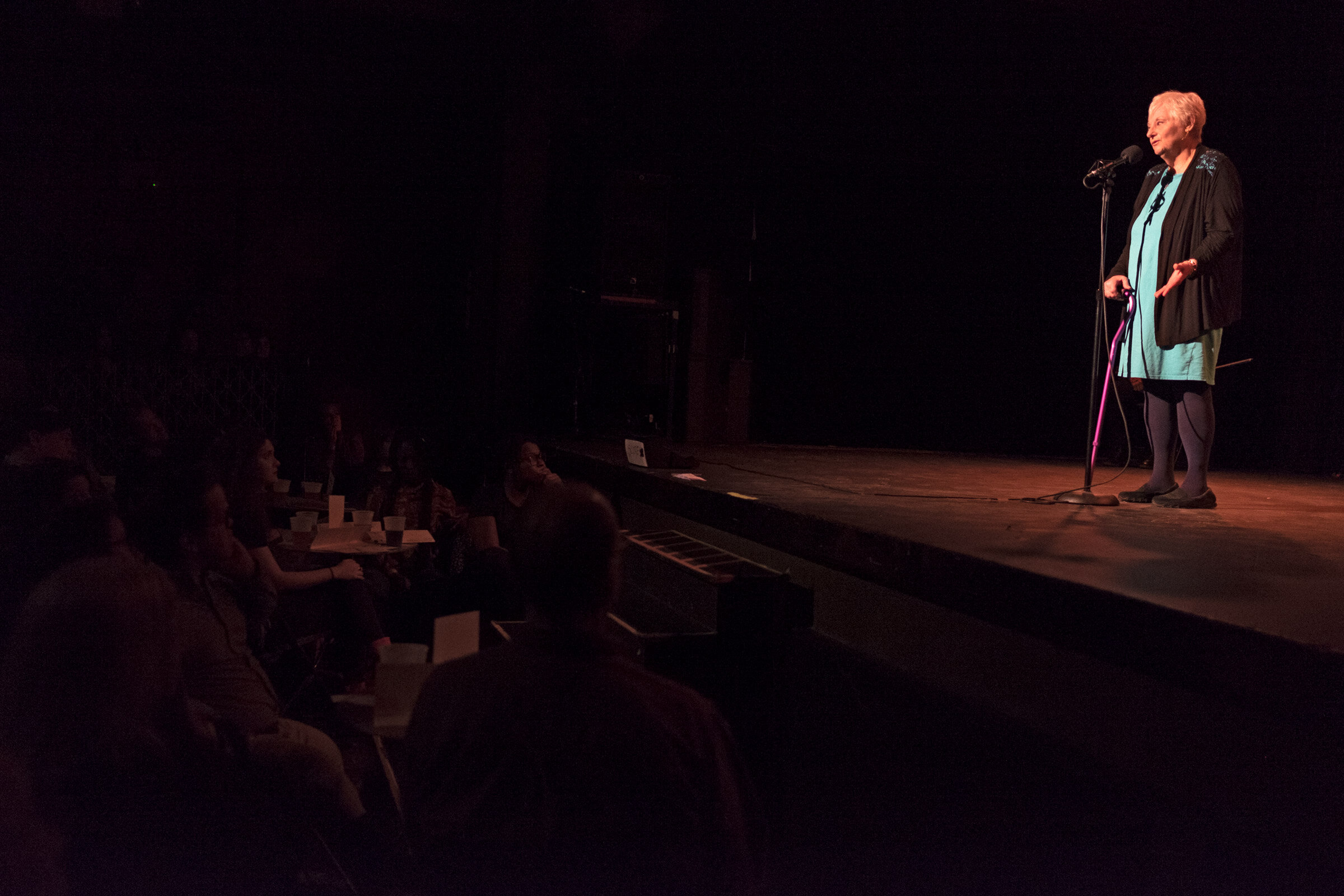
Karen at the Grand Slam Championship of The Moth. Music Hall of Williamsburg, almost a year after her release. Brooklyn, New York (March 19, 2018)
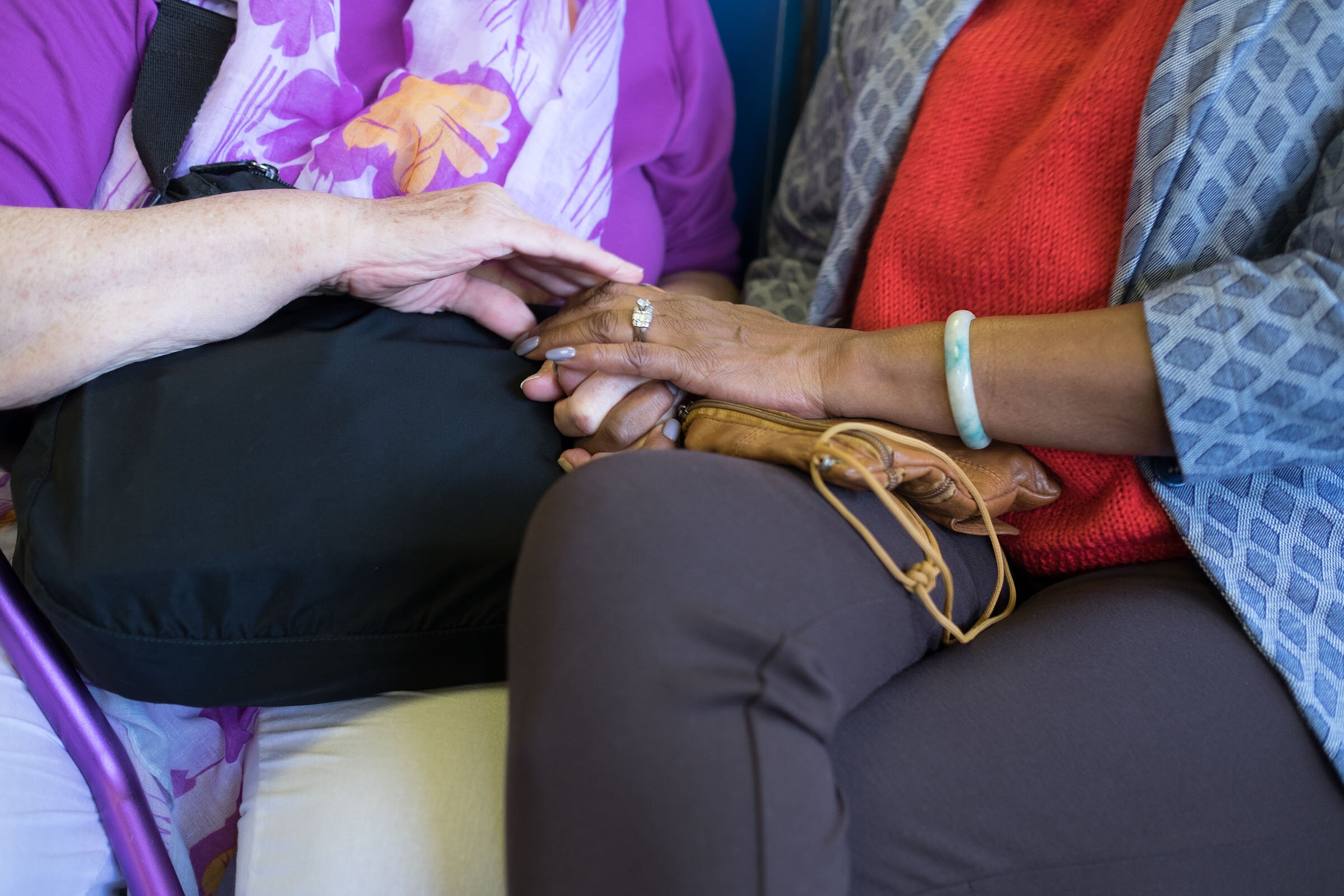
Staten Island Ferry. New York. (September 4, 2017)
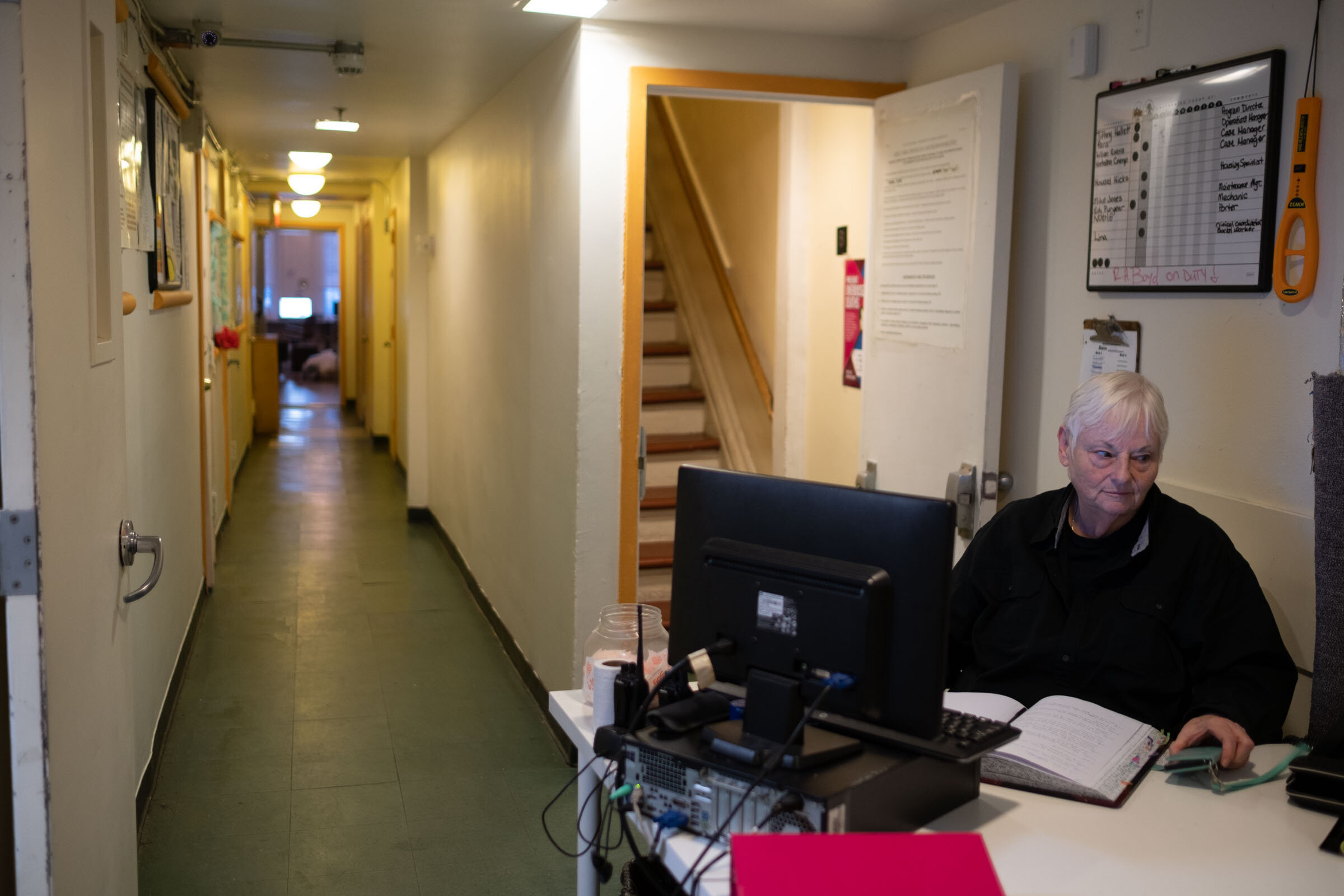
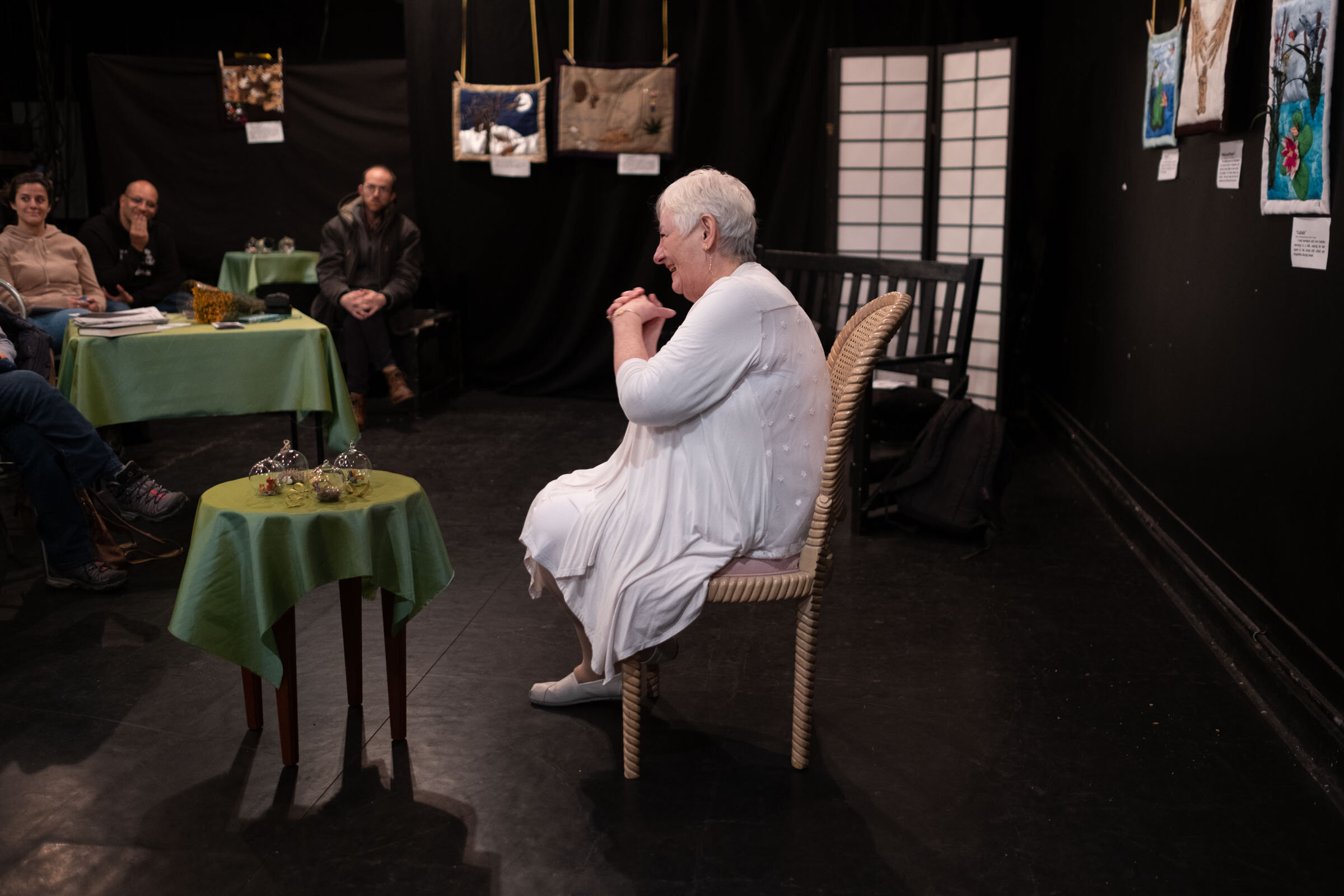
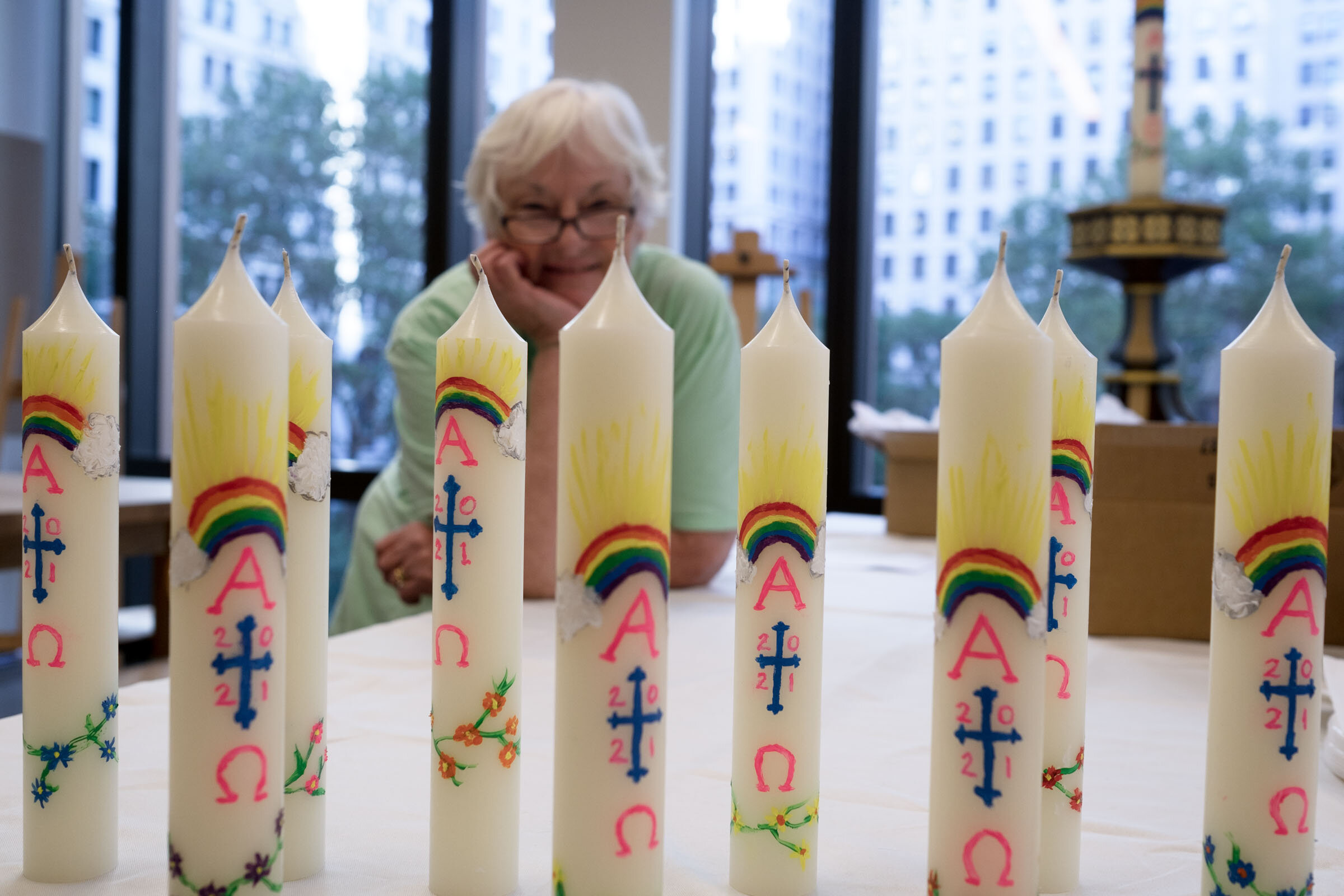
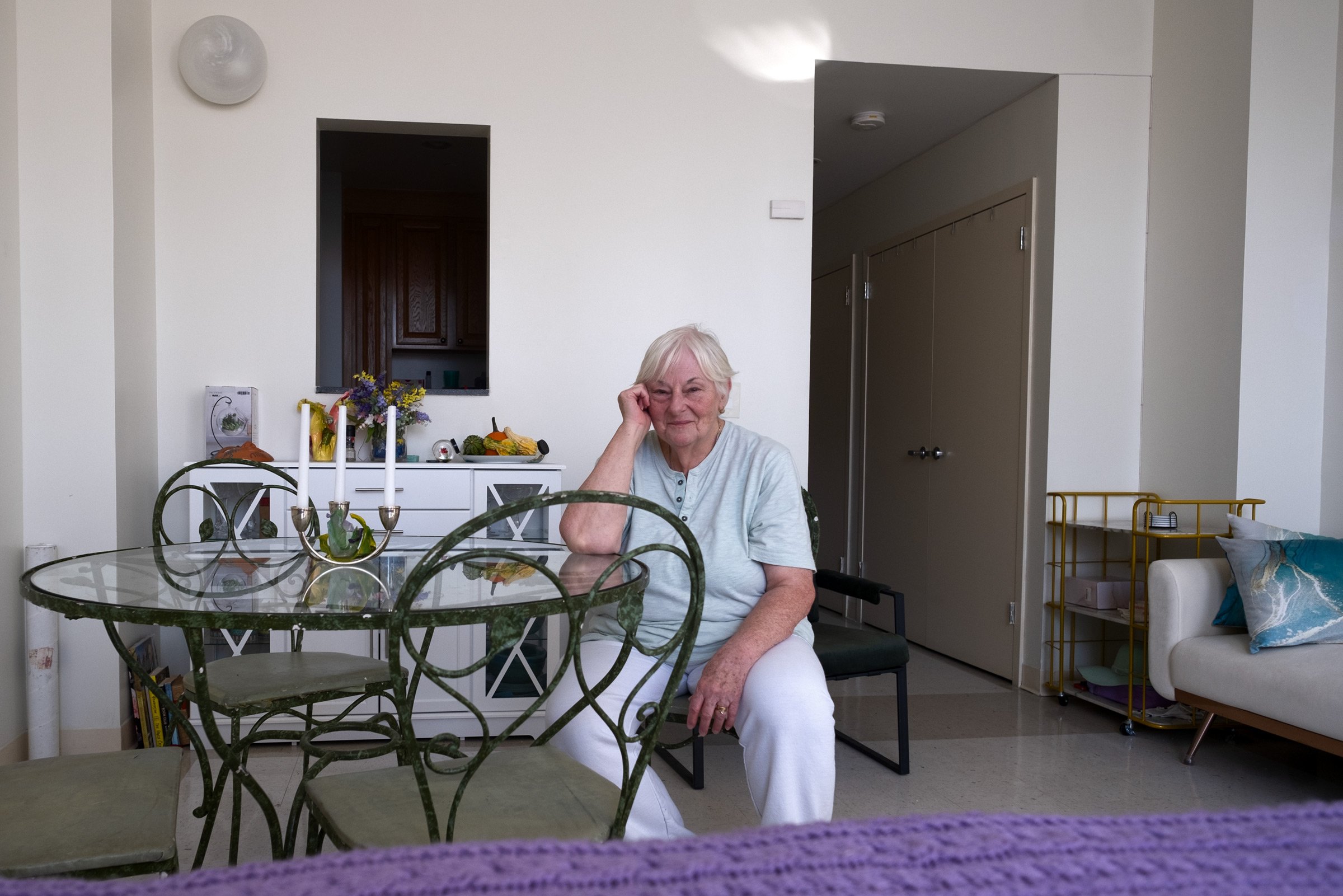
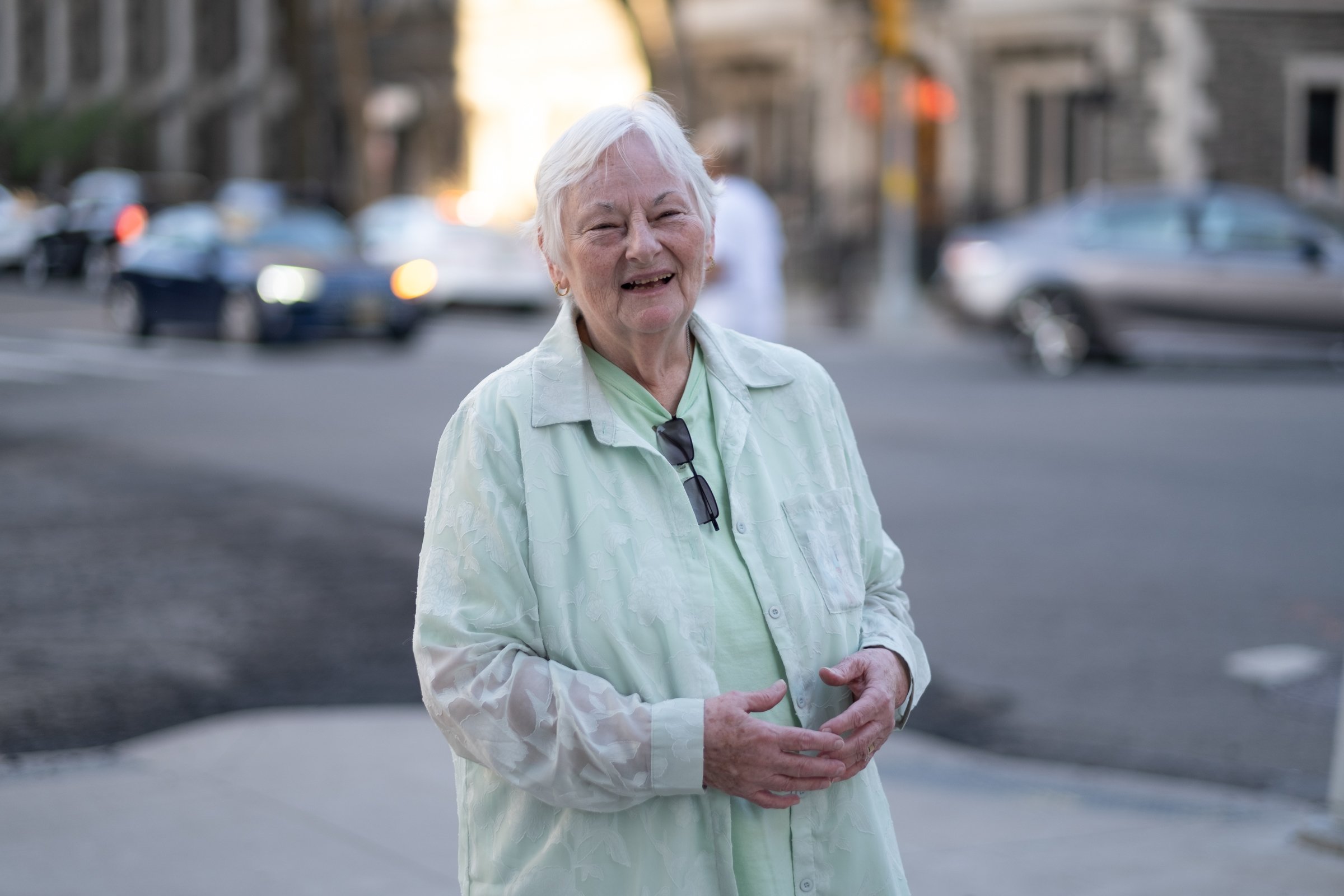
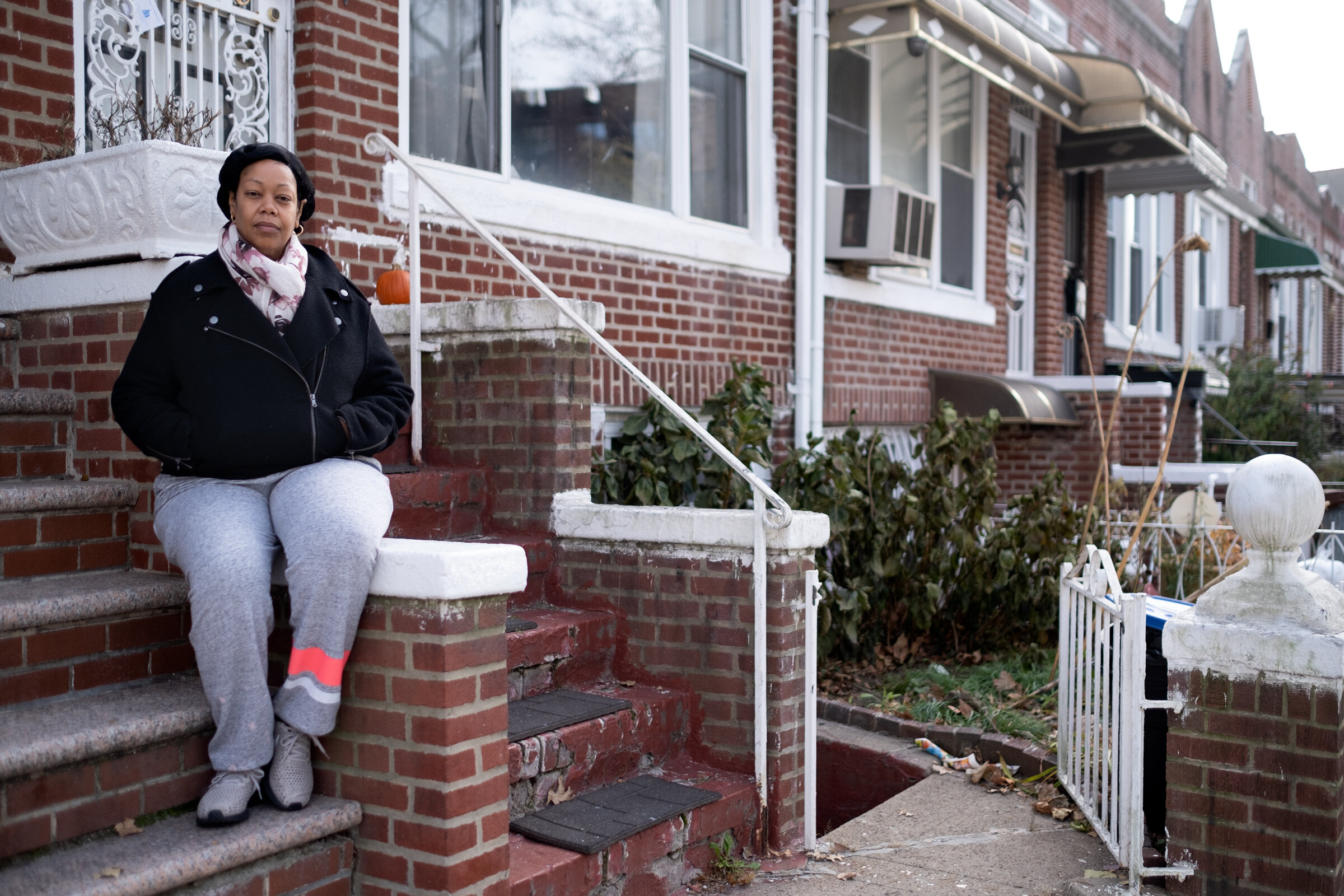
“I’m the only person in my family who has ever been to prison. I didn’t want to burden my family while I was in prison so I went without packages and money. I knew I would need their support when I came home and they have helped me with my transition.”
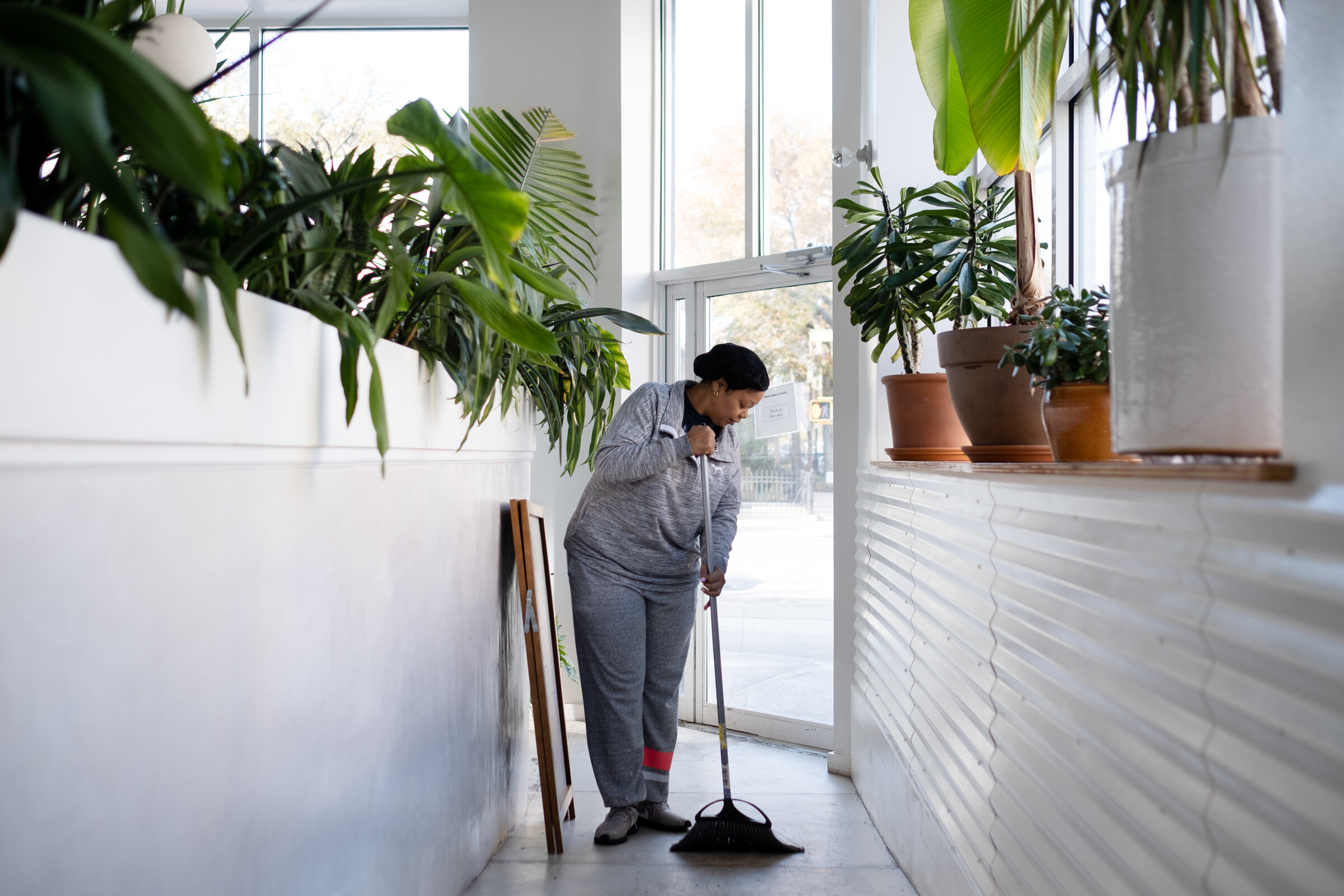
“I work at the restaurant from about 5pm until midnight a few days a week and on Sundays. I know my supervisor at my day job would prefer me to work just one job. But until he can compensate me more, I need two jobs. The price of living is high.”
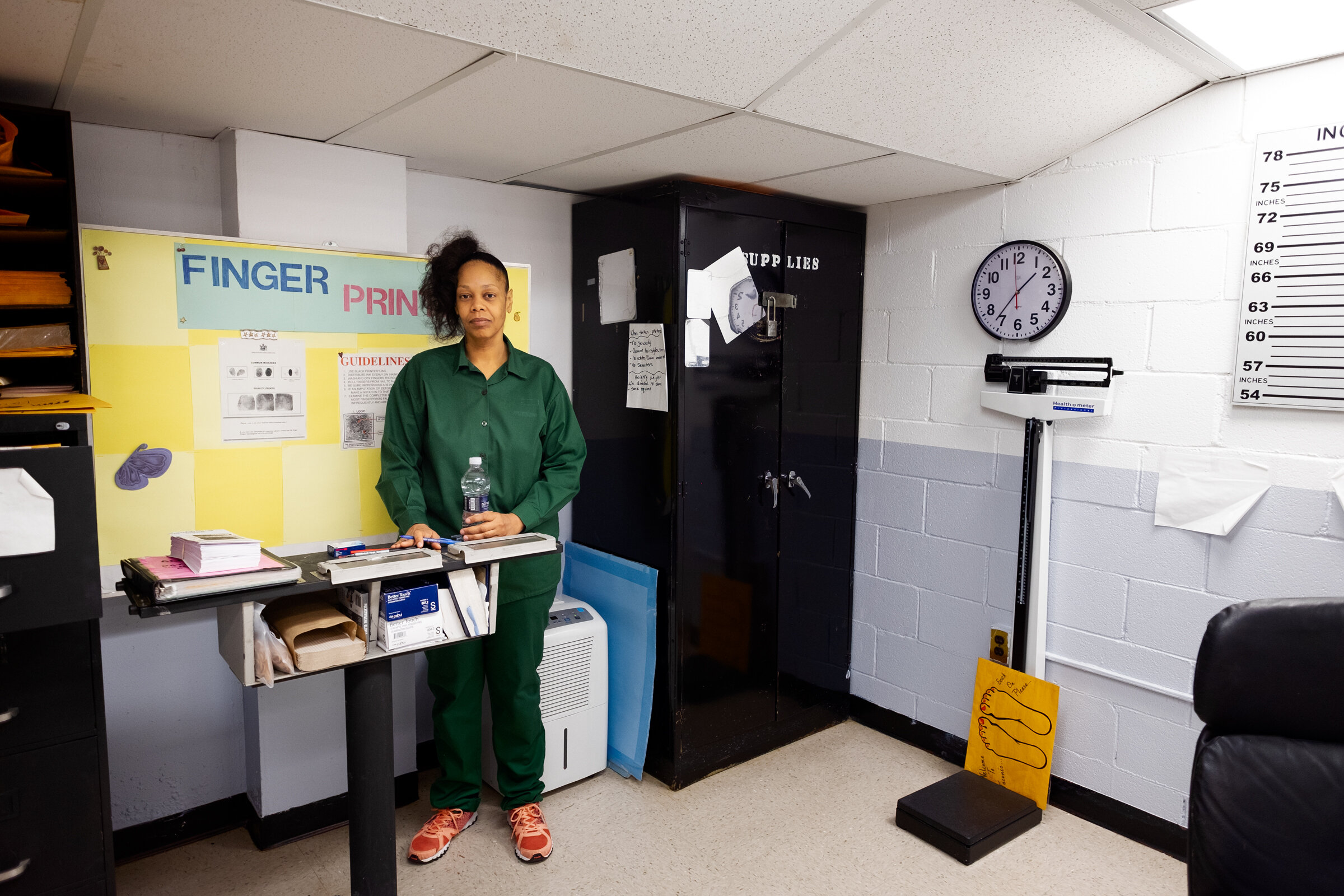
“As much as I desire to, I will never be able to change my past, but I have allowed my past to change me. Today I realize that it will never be about me, but in my endeavors to do better and be better, I know it starts with me. Today I make better choices and I have better ways to cope in any situation without resorting to violence. I have become a respectable, responsible, selfless, compassionate humbled and mature woman who is always conscious of the people I have hurt and the damage I have done.”
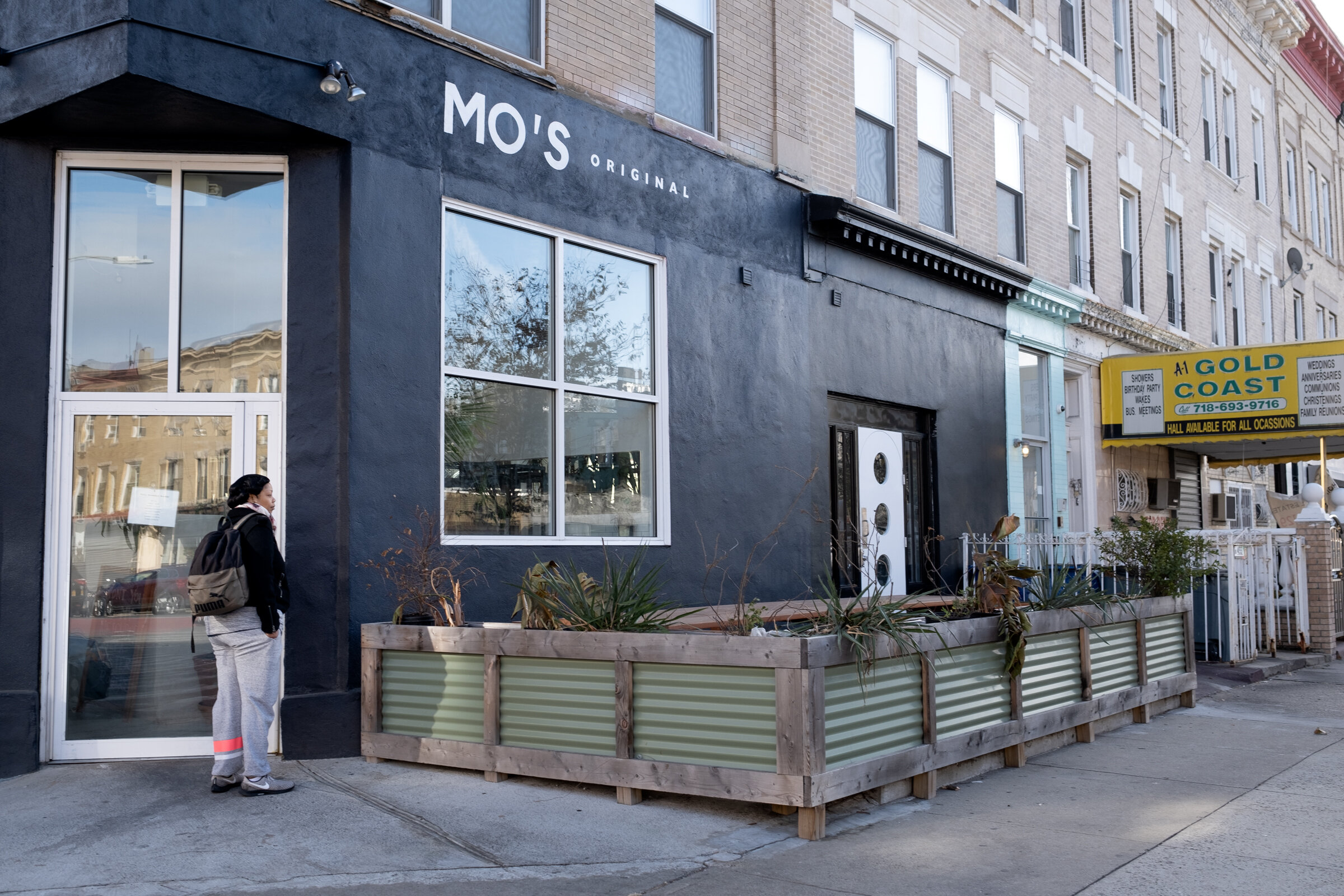
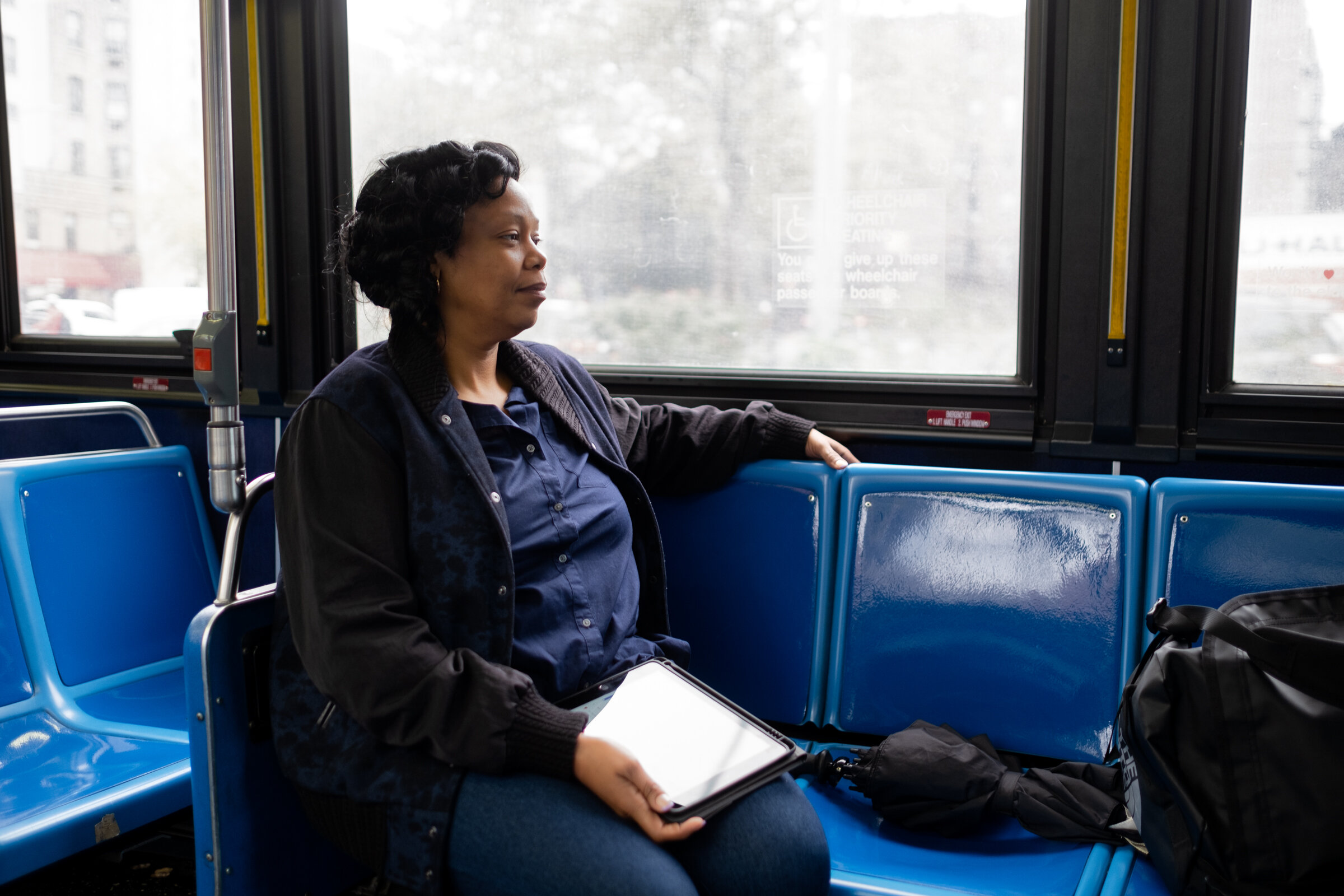
“When I was in prison, the system was very antiquated. All of my college work was done manually. We didn’t have access to computers and we didn’t learn any technology. When I came home, I was first introduced to the iPad, which I use for work, and now I can maneuver a computer.”
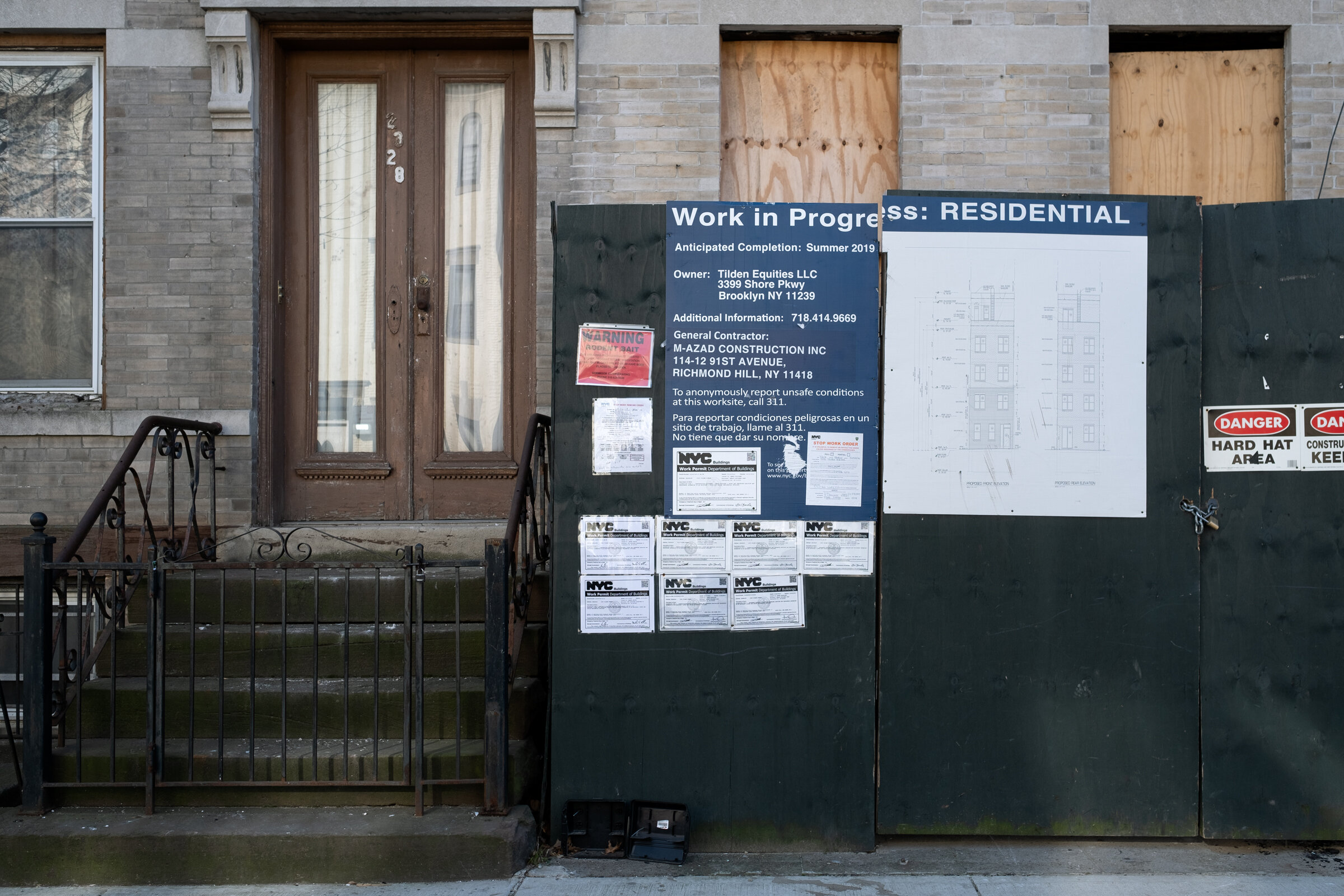
“When I lived here it was Black/West Indian, but now there are a lot of Caucasians in the area. There are a lot of new structures being built. If I had to live around here on my own, I couldn’t afford it.”
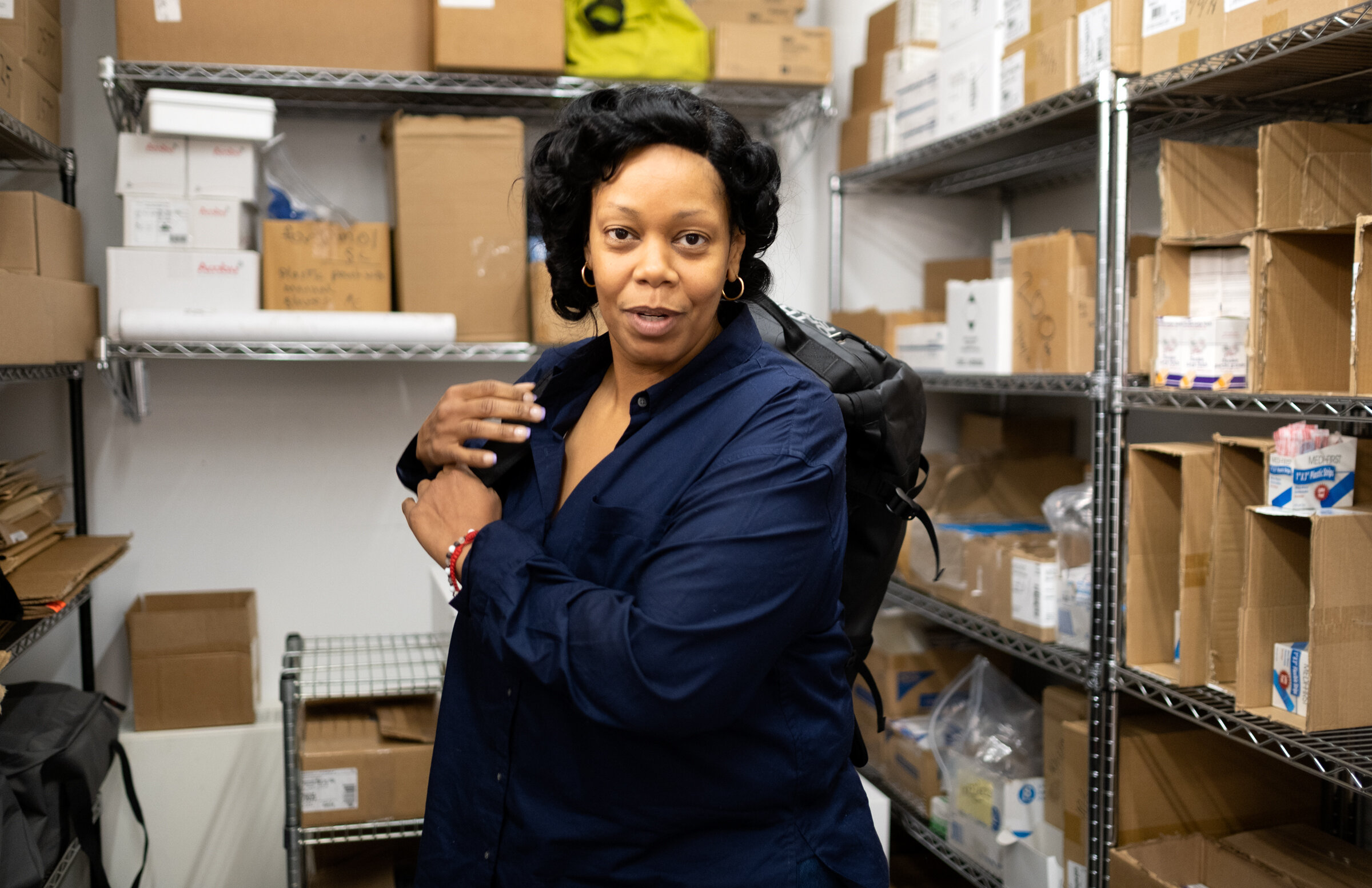
“I started working here part-time in March and in September I was offered a salaried position and a promotion. Right now, I’m a supervisor and I train the new field service representatives.”
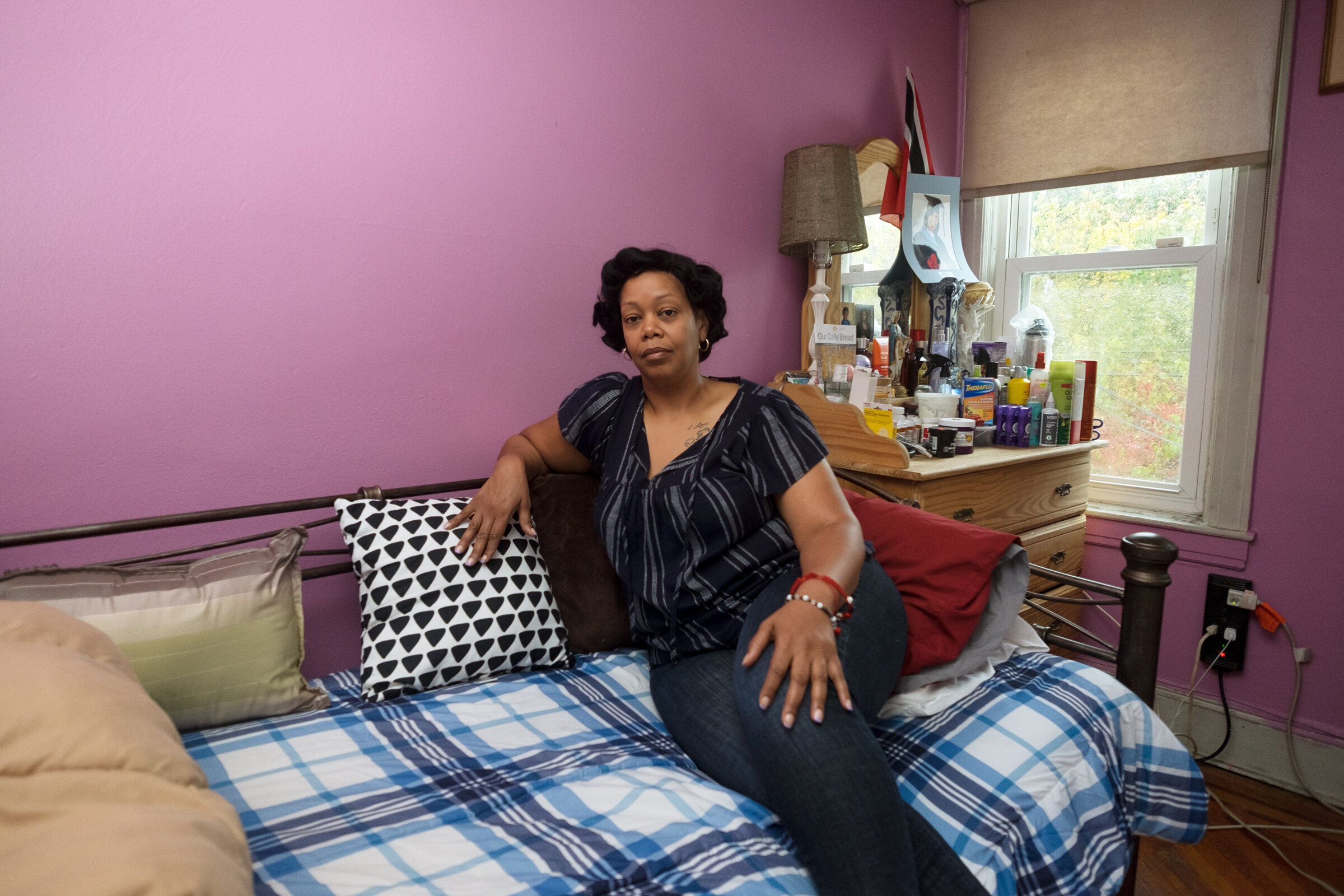
“When I am in this space, I am able to find the mental strength I need to tackle the daily obstacles I am met with because of my crime. When I am in this space, I am able to reflect on me, how I have transitioned from a weed trapped beneath the surface, into a beautiful sunflower, free and tall reaching for the stars. In this space I know that no matter what I may endure outside of it, when I return to it, I am safe and free to be me.”
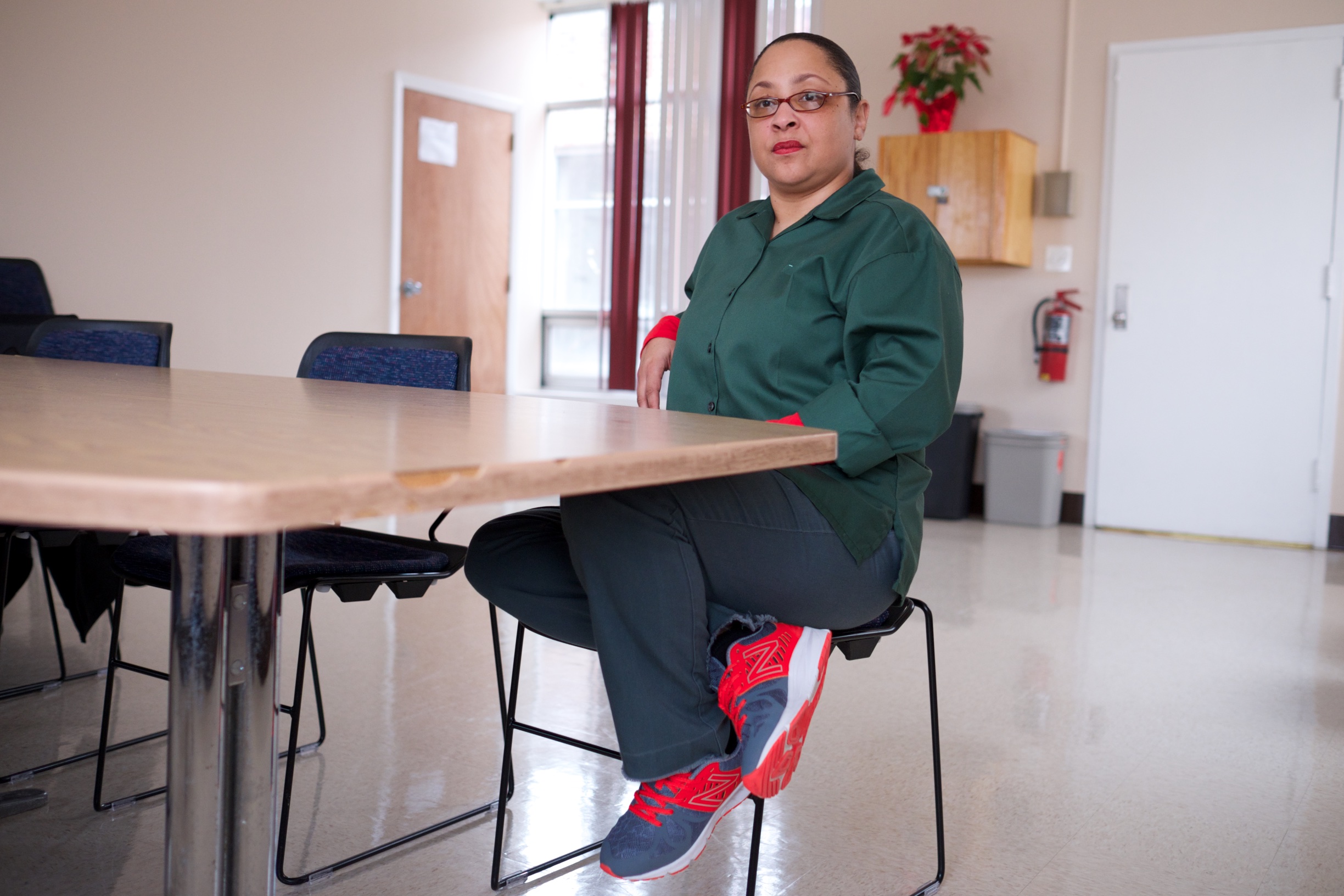
“I’ve been thinking a lot about my release. I was in prison longer than I was ever free. I always hoped in the back of my mind that I would win an appeal or something, but it never happened. I had to resign and live because I was just angry and depressed for a long time and tried to sleep the time away. And then I woke up and did what I was supposed to do. I know when I walk out of these gates and am on the other side of the barbed wire fences, it will be a rebirth for me.”
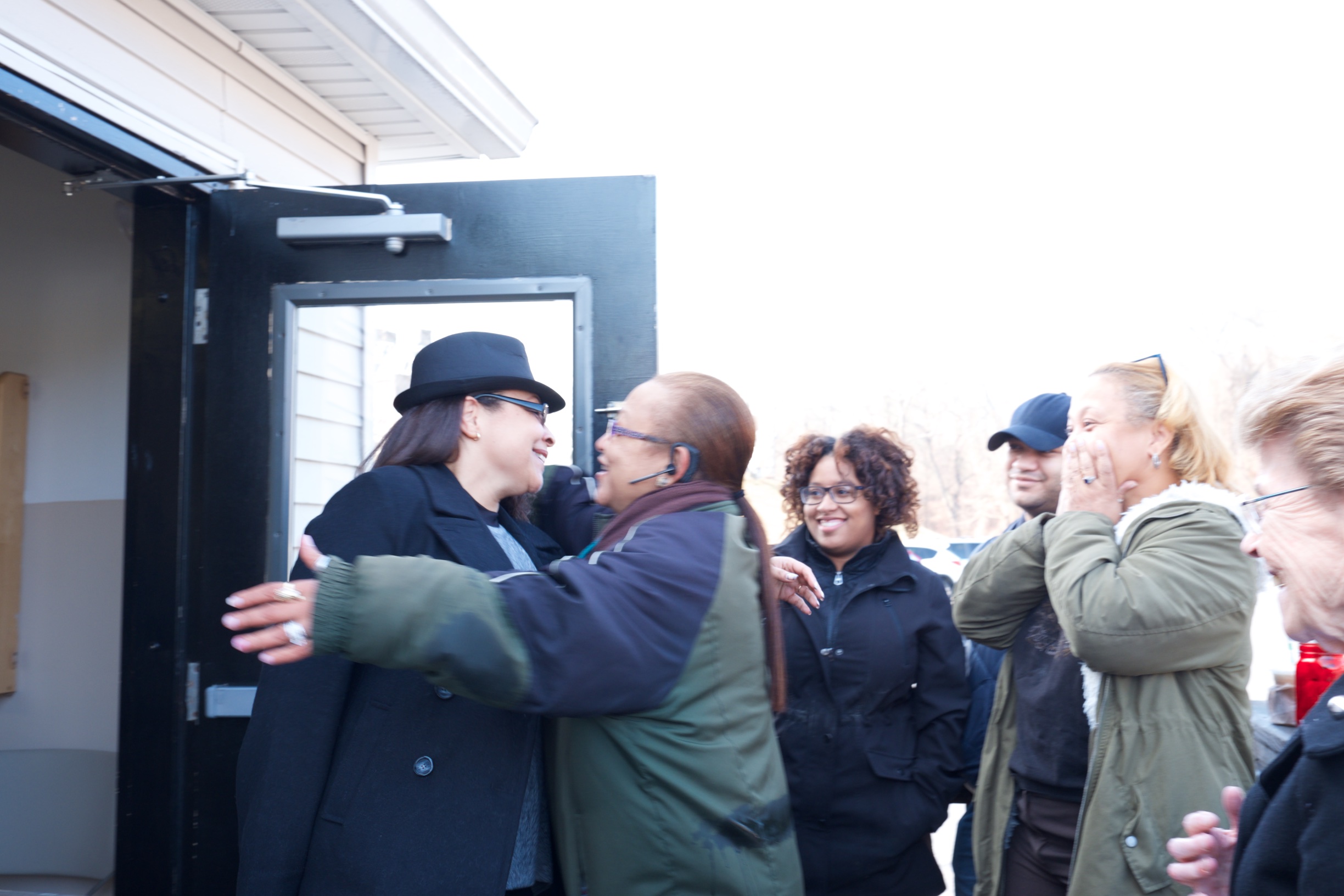
“The sliding doors opened. I walked through. I took a deep breath. I thought wow, this is really happening. And I came through the door and saw my sister and my nephew and it was just like, I’m finally home!”
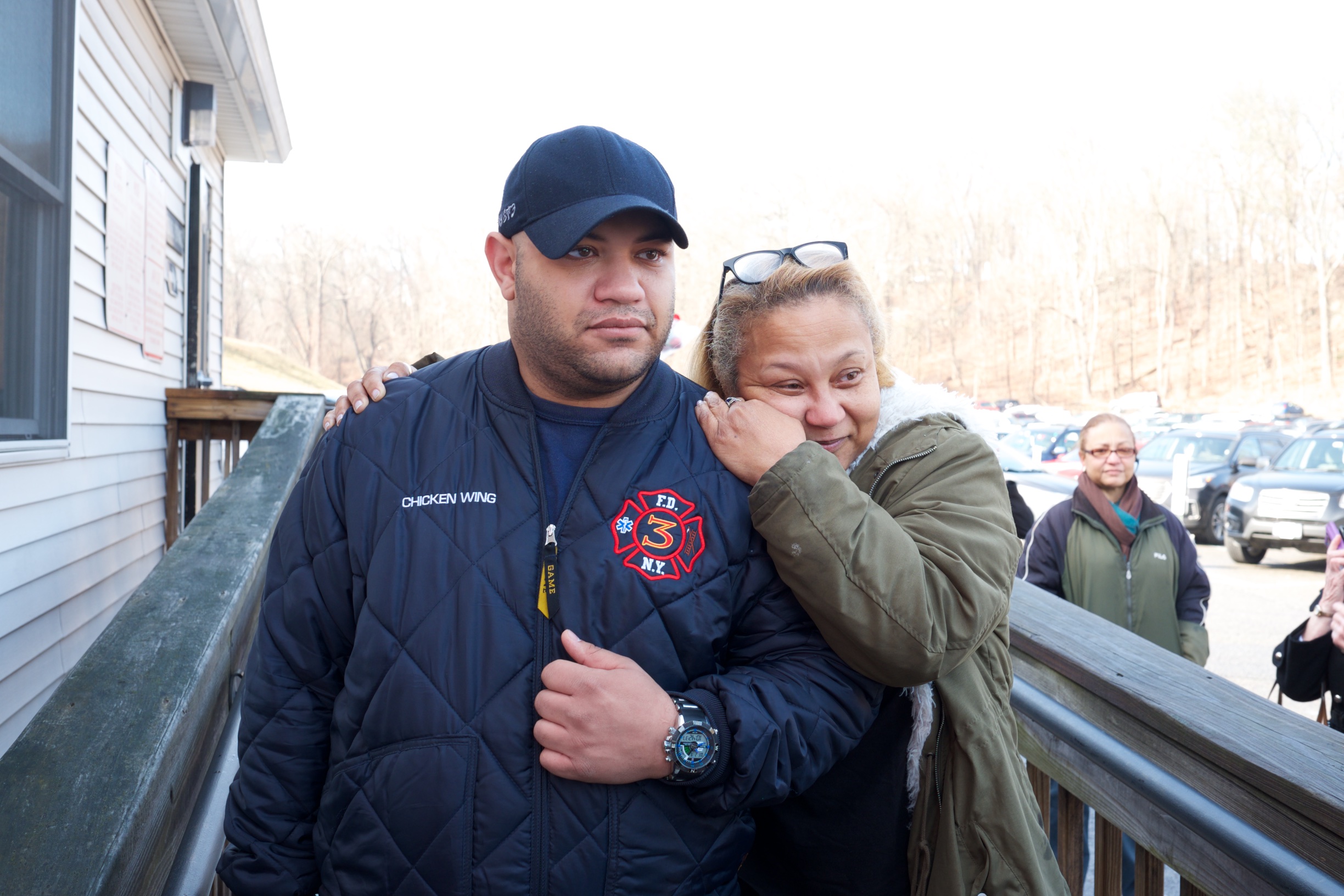
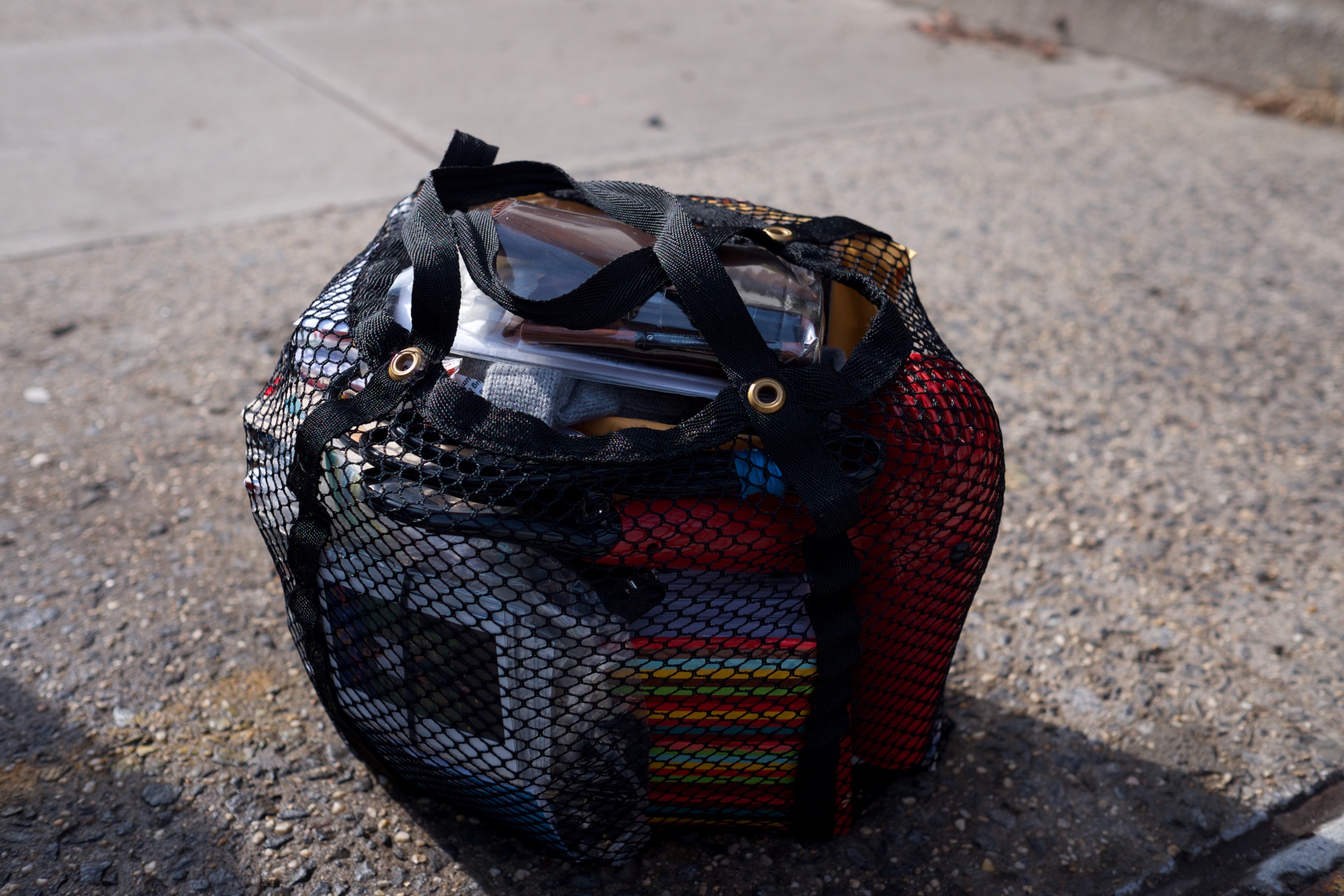
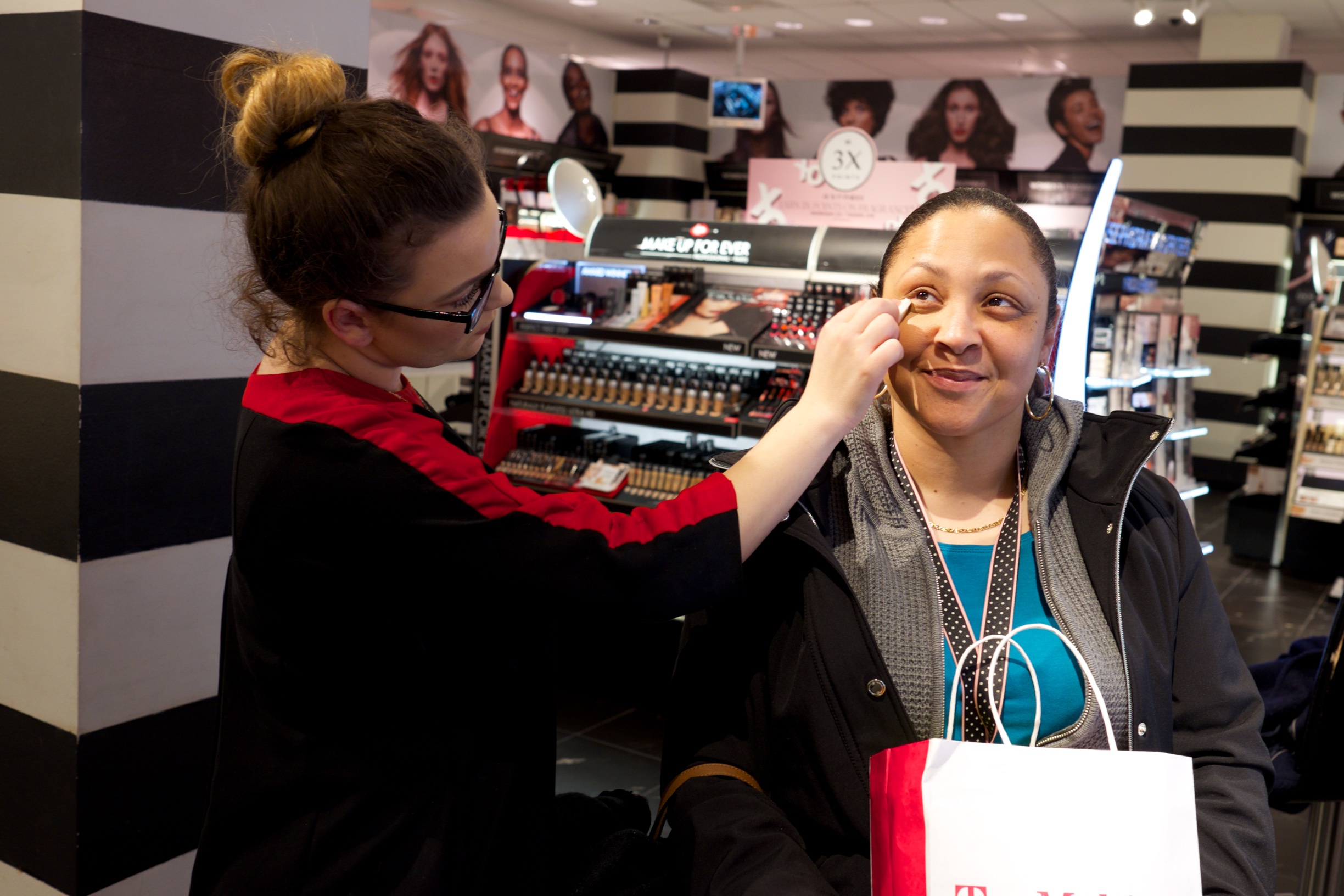
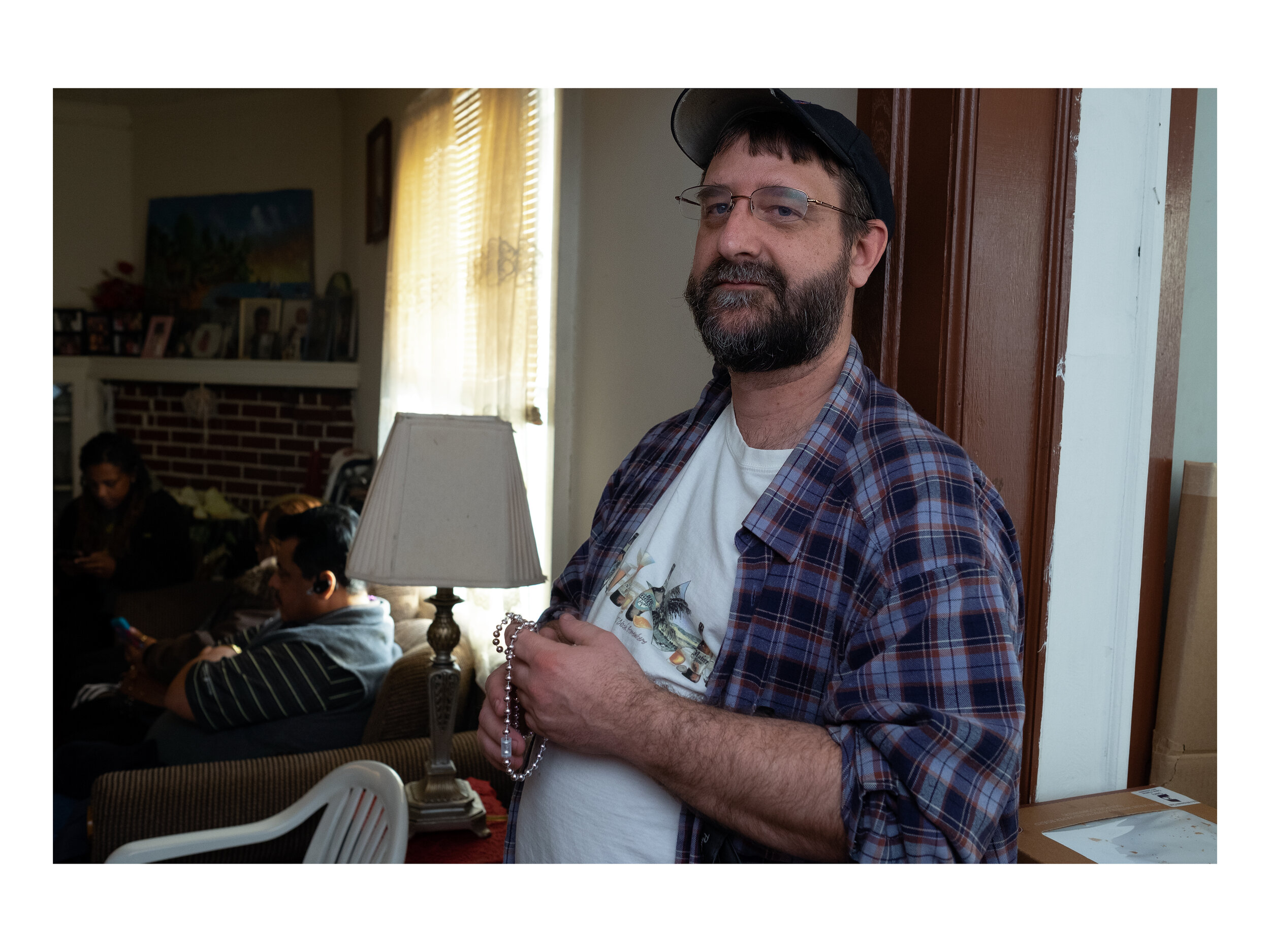
MARK: “We had been in touch from 2000 for four or five years, and then I wasn’t there for her when her father passed away and she didn’t take kindly to that. In 2012 I was looking around on the internet and I found an article about the college program at Marymount. There was a picture of Claude. I found Claude’s niece online and I asked her to give Claude my phone number. She called me and we started chatting everyday since on a daily basis.”
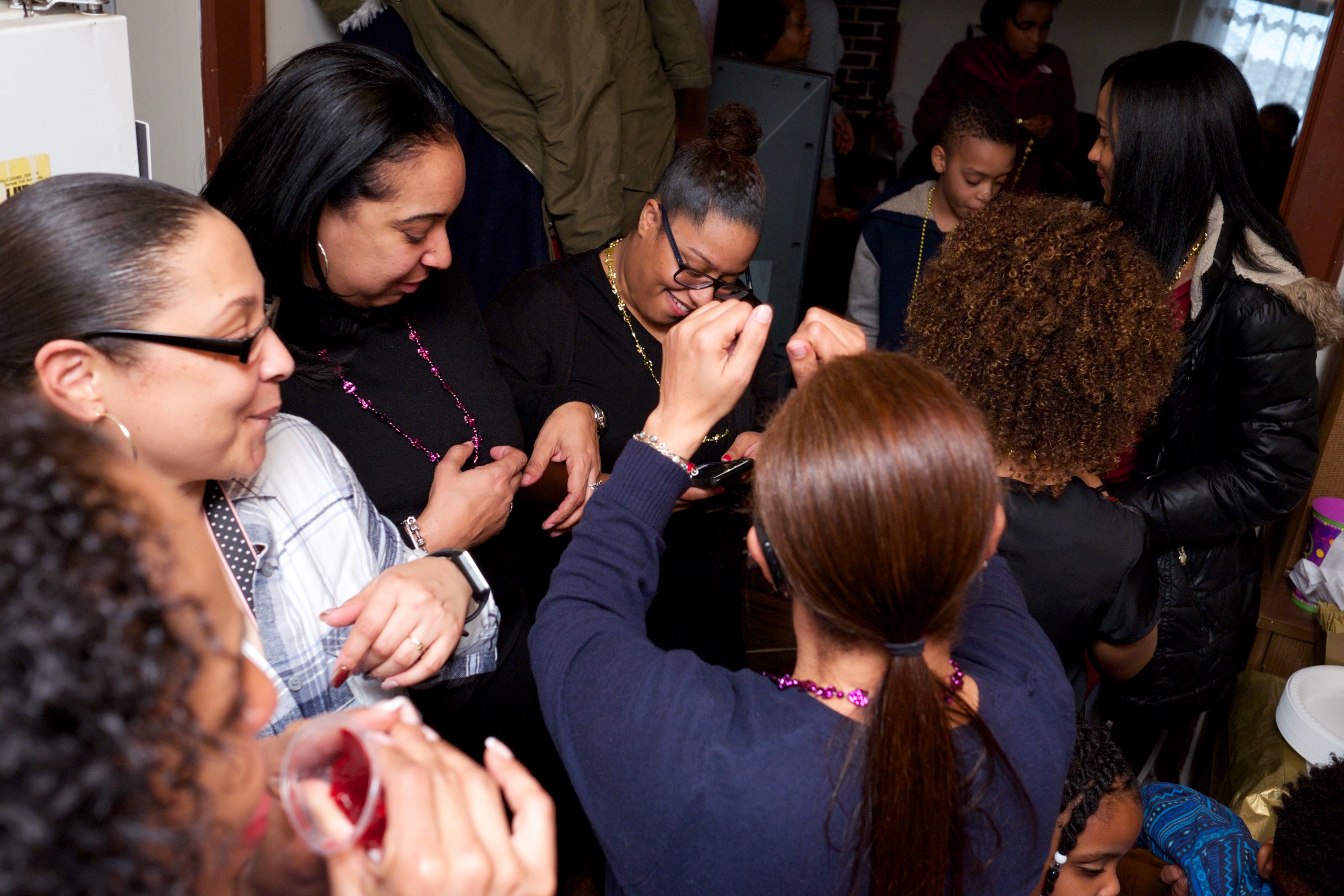
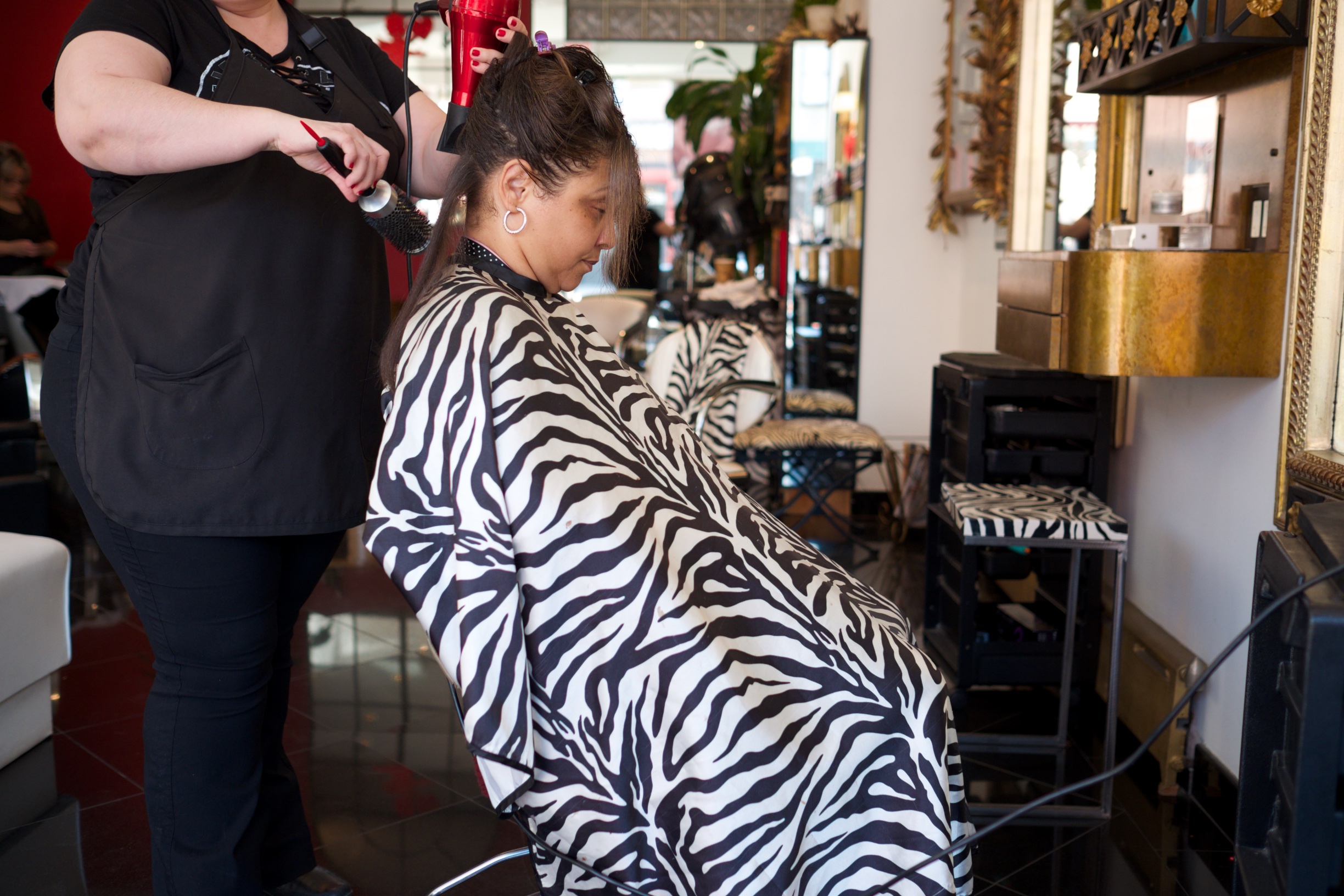
“If you had met my mom, god bless her, she always had nails. Even when I was home, I always got my nails done. When I got incarcerated, I kept on doing my own nails, my own hair. Doing that was the one thing that stated, ‘I am a woman,’ because everything about the jail was dehumanizing, was to strip a woman of her womanhood. So coming out, I was looking forward to someone pampering me.”
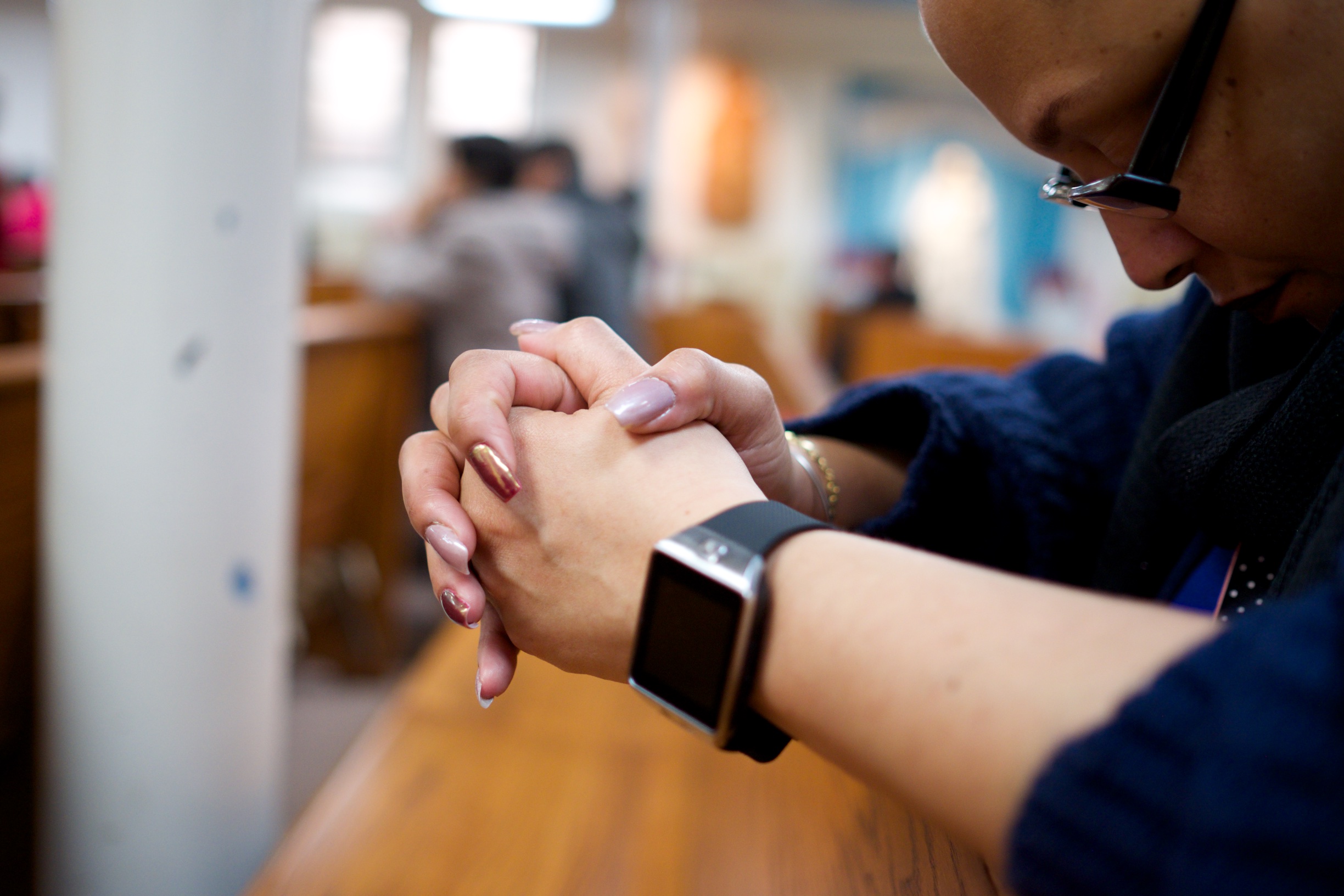
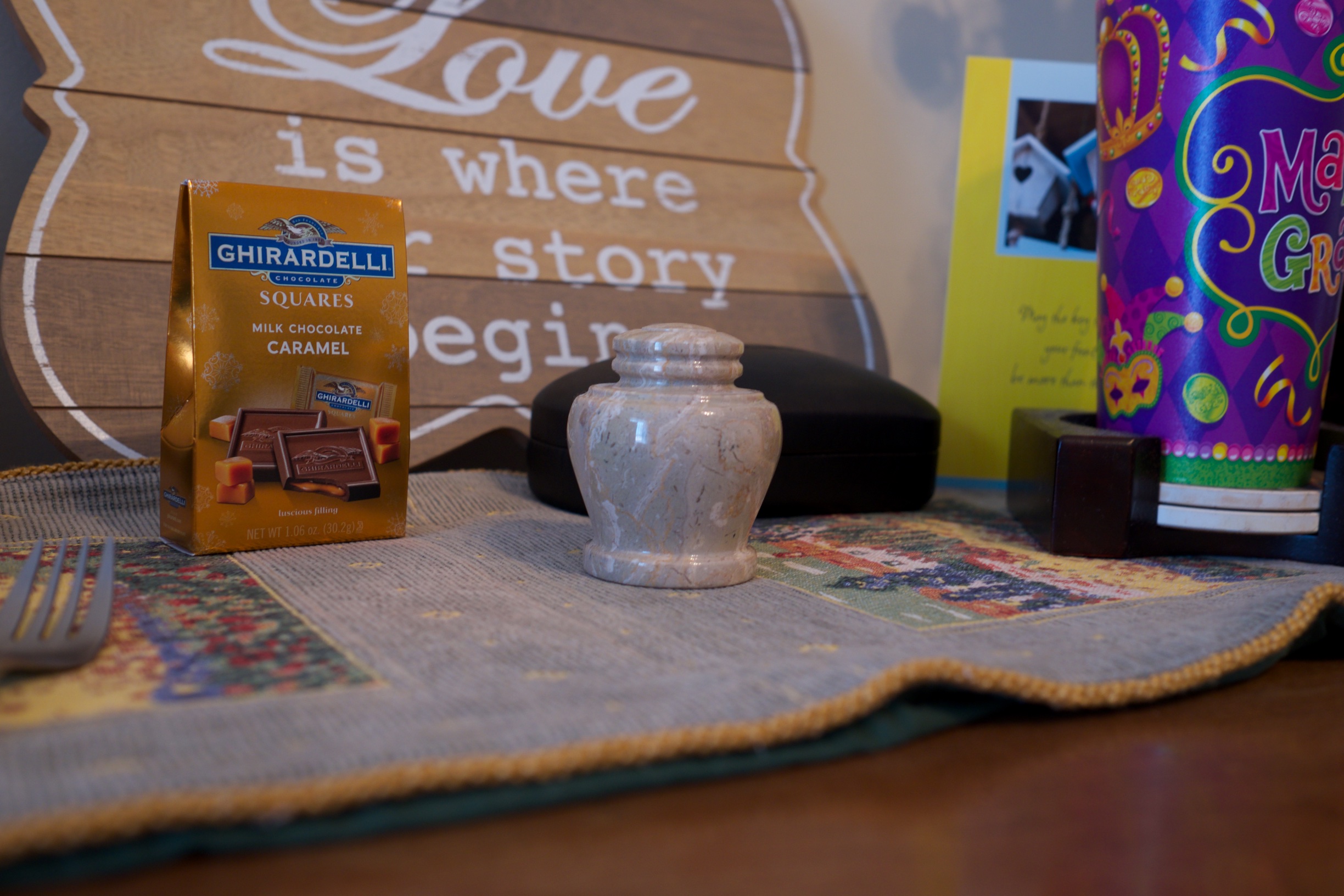
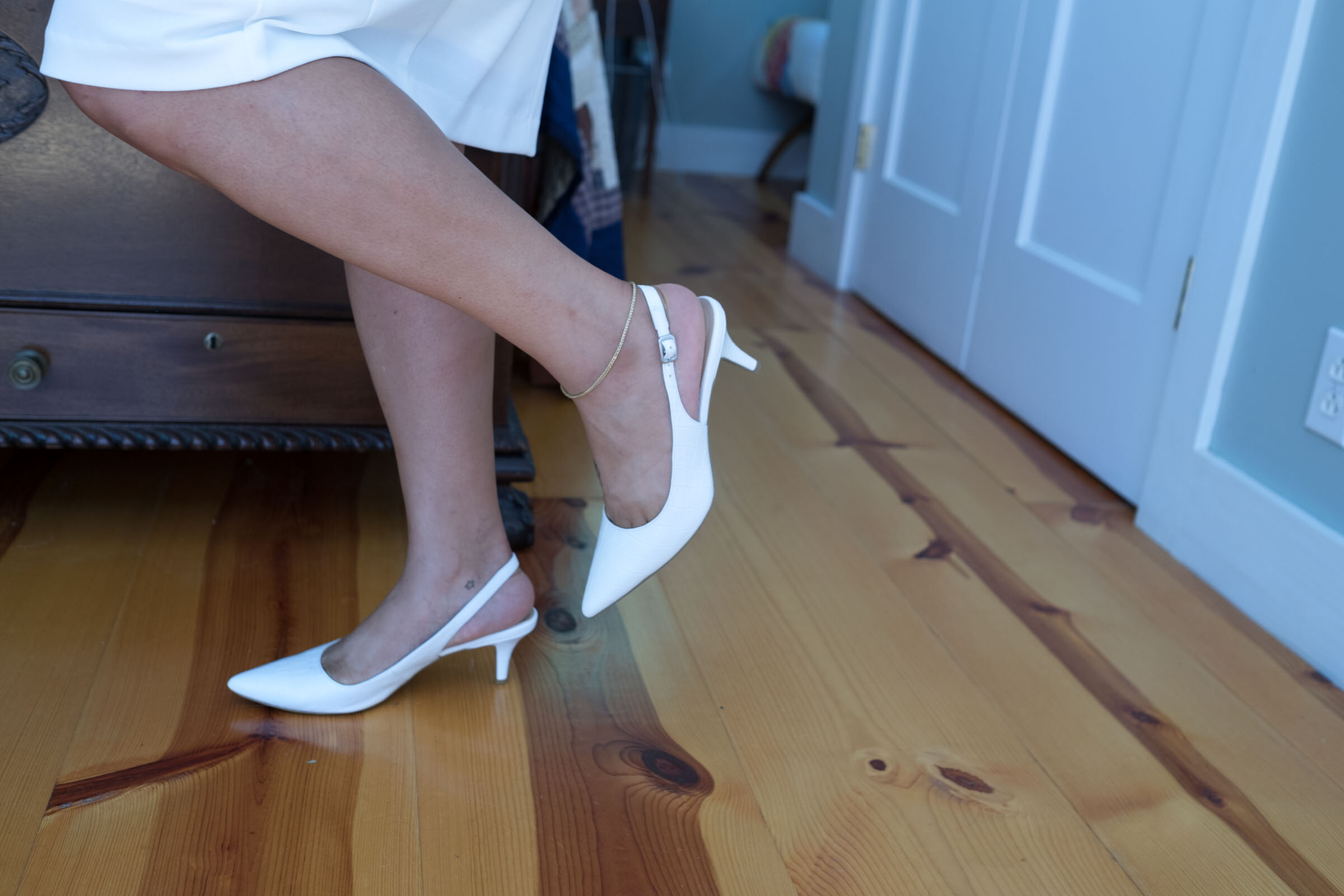
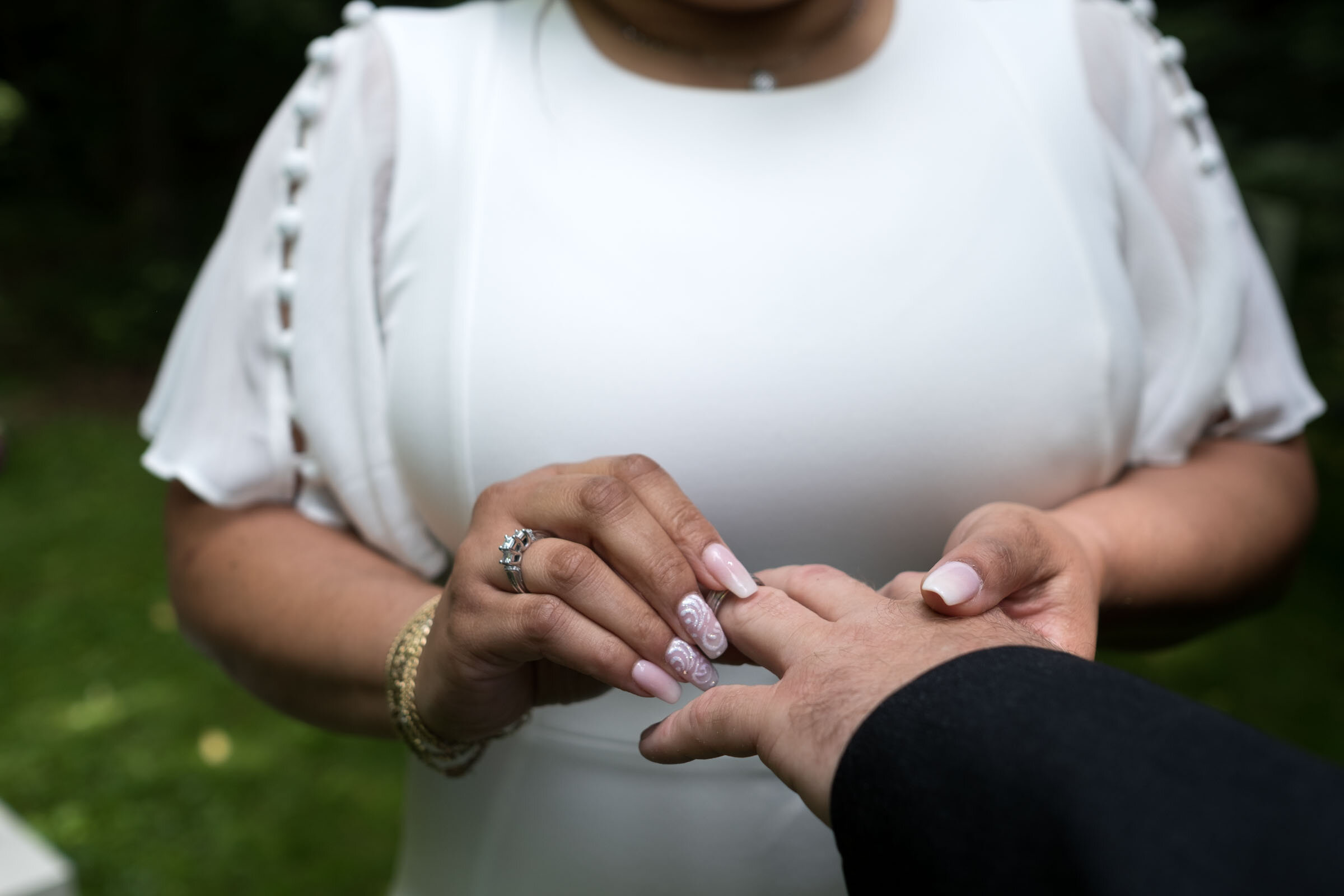
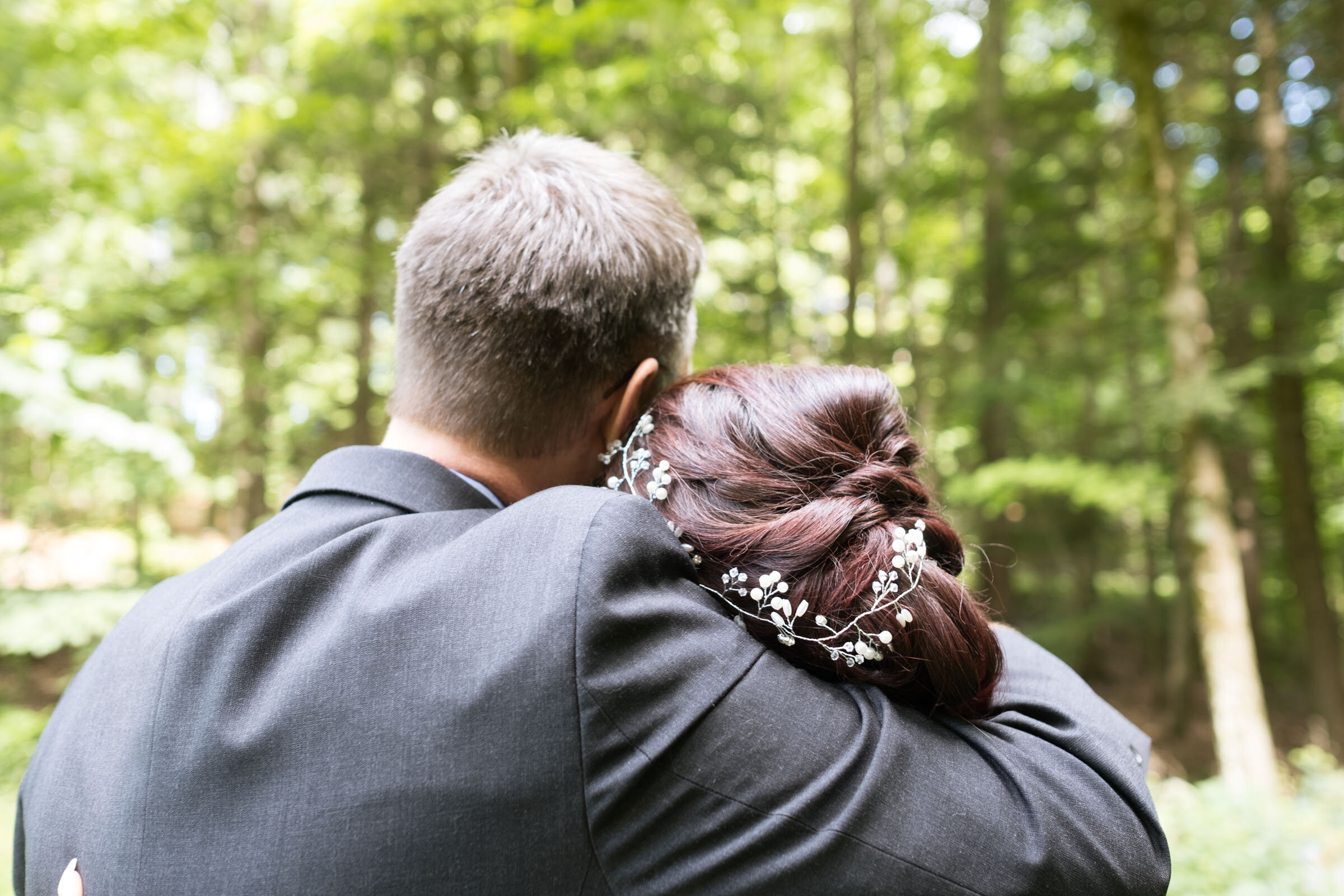
The two met decades earlier at the beginning of Claude's incarceration when Mark was a civilian working in the prison. Despite a prohibition on his visiting her, they continued their relationship from afar and he was waiting for her when she walked out the prison door.






















































































Life After Life in Prison: Reentry examines the lives of seven women — Tracy, Evelyn, Carol, Keila, Karen, Leah, and Claude — as they return to society after serving anywhere from 17 to 35 years in New York State’s maximum security prison for women.
Tracy, 49, who served 24 years, waiting for a meeting with her counselor. Brooklyn, NY (2014)
“I have to go to three state-mandated programs. I like my individual counselor but all those programs is a lot of time. I feel most of it is a waste.”
“This is my third home in six months. I was at Providence House [a halfway house]. But my time was up after four months and I ended up at a three-quarter house. It was horrible. Then the uncle of my grand-children, not related to me, took me in.”
“I was glad to get the graveyard shift because it makes it easier for me to get to my programs without being late to work. Being late to work means I could lose my job. Being late to program means I could go back to prison. This way I won’t be late.”
“First, Salvation Army told me I could have this job. Then they called me and told me they did a background check and said I couldn’t have it after all. I asked them when will I get my second chance. If they won’t give me a job, who will? So then they said I could have the job.”
“The hardest part out here is the housing. A lot of places don’t take public assistance and rent is just so expensive.”
Tracy out on delivery for McDonalds. New York, NY (2016)
Tracy performing a prayer dance. Church of Gethsemane, Brooklyn, NY (2017)
“I met my partner when I’d only been home for a few days. She has three kids and me not having kids, I became close to the kids and that was an extra.”
“When I came home, I got a grant and went to a culinary program. My dream job is to work for a nice restaurant. ‘Evelyn, Sous Chef.’ Or to have my own food truck — Spanish food. I cook like my grandma. That’s the best instructor you can have. Everything she cooked was natural.”
“I leave home at five thirty in the morning. I had to get an exception from my parole officer because I’m supposed to be home from ten at night until seven in the morning. If I want to leave the five boroughs, I have to get a travel pass. I have to report every four months—come in after work, wait to be called, hand them my urine, pay my fee. It’s $30 a month. I’m free, but I’m not full free.”
“I met Sister Elaine in Bedford. I was in facility maintenance and if she needed something done, I was there. I was always happy to do it. She was always encouraging me. She was like a mother figure to a lot of us in prison.”
“I share this house with six other women. I’m in a good room. I can look out my window and I’m at peace. But I’m looking forward to the day when I have my own apartment and I’m saving as much as I can.”
Evelyn and Andrea. Brooklyn Bridge Park (2017)
“We’ve known each other only 9 months but I just know it’s right. I can’t explain it.”
“I’ve been executive chef for three years now. I supervise 9 people and it’s a great experience and a great challenge. I get to be creative and build relationships with all kinds of people. The job comes with a little bit of stress but I’m proud of myself to see the role I am in.”
“Getting married was the best decision of my life. It’s almost two years now.”
“Andrea gave me my first dog before she went back to her country to see her family. She didn’t want me to be by myself. She knows me so well. I love the dogs.”
Evelyn after work. Long Island City, NY (May 2021)
Evelyn with her step-mom. San Juan, Puerto Rico (September 2021)
Evelyn, with her wife Andrea, and Andrea’s three children, who moved from Ecuador in August, 2021, to live with Evelyn and Andrea. Queens, NY (December 2021)
“I volunteer to say thank you for taking me in. If it weren’t for Hour Children, I would have ended up in a homeless shelter."
“I’ve always loved kids. They’re so innocent and full of joy. In prison, I wasn’t allowed to work on the nursery because I had a violent crime. Now it’s my chance.”
“Each one of us takes a turn cooking. We cook what we want, depending on what’s available in the freezer. We each put in $100 worth of food a month. We’re cooking for about 12.”
“I don’t know why they finally gave me parole on my sixth try. I had a good record. Maybe it’s because I’d had two heart attacks and I was expensive. You can’t make up for 35 years. The world is different; I’m different. I wasn’t going to do a ‘catch-up.’ How do you catch up for 35 years?”
“I don’t go out much. I work across the street from where I live. I go to the doctor or do a little shopping. Sometimes I go out with a friend. It might not sound like much, but I’m free.”
“My last three years in prison I spent on the RMU [Regional Medical Unit]. It’s like a mini hospital, but it’s really isolating. It’s worse than solitary. No one can visit you because everyone’s in their programs during scheduled visiting hours.”
Carol in her bedroom. Long Island City, NY (2017)
Carol after a fall that left her with a broken wrist and requiring care from a home health care attendant. Long Island City, NY (September 13, 2017)
Carol with Cecil, now age six. Long Island City, NY (February 1, 2018)
Carol, 70. Long Island City, NY (May 20, 2019)
Carol, 73, Far Rockaway, NY (October 20, 2021)
“My dad bought me this softball glove when I joined the prison team. He died while I was in there. Two officers transported me to the funeral home. I was in cuffs for twenty hours. He was the man I loved the most in this whole world. It just went all wrong. They made it worse.”
“My reentry is starting now. I don’t regret spending the summer with my family but they weren’t equipped for how I was feeling. They didn’t get the anxiety, that I was sad — you’re free, you’re home, move on.”
“I got to tell my story to people who are important in the community and who are in a position to help people who are still in prison. I want the women who are still inside to have support.”
"This year went fast. I’m not quite where I want to be but I’m in a good place. I’m going to be ok.”
Keila on a catering job. Brooklyn, NY (2016)
Keila on the third year anniversary of her release. Long Island City, NY (2017)
Keila, with her own catering business, Chi Chi’s Kitchen, at a street fair. New York, NY (2017)
Karen’s bedroom at the homeless shelter, six months after her arrival. East Village, NY (December 17, 2017)
At the Metropolitan Museum of Art with the former Superintendent of Bedford Hills Correctional Facility. New York City (July 19, 2017).
Karen at the Grand Slam Championship of The Moth. Music Hall of Williamsburg, almost a year after her release. Brooklyn, New York (March 19, 2018)
Staten Island Ferry. New York. (September 4, 2017)
“I’m the only person in my family who has ever been to prison. I didn’t want to burden my family while I was in prison so I went without packages and money. I knew I would need their support when I came home and they have helped me with my transition.”
“I work at the restaurant from about 5pm until midnight a few days a week and on Sundays. I know my supervisor at my day job would prefer me to work just one job. But until he can compensate me more, I need two jobs. The price of living is high.”
“As much as I desire to, I will never be able to change my past, but I have allowed my past to change me. Today I realize that it will never be about me, but in my endeavors to do better and be better, I know it starts with me. Today I make better choices and I have better ways to cope in any situation without resorting to violence. I have become a respectable, responsible, selfless, compassionate humbled and mature woman who is always conscious of the people I have hurt and the damage I have done.”
“When I was in prison, the system was very antiquated. All of my college work was done manually. We didn’t have access to computers and we didn’t learn any technology. When I came home, I was first introduced to the iPad, which I use for work, and now I can maneuver a computer.”
“When I lived here it was Black/West Indian, but now there are a lot of Caucasians in the area. There are a lot of new structures being built. If I had to live around here on my own, I couldn’t afford it.”
“I started working here part-time in March and in September I was offered a salaried position and a promotion. Right now, I’m a supervisor and I train the new field service representatives.”
“When I am in this space, I am able to find the mental strength I need to tackle the daily obstacles I am met with because of my crime. When I am in this space, I am able to reflect on me, how I have transitioned from a weed trapped beneath the surface, into a beautiful sunflower, free and tall reaching for the stars. In this space I know that no matter what I may endure outside of it, when I return to it, I am safe and free to be me.”
“I’ve been thinking a lot about my release. I was in prison longer than I was ever free. I always hoped in the back of my mind that I would win an appeal or something, but it never happened. I had to resign and live because I was just angry and depressed for a long time and tried to sleep the time away. And then I woke up and did what I was supposed to do. I know when I walk out of these gates and am on the other side of the barbed wire fences, it will be a rebirth for me.”
“The sliding doors opened. I walked through. I took a deep breath. I thought wow, this is really happening. And I came through the door and saw my sister and my nephew and it was just like, I’m finally home!”
MARK: “We had been in touch from 2000 for four or five years, and then I wasn’t there for her when her father passed away and she didn’t take kindly to that. In 2012 I was looking around on the internet and I found an article about the college program at Marymount. There was a picture of Claude. I found Claude’s niece online and I asked her to give Claude my phone number. She called me and we started chatting everyday since on a daily basis.”
“If you had met my mom, god bless her, she always had nails. Even when I was home, I always got my nails done. When I got incarcerated, I kept on doing my own nails, my own hair. Doing that was the one thing that stated, ‘I am a woman,’ because everything about the jail was dehumanizing, was to strip a woman of her womanhood. So coming out, I was looking forward to someone pampering me.”
The two met decades earlier at the beginning of Claude's incarceration when Mark was a civilian working in the prison. Despite a prohibition on his visiting her, they continued their relationship from afar and he was waiting for her when she walked out the prison door.